Westminster’s Response to COVID-19
How the School met the challenge of keeping pupils learning in extraordinary circumstances.
A Lasting Legacy – Tribute to ‘Fred’ Holt
A School carpenter for over 30 years, Fred was a master craftsman who left more than a visible imprint on the School.
Westminster’s Ghosts Anecdotes
Reflecting on a number of works of fiction that draw on ghostly apparitions in and around the Abbey.
The Elizabethan Newsletter
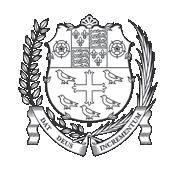
2019 / 20
In conversation with outgoing Head Master, Patrick Derham
A time for reflection
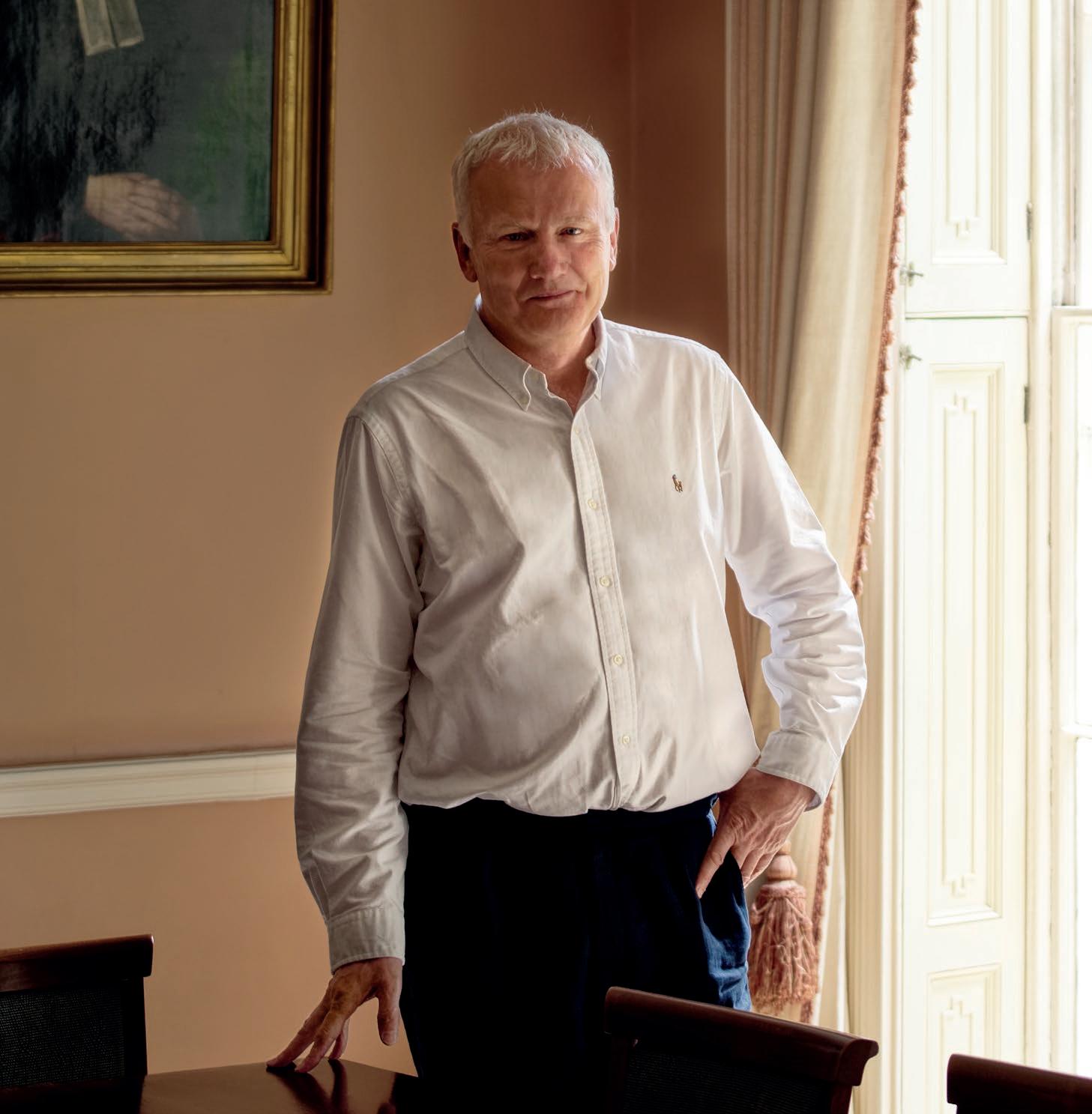
OBE
All rights reserved. No part of this publication may be reproduced, storied in a retrieval system, or transmitted, in any shape or form by any means electronic, mechanical photocopying, recording or otherwise without the prior permission of Westminster School.
The views and opinions expressed by writers within The Elizabethan Newsletter do not necessarily reflect those of Westminster School. No responsibility is assumed by the publisher for any injury and/or damage to persons or property as a matter of products liability, negligence or otherwise, or from any use or operation of any methods, products, instructions or ideas contained in the material herein.
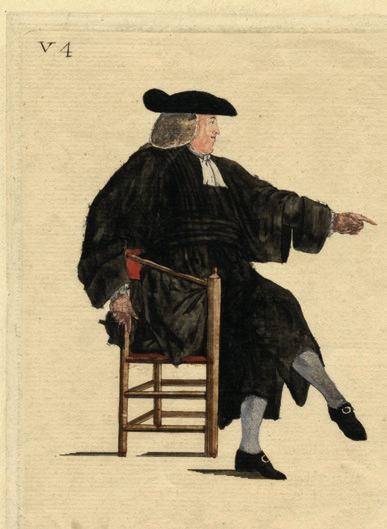
The Westminster School Development Office
Jane Griffiths
Director of Development
Rhiannon Jones-Hopkins
Alumni Relations and Engagement Manager
Kat Stobbs
Development and Community Giving Manager
Luke Meadows Database and Gift Administration Manager
Abi Philips Development Officer
alumni@westminster.org.uk +44 (0)20 7963 1113
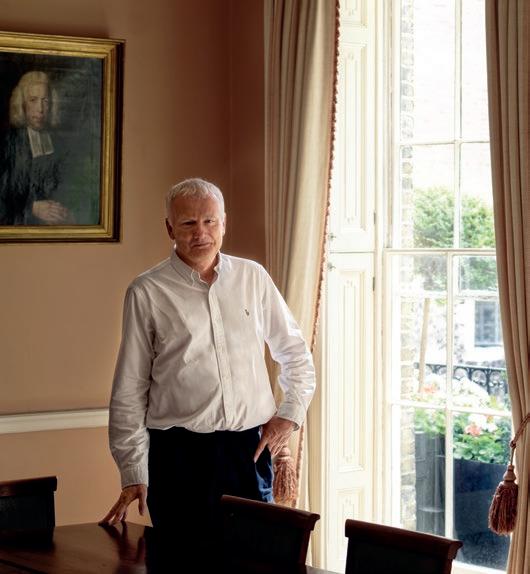
The Elizabethan Newsletter
Editor: Rhiannon Jones-Hopkins

Assistant Editor: Abi Phillips
Design: Haime & Butler
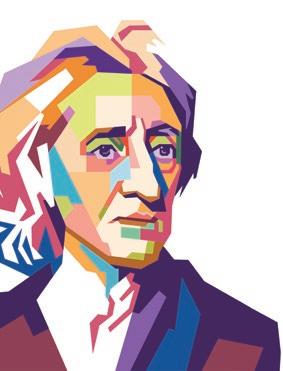
Print: Lavenham Press
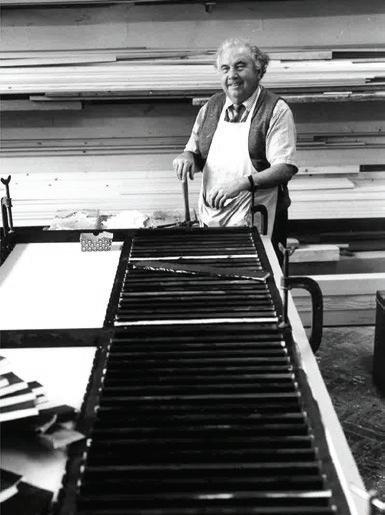

Westminster School is a registered charity in England and Wales (no 312728).
Information is correct at time of print.
ISSUE 2019/20 The Elizabethan Newsletter 02 03
Contents 12 14 04 From The Editor 04 From The Chairman 05 Welcome from the outgoing Head Master, Patrick Derham 10 The Development Report 12 Westminster's Response to COVID-19 14 A Lasting Legacy 18 Events Photo Gallery 20 OWConnect 22 In Conversation with outgoing Head Master, Patrick Derham OBE 28 Sports Reports 30 The Record of Old Westminsters 30 Dates for your Diary 30 The Next Generation of OW Lawyers 33 House Reports 34 School News 36 Westminster's Ghosts 38 Alumni in Print 41 The Old Westminsters’ Lodge 42 From the Archives 46 In Memoriam 36 42 22 41
to
OW
not
a
newsletter.
The Elizabethan Club are always looking
re-connect to any
or former staff who did
receive
copy of this
If you know of anyone who did not receive a copy who would like to, please ask them to email alumni@westminster.org.uk
From The Editor
A tremendous thank you to all the OWW who contributed to this year's Elizabethan Newsletter. It is incredibly rewarding and exciting to work with such an engaging and dynamic group of individuals, who make up the OWW community.
If you have any suggestions as to how to improve the Elizabethan Newsletter, or any comments regarding the publication, please do get in touch.
We are always on the lookout for interesting stories and articles from our OWW and contributions to the Newsletter are warmly welcomed throughout the year.
I must make mention of the fact that most of this edition’s content was written before the COVID-19 outbreak. Please see page 12 to read of the School’s response to the pandemic, and how it has ensured that pupils continue to receive the very best education in extraordinary circumstances.
With best wishes,
Rhiannon Jones-Hopkins
Alumni Relations and Engagement Manager rhiannon.jones@westminster.org.uk
Tel: +44 (0)20 7963 0122
From The Chairman
Dear Old Westminster
By the time we all receive this edition of The Elizabethan Newsletter, hope that the lockdown in which am writing this, has ended.
The nature of what we are experiencing globally, has no doubt impacted us all and unfortunately, it has resulted in the cancellation of numerous alumni events which had been planned for the remainder of the 2020 calendar year.
This year is my last year as your Chairman and, although I will be remaining on the Committee, am very pleased to be handing the reins over to Jessica Chichester. am grateful for having had the opportunity to work with the departing Head Master, Patrick Derham, who has been an enormous supporter of the Club and the OWW community during his time at the School.
It goes without saying, that I owe a great deal of thanks to the members of the Elizabethan Club Committee, who play a significant role in ensuring that the Club remains active and our members engaged.
Finally, my deepest thanks goes to the Development Office for all of their hard work in ensuring that our various events are a success and that this publication in particular, is created.
I very much look forward to meeting many of you at Elizabethan Club events, in the future.
With all good wishes,
Artin Basirov
If you are receiving a hard copy of this Newsletter, it is because you missed the deadline to give us your e-communications consent. In an effort to become more environmentally conscious, we are sending the majority of Newsletters via email.
Please update your preferences here, to make sure you keep receiving future Newsletters, and all relevant OW communications.
Update your preferences here! www.oldwestminster.org.uk/ stay-connected
Elizabethan Club Committee
Jonathan Carey, President (GG, 1964-69)
Artin Basirov, Chairman (GG, 1989-94)
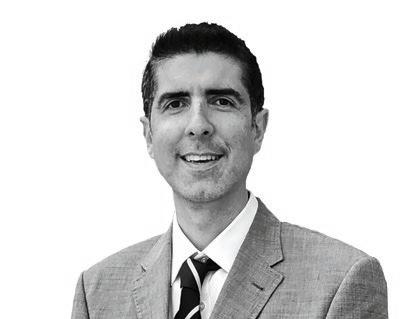
Charles Low, Treasurer (CC, 1967-72)
Jessica Chichester, Secretary (GG, 2000-02)
David Roy, Vice President (AHH, 1955-61)
Tim Woods, Vice-President (GG, 1969-74)
Nick Brown, Vice-President (RR, 1968-73)
Matthew Webb, Sports Rep (BB, 1999-04)
Arnav Kapoor, Young OW Rep (MM, 2010-15)
Poppy Maxwell (PP, 2008-10)
Emma-Jane Gordon (LL, 2012-14)
Oliva D’Silva (GG, 2008-10)
James Kershen (WW, 1981-86)
Paul Dunn (AHH, 1991-93)
Henry Johnson King (LL, 2007-2012)
Gavin Griffiths (WW, 1967-1972)
Noel Watson-Doig (RR, 1994-1996)
Welcome from the Head Master
Patrick Derham OBE
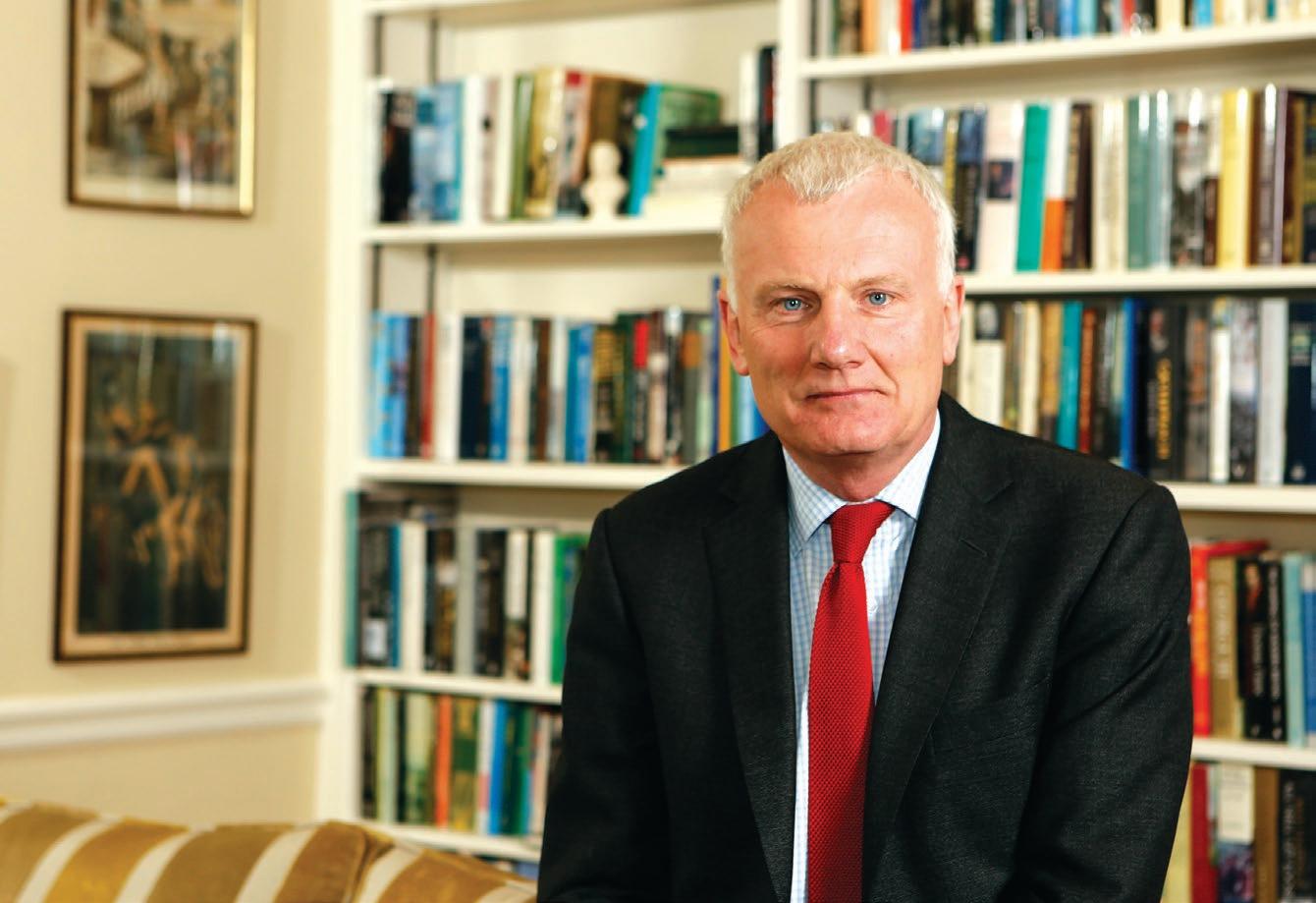
Written before the COVID-19 pandemic outbreak
It is with very mixed feelings that I begin what is my final letter to you. I have spoken on various occasions over the course of recent months about my departure. Westminster is going to be very difficult to leave. It really is the most wonderful school and I am very envious of Gary Savage who replaces me after six extraordinary years in a place that will always be very close to my heart.
Before the move to Westminster we had a minisabbatical driving across the United States. Towards the beginning of our road trip we were in Santa Fe and visited the Basilica of St Francis. There is a plaque in there that really caught my eye. It said: ‘Rooted in tradition. Building for the future’; these sentiments could have been written about Westminster School.
This is a school with an extraordinary tradition and yet it is an institution, a community, that is forward thinking, never complacent and always looking to improve and to be a leader.
I thought that I would share with you some thoughts and memories of my time here, focusing on this past year, which demonstrate the truth of what I have just said and which underlines how making the decision to leave Westminster was the hardest decision of my life.
The starting point has to be the absolute privilege it has been to have worked at Westminster. Sitting here in my study, looking out over Dean’s Yard, as I have done for the last 6 years, one is reminded every day of the history and traditions of this school. Indeed at my first Big Commem I talked about this. When we join an institution such as this school, whether as pupils or staff, we become part of a thread of history which in this school’s case runs back at least 460 years to the re-founding in 1560. When we look around us at what the school is now, we see the results of the endeavours of all those who, before us, have been part of that thread. ➽
ISSUE 2019/20 05 04 The Elizabethan Newsletter
At its best tradition is surely a link with the best habits of those good people who have gone before us, so that, as we puzzle over our own place in the world, we feel connected with what has gone before and with what will come after us. Tradition is therefore not static, except in its essential values; it is dynamic. At its best, habit, routine and tradition give us a sense of belonging, a reference point in the midst of confused alarms of struggle and flight, some confidence to do things, to share life joyously with other people, to carve out some kind of career.
And the details of tradition are there simply to get at what really matters - the eternal, essential need for human beings to behave decently towards each other. That is what one generation must pass on to the next; that is what lies at the heart of tradition.
My second thought is that we continue to do well academically but not at the expense of anything else. We returned in September to another stellar set of public exam results. For the tenth year running last year’s Remove achieved over 50% of their grades at A* or the Pre-U equivalent, a feat no other school has matched, with an impressive 55.7%. Last year’s Upper Shell produced record breaking GCSE results with 91.2% A* or equivalent at GCSE.
One of the main advantages of operating as a boarding school is the breadth of activity on offer and the lessons learned outside the classroom which are as important as the more formal schooling that take place inside the classroom. There are so many memories of this year alone that I cannot do justice to it in the confines of this letter to you. Sport continues to flourish and what delights me is that not only our quest for excellence in all sporting areas but the fact that there are opportunities for all to take part. The same is true on the musical and drama front and in recent weeks just reflecting on the quality of the choir (particularly in the Carol Service), the numerous Concerts of the most impressive quality and the excellent production of Little Shop of Horrors underlines this. We see it in the quality and range of pupil led societies. We see it in the range of community service activities (more on this later) and in our charity endeavours.
None of this could happen without the staff and Gary Savage is fortunate to inherit such a committed and hardworking teaching and non-teaching staff. I want to single out the quality of the Senior Management Team in particular. They are without doubt the strongest senior team I have ever worked with and I am grateful to them for their hard work and support and their total commitment to the community.
My third reflection concerns the physical site. I make no apology for repeating what I have said before but to be where we are is a privilege beyond words. To have Westminster Abbey as our Chapel is awe-inspiring; Little Dean’s Yard is not just an architectural treasure-house, it is a blissful oasis of calm. We are so fortunate to have Vincent Square and the
The details of tradition are there simply to get at what really matters – the eternal, essential need for human beings to behave decently towards each other. That is what one generation must pass on to the next; that is what lies at the heart of tradition.
boathouse at Putney punches way beyond its weight. There is one change to Little Dean’s Yard that is worth highlighting.
The completion of the new building on the site of the former Adrian Boult Music School provides a large top-lit meeting room with direct access from the medieval Blackstole Yard. This provides a new and alternative way into to the school’s campus that avoids the traditional Little Dean’s Yard entrance, and which therefore improves child protection during public events. The new room has been constructed on the highly sensitive site of the former Great Kitchen of the Benedictine monastery of Westminster, whose partsurviving eleventh century outer walls have been uncovered and carefully re-exposed to the surrounding rooms and passageways. A section of glass in the floor of the new room now shows some of this fine archaeology. The floor has been lowered to the level of the neighbouring Ashburnham House, the one-time residence of the Prior of Westminster. The new room now connects seamlessly into its neighbour, requisitioning the medieval kitchen of the Prior’s house, with its massive brickwork fireplace opening, which had long been used as a tuck-shop store. It is a stunning addition to the school’s Estate.
Above all though I reflect on the fact that Westminster continues to be seen as leading and innovative in all sorts of areas. The lead we have given is something that I think Dr Busby, and many of his illustrious successors, would feel proud of. We are a key part of the national debate and that is as it should be.
We continue to do well academically but not at the expense of anything else
For the tenth year running last year’s Remove achieved over 50% of their grades at A* or the Pre-U equivalent, a feat no other school has matched, with an impressive
55.7 %
91.2% A* or equivalent at GCSE for last year’s Upper Shell which are record breaking GCSE results
1560 Society – sign up here: www.support.westminster.org. uk/the-1560-society/
Annual Giving Report –Read an online copy here: www.support.westminster.org. uk/annual-giving-report/
The Westminster Campaign –wacth the campaign film here www.westminster.org.uk/ support-us
The area where we are leading by example is with The Westminster School Campaign . I am delighted to share with you that just over a year after the launch we have reached the £6m mark. This sets us well on track on the journey towards raising the first £50m of what will be a long-term mission to build Westminster’s first ever Endowment Fund dedicated to means-tested bursaries. We have ambitious goals to be the first truly ‘needs-blind’ independent school, meaning that in the fullness of time we would have enough funding to offer financial assistance to every pupil in the School, were they to need it.
We still have a very long way to go, though, and this year we also launched The 1560 Society – our new regular giving society. If you haven’t yet signed up to a direct debit to support the School’s charitable aims, then please visit: www.support.westminster.org.uk/the-1560-society/
Every single contribution towards the Campaign, no matter how small or large, will make a difference. On the same night, we were also thrilled to share our first ever Annual Giving Report with the Westminster community. This report showcases the outstanding generosity of our supporters and the impact of charity, outreach and philanthropy here at Westminster. You can take a look at the report here: www.support.westminster.org.uk/annual-giving-report/
For more information about The Westminster School Campaign, please watch our campaign film by visiting: www.westminster.org.uk/support-us ➽
ISSUE 2019/20 The Elizabethan Newsletter 07 06
Closely allied to the Campaign is our Platform programme as we strive to remain at the forefront of initiatives to widen access and to provide educational opportunities in the community. The Platform programme, now in its fourth year, offers a series of academic sessions on Saturday mornings to 38 talented Year 5 pupils from maintained sector schools. The aim of the session is to enrich and extend pupils’ learning through challenging teaching and content across a range of subjects taught by specialist teachers. In 2019 we were delighted to launch Platform Plus in STEM subjects for Year 10 pupils. This year, we have extended the number of schools who nominate their pupils for the programme and we have developed a Liberal Arts programme to complement the STEM pathway. We envisage that recruitment to Platform +, like its Platform counterpart, will be driven by pupils and families themselves in future. We are also exploring ways in which we can continue to support Platform participants after the programme, such as in careers planning and UCAS advice, regardless of the school they attend at 16+. This Platform HE programme will in time be transformational. We are also developing plans to offer a Platform programme specifically aimed at Children in Care.
These initiatives fit squarely with the school’s ethos as does our ground-breaking work with the Harris Federation.
Harris Westminster Sixth Form is now in its sixth year and it continues to go from strength to strength. The partnership works at every level: governor, Head and senior staff, staff and pupils. We were delighted with their success in Oxbridge this year (44 offers) and with the fact that we won a major TES Award for best independent state school partnership.
Talking to the pupils, it is their involvement in service-based activities which make the greatest impact, be it our volunteering and civic engagement programme which is flourishing, or Phab (it was the 43rd Westminster Phab in 2019) which goes from strength to strength. I will return to this theme at the end.
My final thought is something that has really struck me in recent months. Schools are more than exam results, efficient systems and processes, great facilities, brilliant co-curricular programmes. Yes, all of these things are important but the basic truth is that schools are about people. This is what I will miss most. Even on the occasional dark day, having lunch up Grant’s or in College Hall, watching the pupils in action in a dizzying array of activities, and visiting a House in the evening reminds me of what a privilege it is to work with such remarkable young people. It is the people that make the community and who have made this such a wonderful place to live and work.
Throughout my six years the warmth of the welcome from former pupils has been an equal delight. I am constantly struck by the unpretentiousness and the desire to give back that I think is the hallmark of Westminsters of all generations. I want to say thank you to Artin Basirov and all of the Elizabethan Club Committee for their hard work and support. I wish Jessica Chichester every success as she steps up to be Chairman.
My final thought is something that has really struck me in recent months. Schools are more than exam results, efficient systems and processes, great facilities, brilliant co-curricular programmes. Yes, all of these things are important but the basic truth is that schools are about people. This is what I will miss most.
All of us are fortunate in the lives we have led and in the opportunities we have been given at Westminster and beyond, but with that good fortune comes a responsibility to think of others and to aim to give something back to our community and society.
I began by mentioning my mini-sabbatical and I want to finish with a reflection from another part of that drive across the USA. We visited the museum in Dallas and stood on the spot where Kennedy was assassinated and at the end of our trip we visited Arlington National Cemetery in Washington DC where JFK is buried. On a low curving wall in Arlington seven sentences from the inaugural address of JFK are chiselled into granite tablets below the slain President’s grave. The first two sentences are from his opening paragraphs, the other five from his concluding ones. They total 226 words, one sixth of the speech that is the 4th shortest Presidential inaugural address. Many historians and commentators consider this inaugural address to be one of the finest speeches ever delivered by an American. One of the seven sentences that is chiselled into the Deer Island granite by the graveside of JFK, his wife and his two infant children, is particularly striking. It is the sentence that has been braided into the American soul and comes towards the end of Kennedy’s speech delivered on a cold January morning in 1961. It is this:
And so, my fellow Americans: ask not what your country can do for you - ask what you can do for your country’
These words, along with the rest of the speech, electrified the young in particular, kindling a wildfire of idealism that blazed across the 1960s and beyond. This master sentence was a distillation of JFK’s philosophy and experience and it was the logical and emotional climax of his inaugural address. The concept of ‘Ask not’ was not original though. When he was at school at Choate his Headmaster frequently said that what mattered most was ‘not what Choate does for you, but what you can do for Choate’ and there is no doubt that his Headmaster, and JFK himself, would have been familiar with what the great Roman philosopher and orator Cicero had said, ‘you should do something for your country once in a while instead of always thinking about what your country can do for you.’
For me JFK’s words resonate down the years to us all. All of us are fortunate in the lives we have led and in the opportunities we have been given at Westminster and beyond, but with that good fortune comes a responsibility to think of others and to aim to give something back to our community and society. JFK was fond of quoting a verse from Luke’s Gospel which makes this point really very clearly, ‘for unto whomsoever much is given, of him shall much be required.’
That has been my wish for all the Westminsters who have been at Westminster in my six years. It is not a bad message for all of us though. JFK’s challenge all those years ago is something that I know Westminsters have responded to throughout their lives, and those sentiments, I think, are the key characteristic of Westminsters of all generations. I hope and pray that will continue to be the case.
Floreat.
ISSUE 2019/20 The Elizabethan Newsletter 09 08
THE DEVELOPMENT REPORT
Jane Griffiths Director of Development
Since arriving at Westminster School at the end of 2019 I have been amazed by the incredible generosity and support of the School by the Old Westminster community. Those of you that I have had the pleasure to meet have been incredibly welcoming and warm, helping to make my transition into this role a very positive experience.
400+ members of our community support the School through regular donations
Our online platform for all OWW communications, news and engagement (www.owconnect.com), continues to thrive and I am delighted that so many of our alumni have joined the site. For those of you who have yet to join, encourage you to sign up, get in touch with former classmates who are members, find out who is in your area, share your photos and stories of your time at School and see what OWW clubs and societies are available for you to get involved with. We anticipate sharing exciting new content on the site over the coming year, allowing for OWConnect to truly be your one-stop-shop for all things Old Westminster.
October 2018 was a significant milestone in the history of Westminster School, with the announcement of the School’s commitment to become truly needs blind, through the launch of The Westminster School Campaign for bursaries. We were delighted to welcome so many members of the Westminster School community up School in November 2019, for the First Year Celebration reception, of the Campaign. At this event, we annouced the launch of The 1560 Society; a society to recognize and thank all those who support the School through regular donations. Over 400 members of our community support the School in this way and we hope that many more OWW and friends choose to sign up and join this wonderful Society.
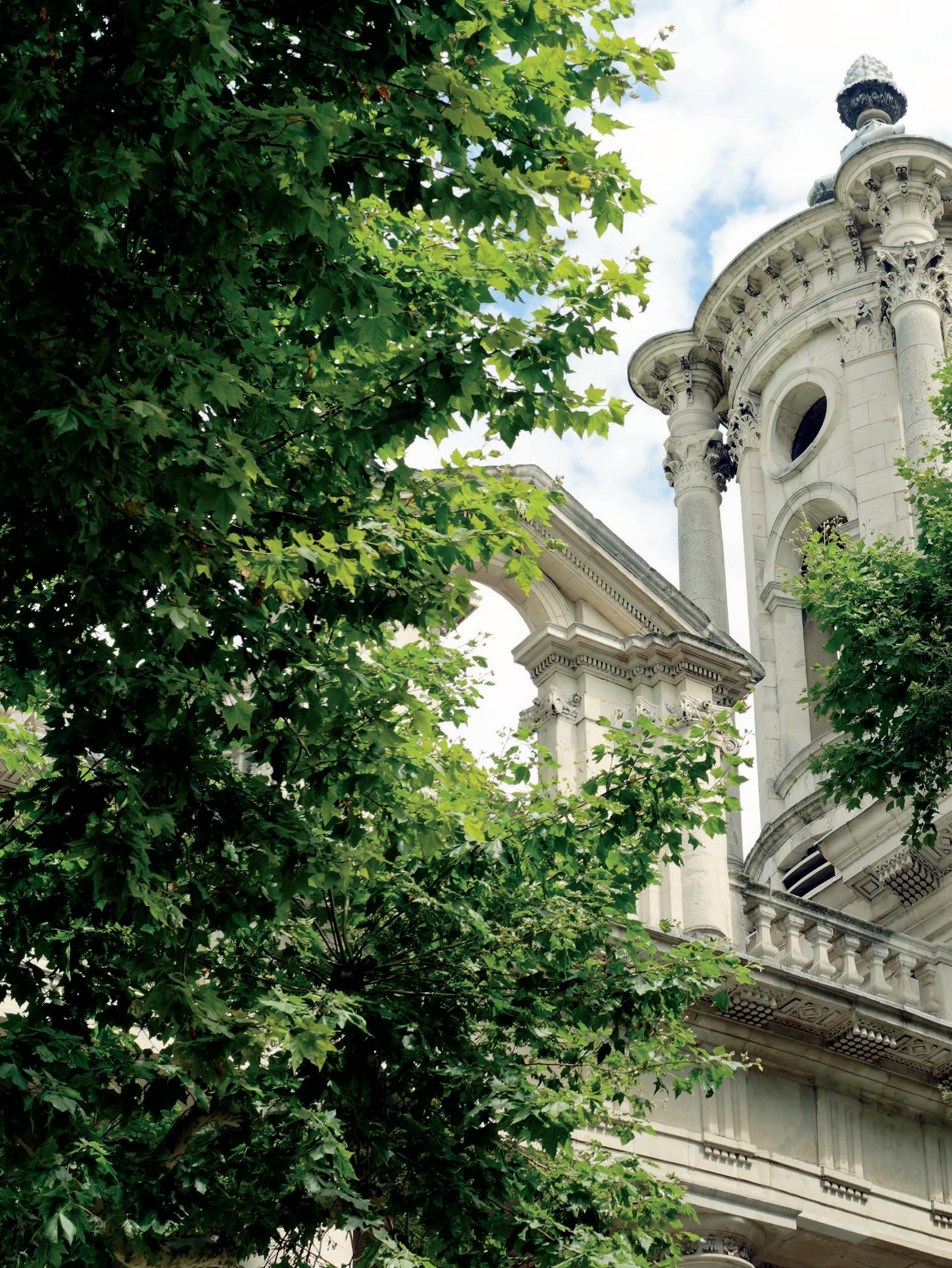
You may be interested to see our short Campaign film here, which sums up what we are seeking to achieve, in a nutshell: www.westminster.org.uk/ support-us
In the meantime, if you have any reflections or ideas that might help, or indeed if you have any questions, please get in touch with me, as would be delighted to discuss the Campaign with you in more detail: jane.griffiths@westminster.org.uk
Moving on to GDPR; many of you will have been contacted by us to ask for your consent so you can keep receiving emails from us about upcoming Elizabethan Club events, news from the School, and updates about a whole host of ways you can get involved with the School and OW community. If you didn’t see the email, or maybe missed your chance to ‘opt in’ previously, please email the Development Office at developmentoffice@westminster.org.uk to tell us that you want to stay in touch.
On a similar note of staying in touch, we are still very keen to reconnect with as many former staff as possible, as we would like to see more of them at Elizabethan Club and School events throughout the year. However, we need their contact details! If you are in touch with any of your former Masters, Matrons or Westminster School colleagues, please encourage them to contact the Office – we would be delighted to be able to invite them to join us at OW events and celebrations in the UK and overseas.
We would love to keep in touch with as many OW and former staff as possible –if you'd like to hear from us please email: developmentoffice@westminster.org.uk
I would also like to thank everyone who has made their own personal contribution towards the School this year. Record numbers of OWW have put themselves forward as mentors for younger alumni, attended events and engaged with School news and updates by contacting the Development Office directly. Many OWW have kindly donated towards the School’s fundraising initiatives this year, including to the George Herbert Fund; a fund created specifically to provide financial support to those pupils and their families who have been significantly impacted as a result of the COVID-19 pandemic. We are all facing uncertain times, but for those pupils who may otherwise have been unable to continue their education at Westminster, your gifts will help to ensure security in their education for the immediate future. We thank you on their behalf.
Whatever the exact nature of your support, it is enormously appreciated and helps to make a major difference to the impact of Westminster School on future generations of young people.
I look forward to meeting many more of you at OW events and gatherings in the future.
With warmest wishes, Jane
The Development Office
+44 (0)20 7963 1113
developmentoffice@westminster.org.uk
11 ISSUE 2019/20 10 The Elizabethan Newsletter
Westminster’s Response to
COVID -19
With only days to prepare, lessons were moved entirely online. Pupils have responded with Westminster grit and determination, with some overseas pupils in different time zones waking up to to be in class and contribute.
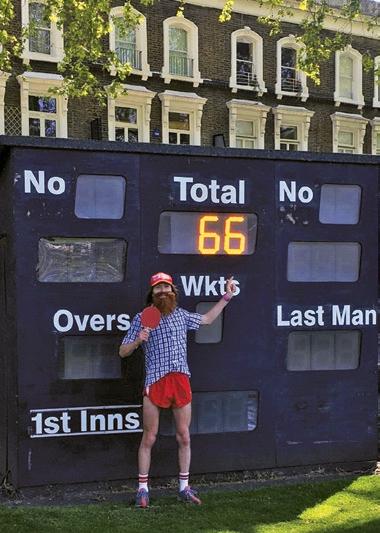
The Head Master, Patrick Derham, has said the following: “These are extremely challenging times and Westminster School remains determined to do all it can to continue to deliver an excellent education, while ensuring that the safety, health and wellbeing of its whole community remain paramount.”
Teachers, housemasters and heads of departments all went above and beyond to ensure the provision of holistic online classrooms, and parents have praised the School for the quality of teaching which is being provided remotely. Of course, there is sadness for the pupils who will miss out on the opportunity to sit their final exams, enjoy their Leaver's Ball and experience that final service in Westminster Abbey. However, these same pupils now know that they will be able to meet any future academic and professional hurdles with the flexibility and resilience that this pandemic has necessitated.
Virtual Abbey services and addresses from pupils, ensure that the sense of community which is so crucial to the full Westminster School experience, have also been a wonderful success.
Pastoral care has not taken a back seat, with the usual safeguarding and wellbeing measures being made a priority in these particularly challenging times. The School immediately recognised the need for a strong emphasis on pupils maintaining mental and physical health and encourage the use of a range of online resources, to help them navigate the world that they now find themselves in.
Outside of the classroom, the School has also been supporting it's local community, with PPE materials from the Hooke Science Centre being donated to local hospitals, and staff who live in and around the School site volunteering to help pack masks for frontline workers.
Additionally, in response to the pandemic, the School created the George Herbert Fund; a fund which will provide financial assistance to those pupils whose families who have been significantly impacted as a result of the COVID-19 outbreak. This fund will ensure that all current pupils are able to continue their education at Westminster, and donations which have already been made to the Fund, are gratefully received.

Whilst we shall all remember this time as one of uncertainty, panic and loss, we shall also remember it as a time of unity, resilience and cooperation; an overwhelming example of the phenomenon that is the Westminster spirit. ■
There have been incredible acts of generosity during the 2.6 Phestival; a re-imagining of the London Marathon to support Phab. Challenged with completing tasks, physical and mental, in increments of 2.6, pupils and staff have cycled, run, rowed, recited Pi to 26 places and even completed a 2.6 mile Ministry of Silly Walks style trek across London to support the cause. Our very own Jim Allchin is the inspiration for the 2.6 Phestival as he ran 66 laps of Vincent Square on the 26th of April (equivalent distance of the marathon).
Westminster School, known for its progressive and innovative ethos, met the challenge of COVID-19 with the same commitment to excellence that drives all aspects of a Westminster School education.
Donations to the George Herbert Fund can be made here: www.westminster.org.uk/ support-us
12 The Elizabethan Newsletter 13 ISSUE 2019/20
A Lasting Legacy
By Rhiannon Jones Hopkins
Kennith ‘Fred’ Fredrick Holt was a School Carpenter for over 30 years, who sadly passed away in 2019. A master craftsman, he left a visible imprint on the School, in more ways than one.
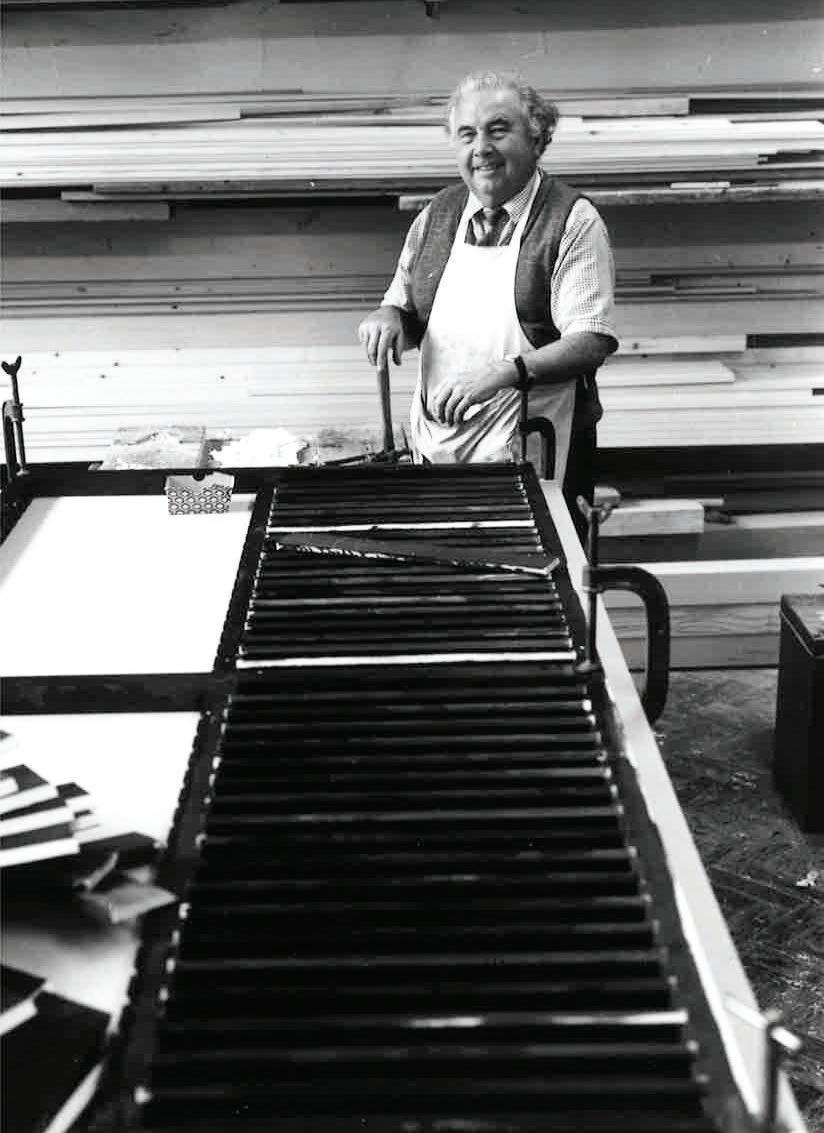
Paul Gumbell, who worked alongside Fred for thirteen years, paints a vivid picture of his friend’s habits and singularity. Whilst hearing Paul speak, it becomes clear that throughout Fred’s tenure, Westminster went through a myriad of changes, both large and small. His memories and experiences of the School reveal the Westminster of decades past.
Never married and dedicated to his craft, Fred taught Paul the ropes of working at School and spent years passing on his encyclopaedic knowledge of carpentry to the many apprentices he mentored. Eccentric and riddled with as many idiosyncrasies as Westminster itself, Fred committed much of his life to School, whose staff became a surrogate family to him over time. A meticulous record keeper, his ledger dating back to the mid-seventies is now rightly kept in the School archives, and is recognised to be a unique artefact that shows the complexities of School’s daily upkeep.
Whilst Fred went about the daily tasks of keeping School’s sprawling buildings in good shape, he became a fixture that many came to rely on for help with set design, art installations and repairs. He was often tasked with replacing replacing countless numbers of window frames, damaged during enthusiastic games of football played in Little Dean’s Yard over the decades. He taught Woodwork at the School and campaigned to have the first female Westminster pupils included in his lessons, a fact Paul remembers Fred was especially proud of. A man of his time, he was a formal teacher, but was well respected for his command of the subject.
What Fred didn’t know about carpentry isn’t worth knowing, and the pupils knew how lucky they were to have him
During his time at School Fred saw many Royal visits, one of which was during the height of the IRA, where Paul remembers the police searched both of their toolboxes and firmly ➽
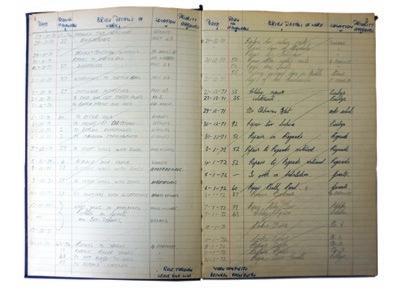

15 ISSUE 2019/20 14 The Elizabethan Newsletter
reminded them to “keep your feet off the lawn and do not to step on the grass when her Majesty is walking”; a glimpse into a much more traditional time, where hierarchy, both within the School and in society as a whole, was still deeply embedded in everyday interactions.
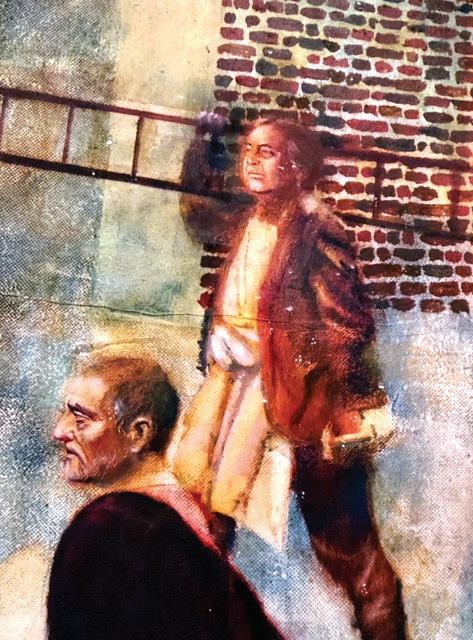
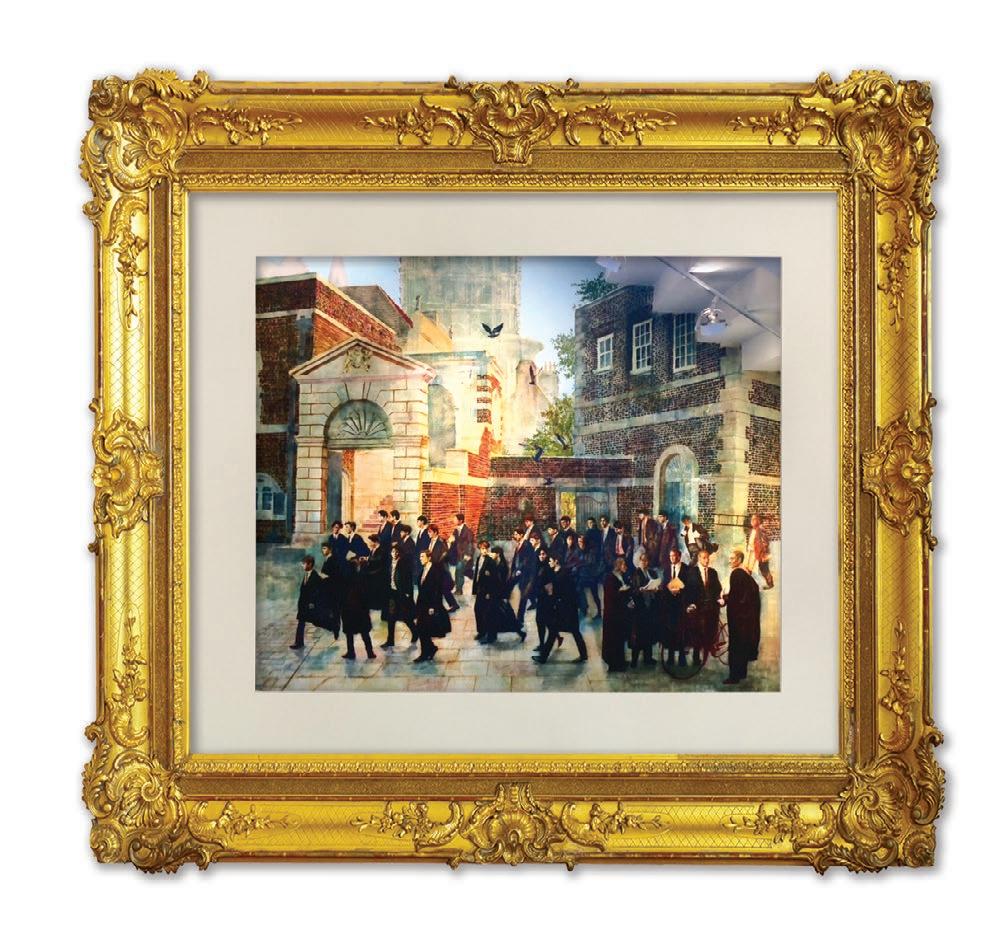
School was much smaller and more formal when Fred joined in the late sixties, and this formality was something that Fred took very seriously. Always well dressed and organised, he kept the woodwork room in an order that has not since been replicated. His respect for his tools remained throughout his life; from the day he retired in 1997 until the day he died, Fred’s tools were laid out in perfect condition in his home,
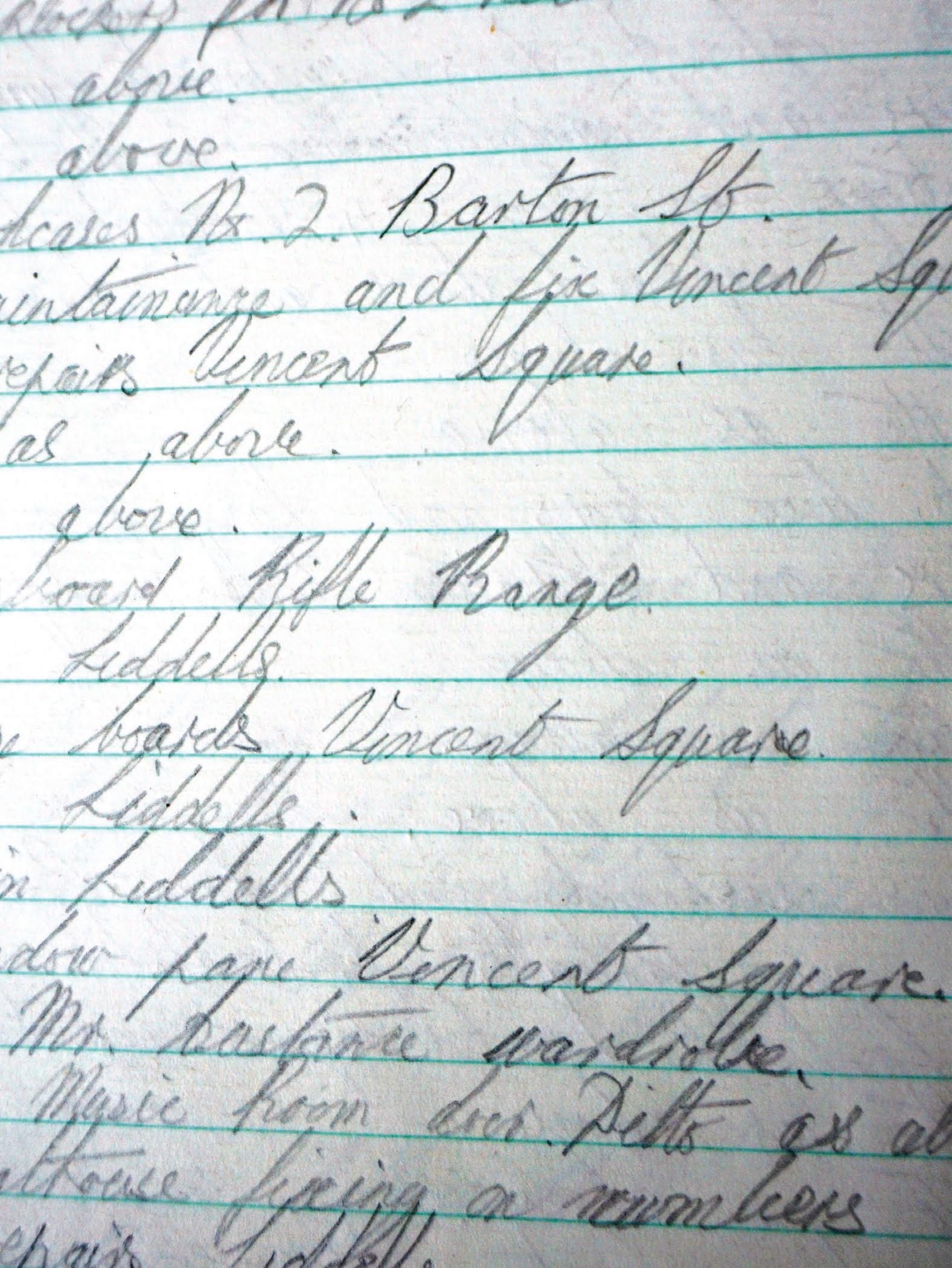
all lined up and proudly displayed. Fred was such an integral part of the fabric of School life that he is captured in a mural inCollege. Paul notes the subtle irony that he is painted carrying a ladder, as he was famously phobic of heights and would often been heard uttering some choice words anytime an errant ball was kicked into the loftier parts of School. Sadly Fred passed away in 2019, but not before remembering Westminster School in his Will. His legacy, already embedded within those that worked with him, will now continue through the financial impact his gift will have on the lives of future pupils.
If you are interested in hearing more about Legacies, please contact development@westminster.org.uk
16 The Elizabethan Newsletter 17 ISSUE 2019/20
When asked to sum up Fred in a few words, Paul described him as “a unique character; one in a million. You could never find a double of him. Quiet, gentle and so knowledgeable, a master craftsman and a lovely, genuinely nice person.”
Painting detail showing Fred carrying a ladder (bottom right of the mural)
Events
Photo Gallery
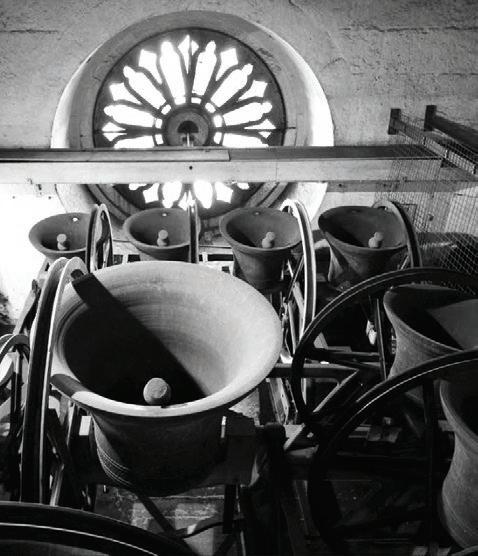
A look back at some of the year's OWW gatherings and School events.
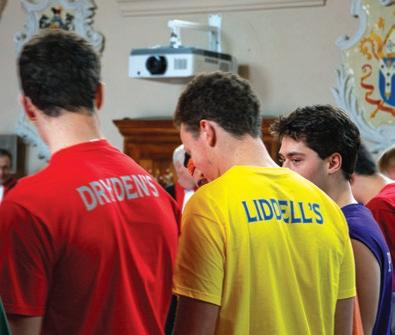
If you took some good photos at any of our OW events this year, please do send them to alumni@westminster.org.uk
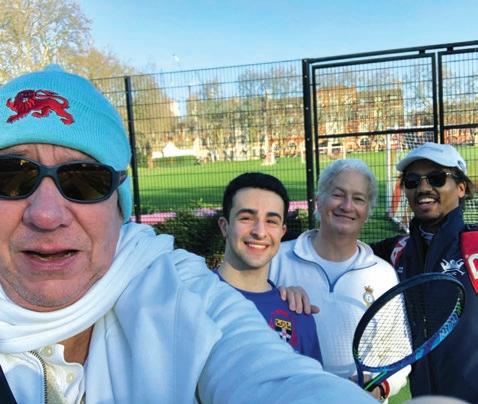
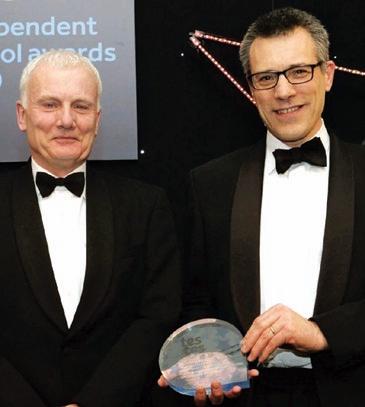
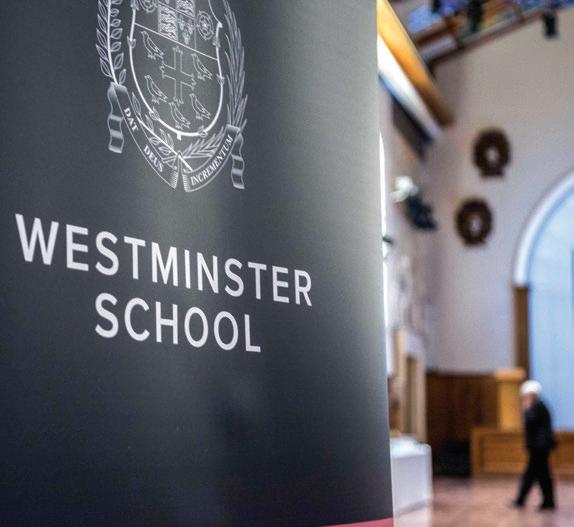
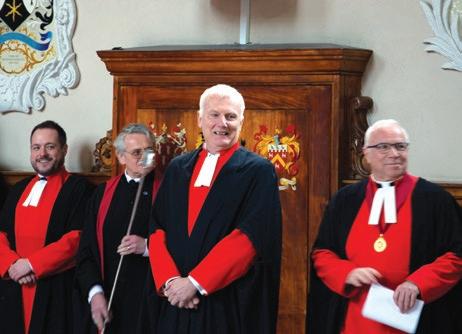
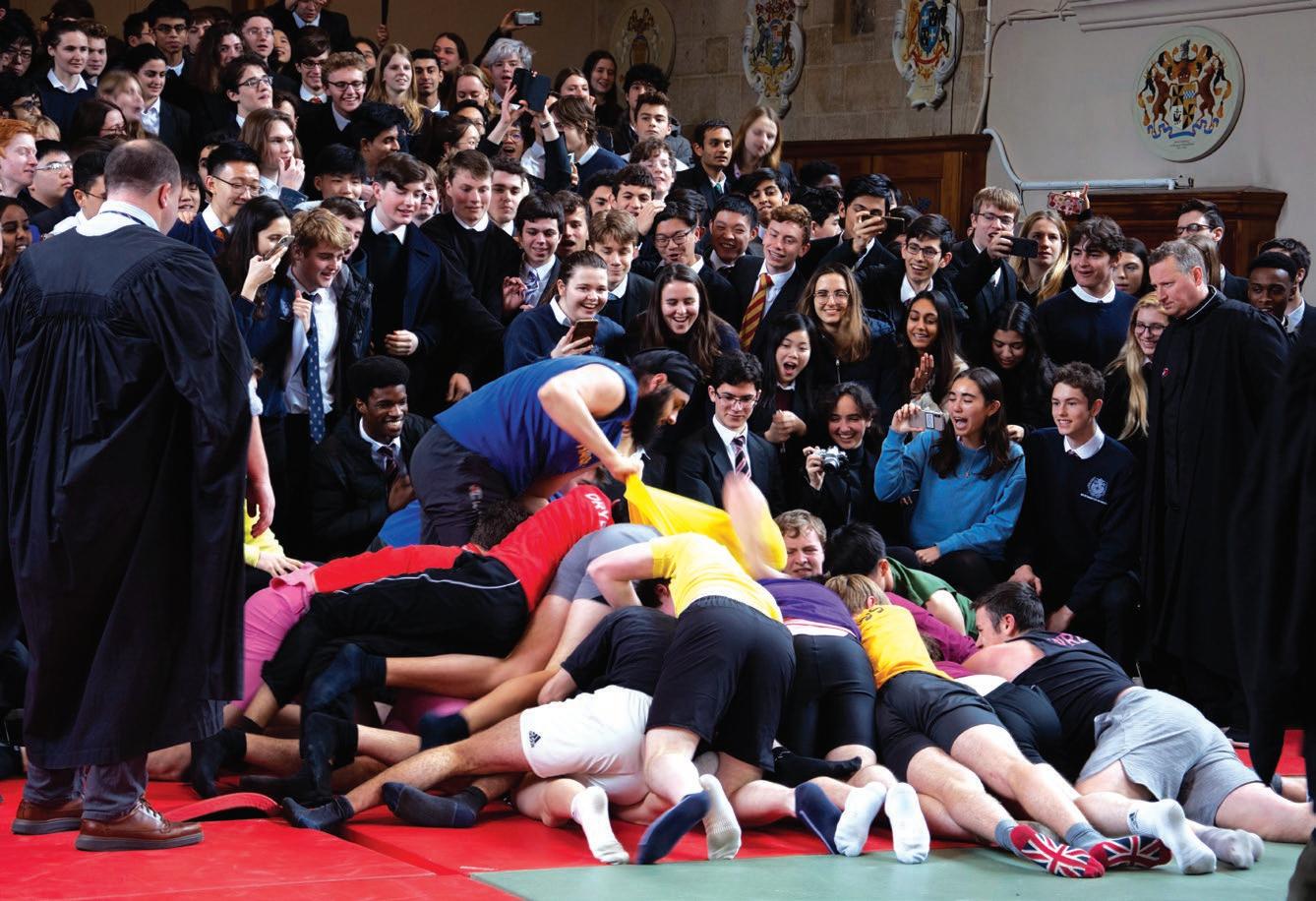
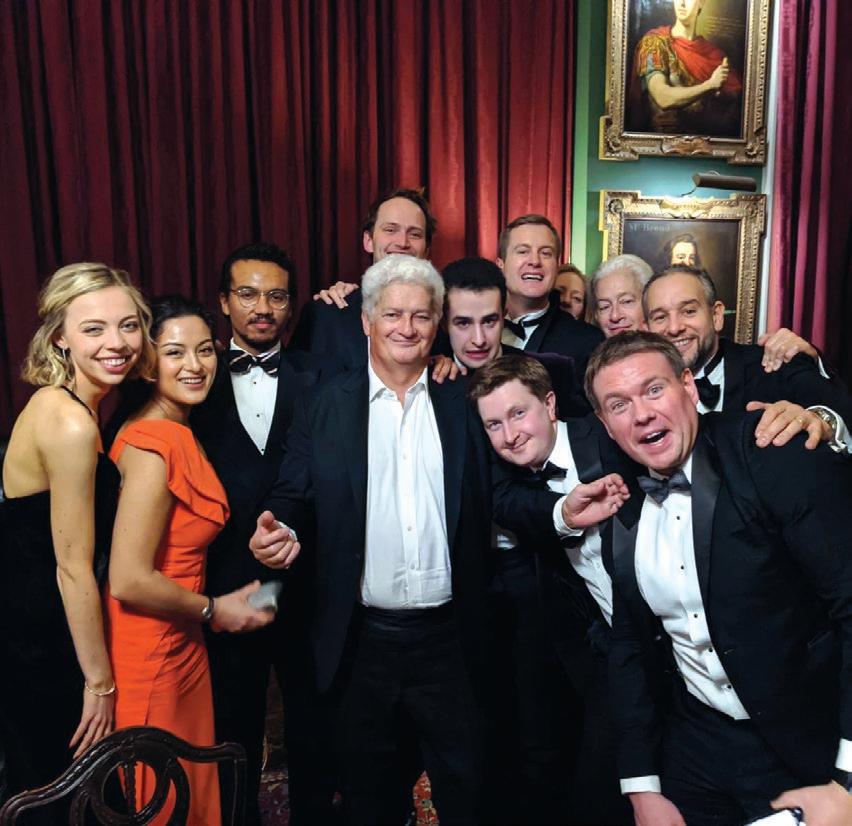

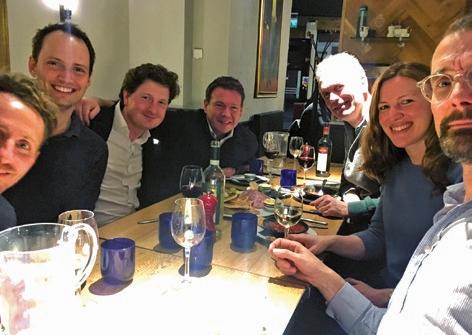

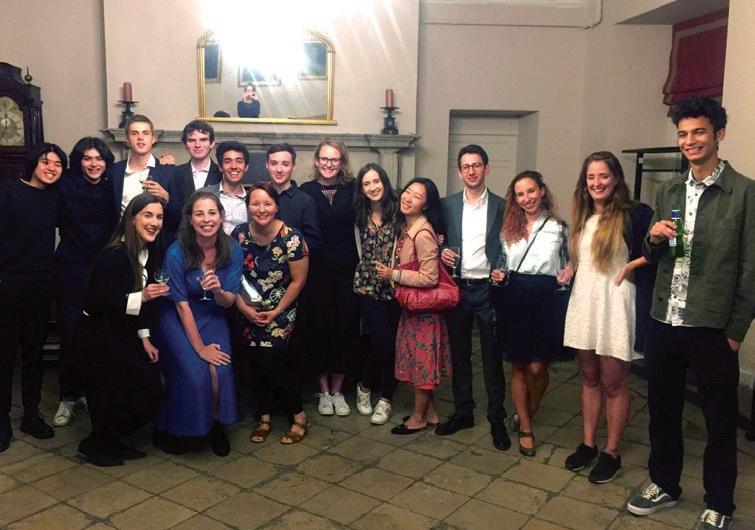
19 ISSUE 2019/20 18 The Elizabethan Newsletter
1970 Reunion
Celebration of Giving
The Greaze
Pizza! OW Tennis Society
Purcell's Reunion TES Award
Vincent Square, OW Tennis Society Bells rung on Election Day
Brooks, OWTennis Society
OWConnect
Connect and engage within the Old Westminster community
1,900+
OWW have registered to join the network already
What can OWConnect do?
Careers and Mentoring: Log in and click on the mentoring tab to match with OW professionals in your industry, with the updated algorithm making it easier than ever to connect. ▼
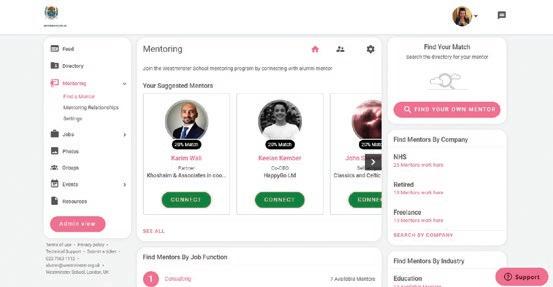
“A recent leaver contacted me ahead of an interview at Deloitte a month or so ago through OWConnect. We met for coffee prior to the interview and she got the job. I think she had found it very easy to reach out to people and it worked perfectly!”
Groups and Societies: Join any OW society, house society or group by simply indicating your interests at registration. Each group/ society can then post their own updates, photographs and information. All groups are easy to see, allowing for greater knowledge of what opportunities are available for you to get involved with your Westminster community. ▼
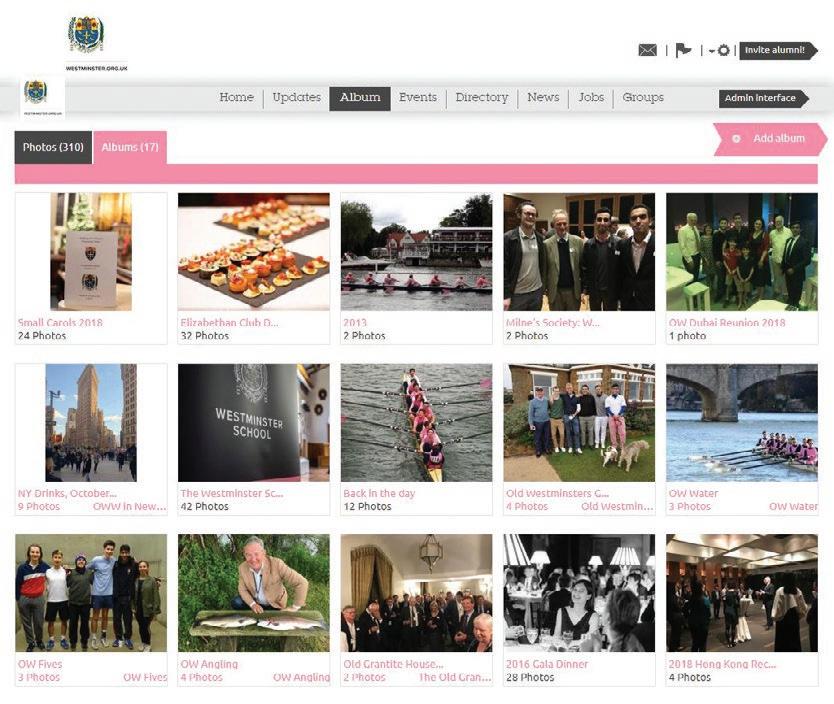
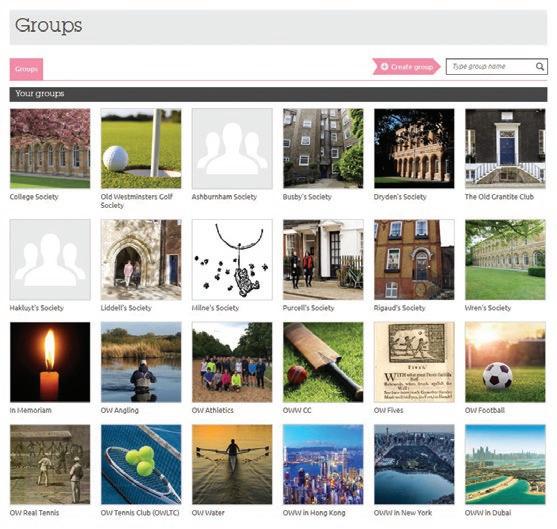
Jobs: Search for new career opportunities and apply directly within the platform. You can also post your own job adverts, allowing fellow Old Westminsters to apply directly.
Social Media: See all that the School is posting on its various social media channels, in one central location.
Events: Register for events quickly and easily with a simple booking system.
Album: Share your photographs from events, gatherings or your school days. ▲
Directory: Search the network for OWW in your local area, somewhere you’re travelling to or somewhere you’re moving to. You can also invite your own OW connections (from Facebook and LinkedIn) to the platform, if they have not already joined.

Give Back: OWConnect provides a simple way to give back to the School, either through volunteering or through philanthropic donations.
This incredible network is also available through your mobile device, with the OWConnect app able to be downloaded through the GooglePlay and Apple App stores. More information on how to access your exclusive alumni network through your phone or tablet, can be found on the main www.owconnect.com site. It is wonderful that so many OWW have already joined the network and started to make their own connections within it – over 1,900 of you have registered, which is phenomenal! The Elizabethan Club and the Development Office were elated to learn from Graduway, the company which builds and operates the site, that OWConnect is the fastest growing alumni engagement website that they have helped to create! It is proof that our Old Westminster community is one of the most active alumni networks in the world, outperforming other educational institutions such as Harrow School, Wellington College, University College London and the University of California, Los Angeles.
OWConnect is a new platform and it needs you to make it a success – sign up and start using it today!
Search for the “Graduway Alumni App” and once this has been found and downloaded to your device, insert the code number 1409520
21 ISSUE 2019/20 20 The Elizabethan Newsletter
OWConnect has a clean new look and new mentoring functionality, making it easier than ever to find a mentor in your industry and widen your professional network.
www.owconnect.com
In Conversation with Patrick Derham, outgoing Head Master
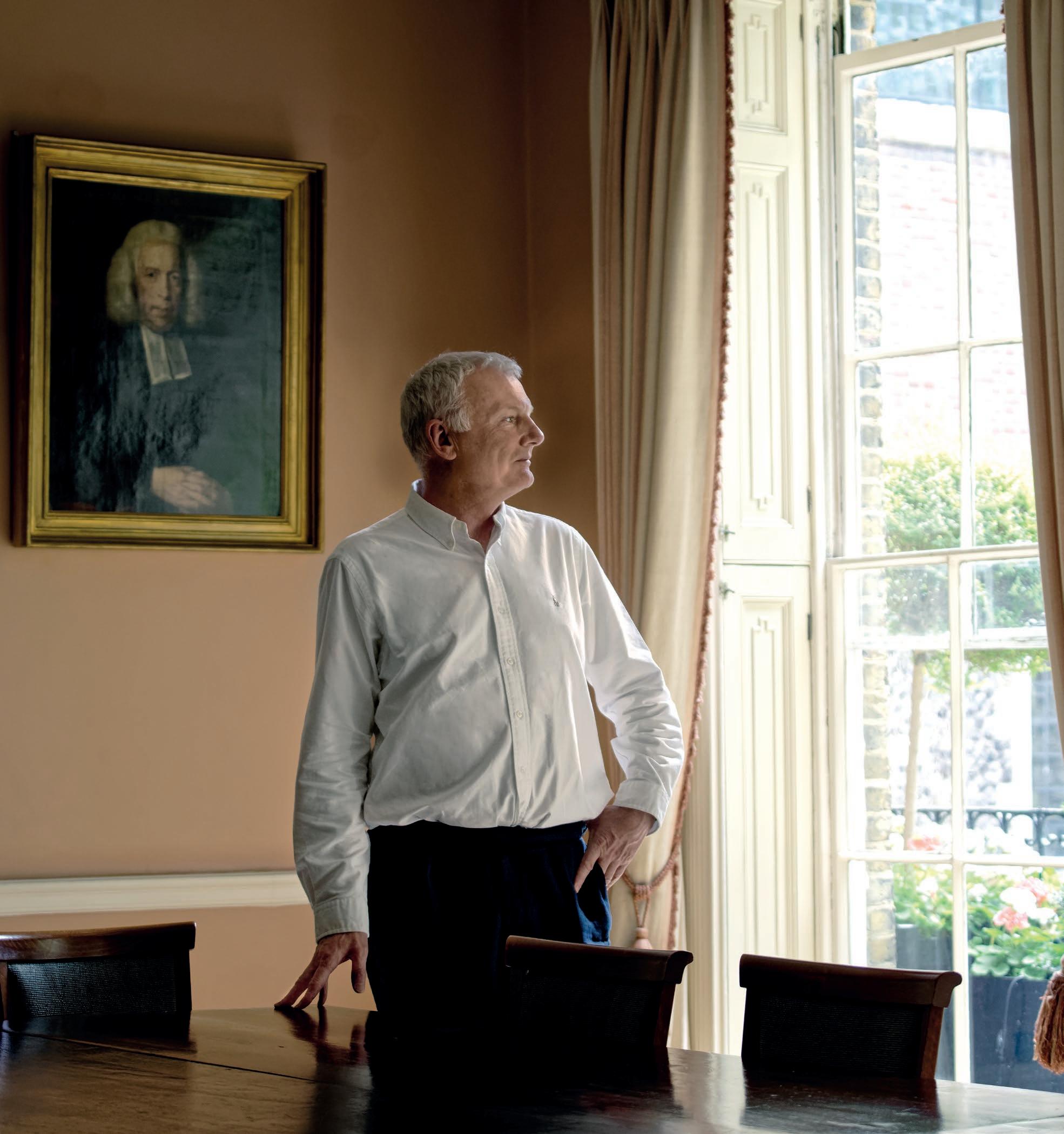
With one term to go, how are you feeling about moving on from Westminster? Or are you too busy to register that events and occasions are the last ones?
The extraordinary thing about being a Head Master is that the job never gets any easier – there’s never any respite so you don’t really have an opportunity to reflect on doing things for the last time. I’m as busy now as was when I came in 2014 and considerably busier than when I became a Head in 1996 because the nature of the job has changed so much. It’s with incredibly mixed feelings that I’m leaving because I love the job, but I think that one of the most important things about leadership is leaving at the right time. I’ve seen too many colleagues and friends in other professions who have ‘over stayed their welcome’ and I think that the challenge is to identify when you’re still loving the job and don’t particularly want to go but feel that it’s the right time. So that’s sort of how I feel –I love it and I’m teaching a fantastic A Level History set, possibly one of the best sets that I have ever taught, so it makes the leaving harder. Deep down I know that it’s the right thing and I’m sure that, come September when School will be resuming and I’ll be doing whatever, it’ll really hit home. But as yet, I haven’t really had the chance to think about it.
Your background is in History and you received your MA History from Pembroke College, Cambridge. What made you decide to pursue a career in teaching?
Because of my very dysfunctional education, when I ended up at my 8th School by the age of 14, I had some pretty inspiring teachers; though I was in a school where the overall intelligence wasn’t at the highest level. I had three really inspiring teachers who instilled in me a love of History and a love of Literature. When I went to Cambridge to read History, partly I think because of my Irish and Dutch roots and the history of my family, I had a deep seated empathy for the importance of History. Although I had lots of tempting offers and opportunities after graduation, I just felt that the thing most wanted to do was to share my love of History with as many people as I could, but in an environment when I could do the all-around School mastering. consider myself to have had the best job in the world because I do think that great teachers do change lives – the old clichéd advert that ‘everyone remembers a good teacher’, is actually true. I’ve loved the fact that throughout my Headship I’ve always taught an A Level set, which is quite unusual for Heads, but I do think that it’s important for the Head to be leading by example and from the front in terms of teaching. ➽
23 ISSUE 2019/20 22 The Elizabethan Newsletter
Kat Stobbs, Development and Community Giving Manager
What attracted you to Westminster School when you applied all of those years ago?
Having previously been a Head Master at two very different Schools, wasn’t sure I wanted to do a third, after becoming a Head at such a young age. I always thought that I would get Rugby School through the Rugby World Cup and then go into the Charity Sector. But when the Westminster job came up, it was actually a very easy decision to go for it because it’s the only School that I would have ever contemplated – the history of the School is so radically different to the Arnoldian history at Rugby and as a Historian, I’ve always been intrinsically interested in Westminster. When I did my research and met some key people here, it really was the classic ‘no brainer’. It’s been even better than I thought – it’s an extraordinary institution that is a very special place.
Are there any vivid memories from your first day here?
I think you cannot help but be bowled over by the association with the Abbey – my first service was being installed as the Head of the School by the Dean of Westminster. That was an extraordinary moment and every time I go to the Abbey I feel a sense of privilege – that realisation that you’re walking in the footsteps of history is a very powerful thing. Another early memory that I have is my first meeting with the Staff up School, because it was such a wonderfully uplifting meeting, made by Jeremy Kemball walking off with my notes after he had spoken – I was able to quip that was
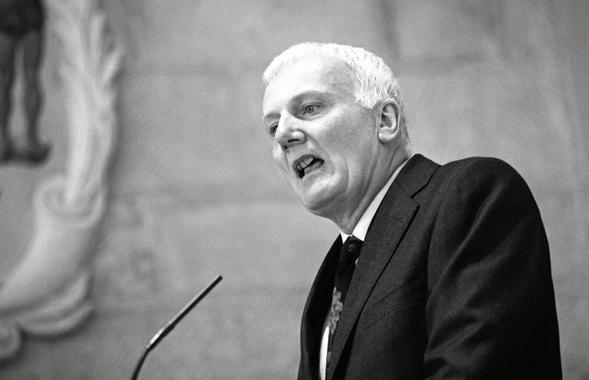
“career suicide”, which I’m very pleased to say it hasn’t been as Jeremy is a distinguished member of the Senior Management Committee. There are so many wonderful memories of my time here and that’s the extraordinary thing about the job that one does working in a school – every day is different with such a dizzying array of activity. The ebb and flow of School life is mesmerizing and really inspiring.
Of all of the traditions and rituals that are part of the Westminster School experience (eg. Commem, The Greaze, Locke lectures etc), which is either your personal favourite or has left the greatest impression on you?
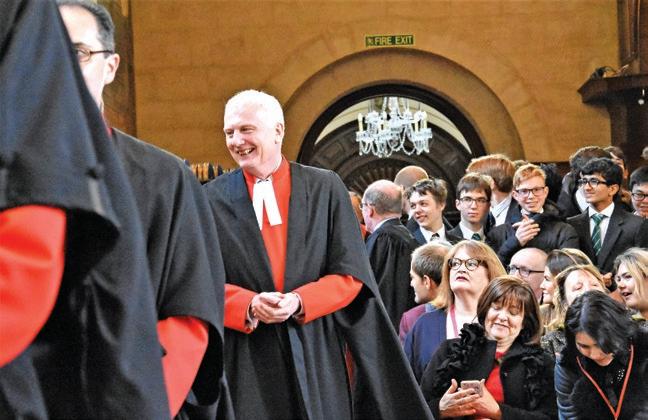
Big and Little Commem are very special moments in the Westminster calendar because we are giving thanks in Abbey for the generosity of benefactors who have enabled the School to still be surviving today. It’s such a delicious fusion of Abbey and School which is unique and remarkable. But I have to say that the one event that was very pleasantly surprised by was the Election Dinner. The idea of not having a Speech Day and not ending the School year with a big speech was wonderful, but the Election Dinner exceeded expectations. The quality of ‘entertainment’ is mind-blowing and it’s interesting that all of the friends who have come, guests of the School and such, have written or rang me instantly to tell me that they have never experienced anything like it. So it is a very special part of the School calendar. But the great thing about Westminster is that we wear our traditions very lightly. The lack of pretension in the
School is wonderful – things like The Greaze are just fantastic because they show such a connection with our history, even though we don’t know much about the origins. We think that The Greaze originated in Tudor times and the first recorded mention of it is by Jeremy Bentham who was here 1755–1760. The fact that it carries on in a wonderful Westminster low-key way is very special. So for me, all of the traditions of Westminster are quirky, individual and fit the institution – we don’t take ourselves too seriously. I find that very endearing and very unusual amongst the so-called great schools.
You are incredibly passionate about widening access through education and the incredibly ambitious and ground-breaking Westminster School Campaign was launched under your leadership. You’re also heavily involved with both the SpringBoard Foundation and IntoUniversity which also aim to open the doors of education to a wider selection of young people. What inspires that passion for widening access?
I hope that October 2018 will mark a turning point in the School’s history, when we launched The Westminster School Campaign, Up School. For me it’s a two-fold motivation; the first is that, in a sense, it reconnects the School with the wishes of Queen Elizabeth when she re-founded the School in 1560. In a sense, it was re-founded with meritocracy at the heart of the School with the purpose to educate 40 poor boys for the greater good of the state. Westminsters that I have met throughout my life have
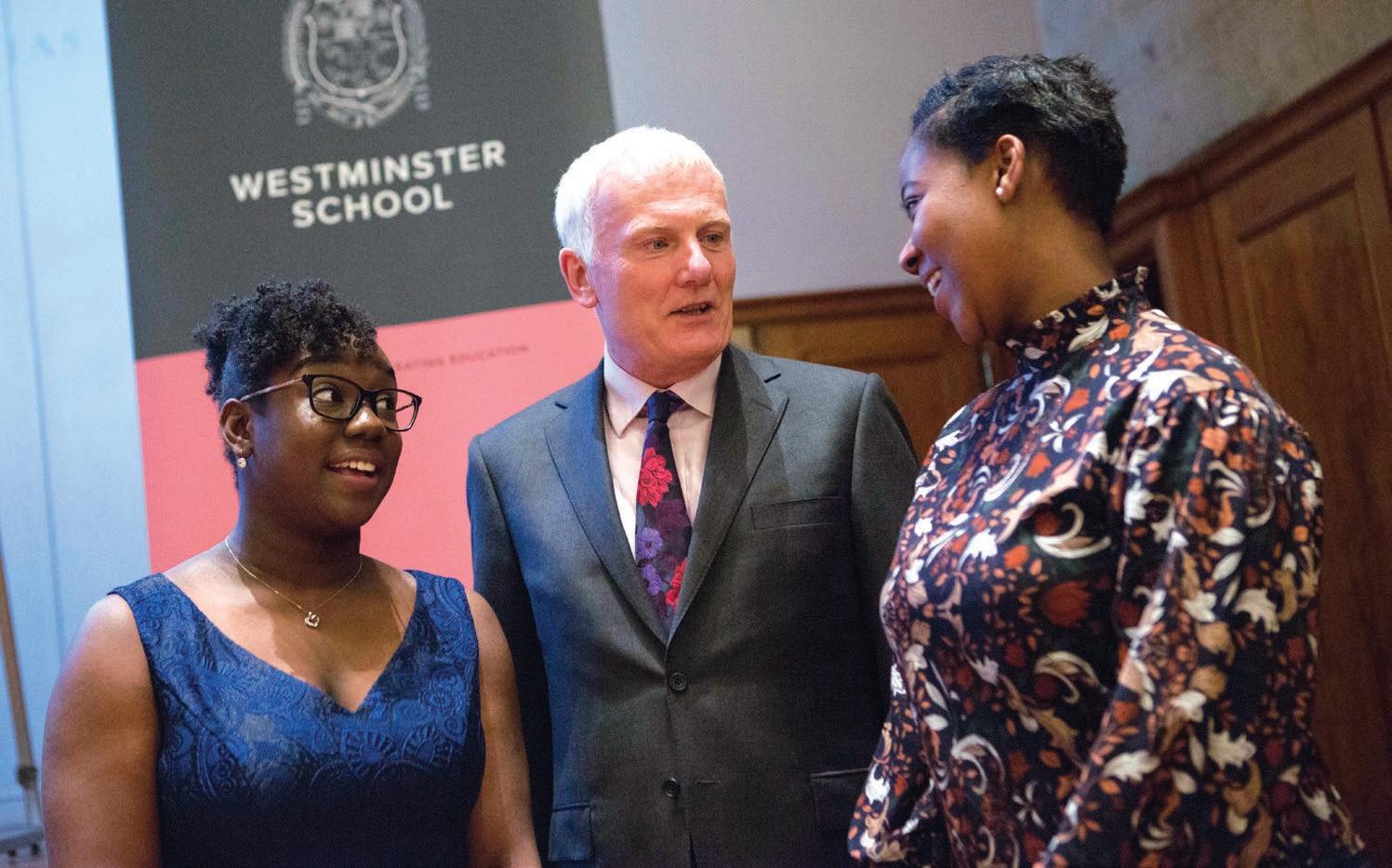
embodied that sense of meritocracy and a recognition that the education they received had been lifetransforming; the finest liberal education that is truly liberating. I believe we have a responsibility to be making a very clear statement that we believe a Westminster education shouldn’t just be for those who are fortunate enough to afford it, but should be for those who will benefit from it. In a sense that’s also part of the motivation for the creation of Harris Westminster Sixth Form and the development of the Platform and Platform+ programmes. I’ve been impressed by the response from the wider Westminster family, to the Campaign. One of the most abiding memories that I have is when we played the Campaign film for the first time Up School during Latin Prayers, which is another wonderful Westminster tradition that we must never ever lose sight of or diminish in any shape or form; the School spontaneously erupted into applause and a number of pupils instantly came up to me and asked
how they could get involved. Again, it shows just what a very special place Westminster is.
The second motivation is that, my very life was transformed by educational opportunity and there isn’t a day when I don’t give thanks for the opportunities that I’ve been given. I’m very much an outsider to this world and I just see things through a very different lens and experience. I had the extraordinary experience of speaking at the memorial service of my former Head Master last year; this man had met me as a bedraggled, ill-educated fourteen year old and took a gamble on me. My life was transformed by those 4 ½ years. On my last day, where to my astonishment had ended up as Head Boy, he took me aside and told me to always remember six words that Martin Luther King Jr had spoken; “What are you doing for others?”. Those six words have been my motivation throughout the rest of my life. At all the schools that I have been lucky enough to be Head Master of, I’ve tried to inculcate that message to the pupils- where ➽
25 ISSUE 2019/20 24 The Elizabethan Newsletter
I’ve always taught an A Level set, which is quite unusual for Heads, but I do think that it’s important for the Head to be leading by example and from the front in terms of teaching
Saunch of The Westminster School Campaign
it’s most deep rooted however, is here at Westminster, building on the fantastic work of civic engagement and volunteering. We’ve been able to take it to new levels, through the Campaign and through Platform and through our partnership with Harris Westminster Sixth Form. It was a wonderful thing earlier this term when we won the TES award for Independent-State School Partnership, which is a wonderful recognition of our fantastic work in that area which again, is ground-breaking and innovative. For me, it’s yet another way in which Westminster has been leading from the front.
Aside from the Campaign, what accomplishment during your tenure as Head Master are you most proud of?
Legacy has been the buzzword of every conversation in the last year. I would like to feel that I have helped raise Westminster’s profile in a way that has been beneficial, but in particular in the sense that we have been contributing to, and been heavily involved in, national
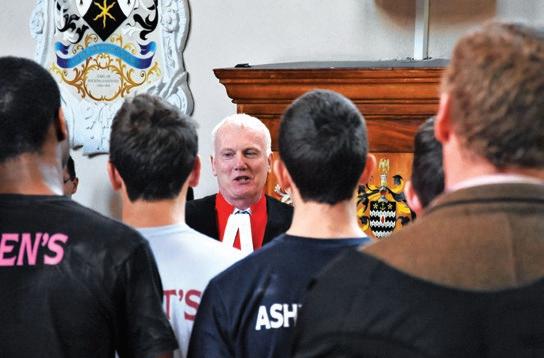
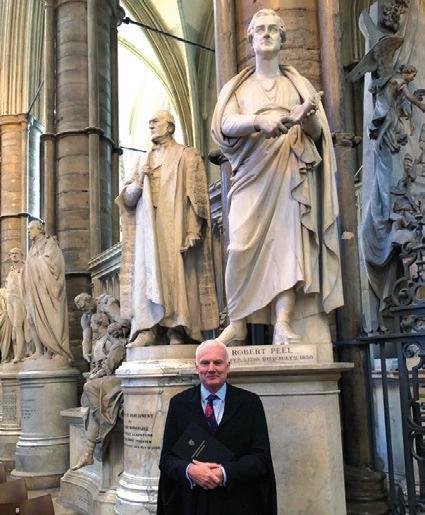
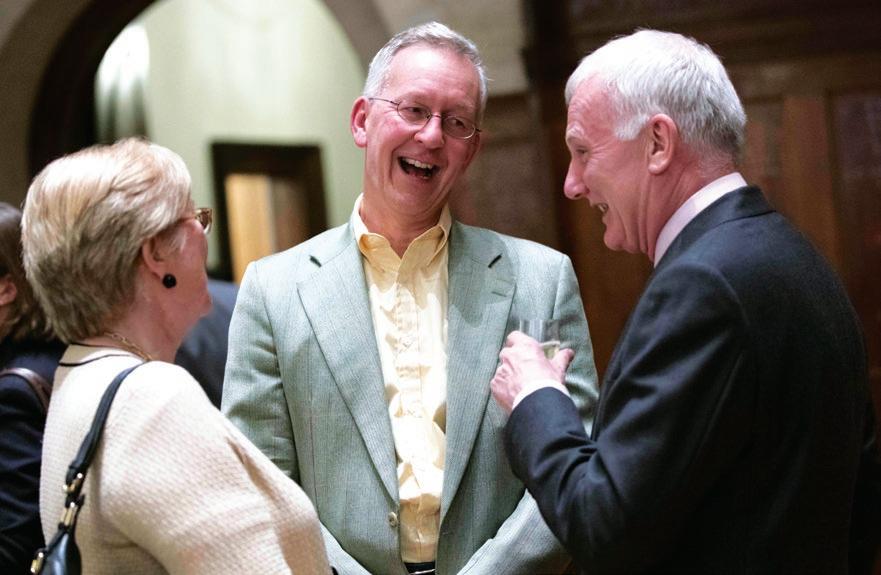
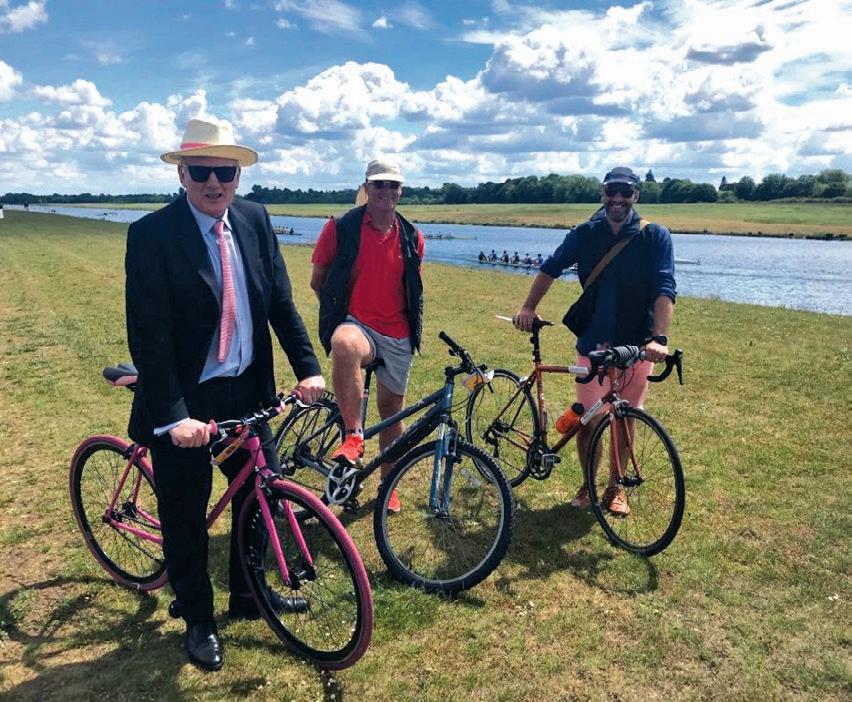
education debates. That is something which I think is important and proper, given the astonishing education that is provided here.
One thing that has given me the greatest sense of pleasure, is the incredible sense of community, which we have worked hard on strengthening. One thing which would have never expected before I came, and people on the outside would almost certainly never expect, is that in our two inspection reports, kindness is identified as being at the heart of the School. You can see it in the way individuals act with one another. There’s no hierarchy; there’s no pretention. Each pupil, staff member (teaching and support) and parent is treated as an individual; every person’s opinion and thoughts are respected. It’s an extraordinary thing and not something which should be taken for granted – it’s not something that I’ve really experienced in other institutions.
For me, it’s been the greatest thing and such a wonderful way to end my Head Master-ing; at a School where kindness is right at the heart of everything that has been done.
What is the greatest challenge facing Westminster (and the independent school sector as a whole) in the coming years?
The biggest challenges facing the sector are political and financial. We’re entering very choppy waters for the sector. One of the main things that I’ve been focussing on in my time here is trying to demonstrate the role that the independent sector can play in the education system. I think that is something that Dr Gary Savage will do battle on – he’s the perfect person to succeed me in that respect, especially. There are challenges, but think that Westminster is very well placed. But that’s why we need to really re-inforce the importance of the China partnership because one of the big challenges we are facing is that the School fees are prohibitively expensive. Schools like Westminster are increasingly exclusive. So Schools have to look imaginatively and creatively at other income streams. Although it hasn’t gone down well in all areas of the Westminster community, one cannot underestimate the soft power of the work that the Westminster Schools will do in the greater China region. Additionally, the benefits that will come financially in the long-term, which will enable the School to do many interesting things going forward, cannot be doubted.
What do you think makes Westminster School one of, if not *the* best School in the world?
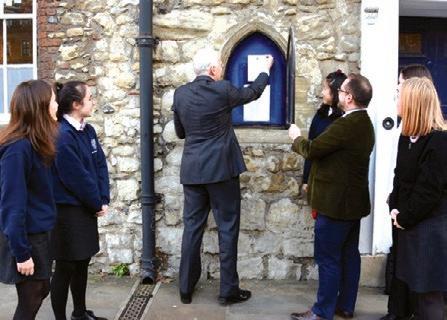
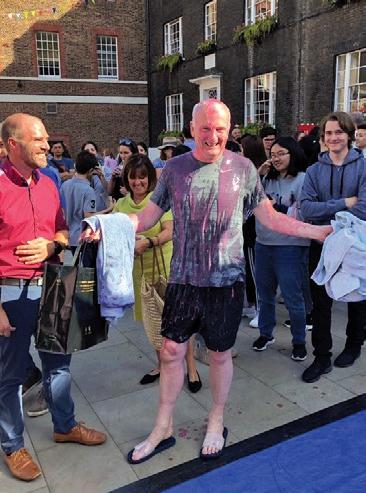
Obviously I’m completely biased, but I’m quite clear in my own mind that there is no other School like Westminster, anywhere. It’s a combination of factors, but particularly because of this place being the embodiment of liberal education. The book that I edited, Loyal Dissent, and the choice of that as the title was a purposeful one; the pupils here are very loyal to the institution, but they are dissenting, questioning and they challenge the orthodoxy. From the moment they arrive in the fifth form, we are encouraging them to be their own person and to have their own opinions. I’m absolutely clear that that is distinctive and very, very special. I would link that to the point made earlier about kindness; the way that the pupils interact with each other and relations with all of the staff, makes it a special place to live and work. It makes it a very hard place to leave. But I think for me, the abiding thing is the quality of the teaching, the quality of the pupils, the quality of the support staff and the fact that it is one very strong community which prides itself on excellence in all areas; not in any way undervaluing any individual, so that everyone can flourish, whatever his or her strengths.
If you could describe the School in three words, what would they be?
I’m going to just go with one word: inspiring. Inspiring on every level – I think that sums it up. ■
27 ISSUE 2019/20 26 The Elizabethan Newsletter
The way that the pupils interact with each other and relations with all of the staff, makes it a special place to live and work. It makes it a very hard place to leave.
Top left: The Greaze
Left: Launch of The Westminster campaign
Above: Queen's Scholars
Sports Reports
Athletics
The year’s activities were overshadowed by the death of Jim Forrest, who had been the cross-country secretary since the club’s foundation in 1963. He is the only Old Westminster to have won the Thames Hare and Hounds annual Inter Old Boys Race, also set the record for the South Down Way in 1974 and complete the Comrades Marathon, which is 55 miles long and was run uphill on the year he did it.
Jim himself continued to compete until his late sixties, leading the OWs to several veterans’ team successes in the Inter Old Boys race. However, even more important, he was the organiser of events for the club, welcomed and encouraged newcomers and was always there, either as an active athlete or in support.
Jim’s memory will be preserved by naming the trophy for the annual race in September in Hyde Park, in which the OWW take on the School and the Common Room, as the Jim Forrest Serpentine Cup. This year’s 3.91 km race, which attracted an entry of 29 competitors was the highlight of the 2019 season. It was won by the School, although OW Su-Min Lee was the first athlete home in 12 minutes 36 seconds, beating second-placed Toby Evans of the School by 44 seconds.
Anyone wanting to take part in running events for the OWs should contact the secretary John Goodbody on 07889 506914 or email: john@jbgoodbody.co.uk or
Eton Fives
The Old Westminster Eton Fives Club had a very high bar to surmount this season, fresh from winning the Eton Fives Association’s Team of the Year Award for the first time in the club’s history. After the success of the team as a whole last season – culminating in a well-deserved trip to Grillon, France and both division teams now comfortably sitting mid-table this year has so far been characterised by individual successes and attainment.
Our two standout stars this year were Riki Houlden and Hugo Young. After multiple appearances in slam tournament finals, knocking at the door of greatness, this season Riki managed to topple the Five’s world’s Goliath by besting a heretofore unbeaten pair (who had 8 years and 24 slam tournament titles to their name) to win the London Tournament. Indeed, there seemed to be no trophy safe from the Old Westminster onslaught, with Hugo (almost single-handedly, insofar as is possible in a doubles game…) scooping up wins at the Men’s and Mixed University Championships, the Men’s U21s and U25s, the Midlands Tournament, and even reaching the semi-final of the Northern tournament by beating a pair of former champions.
In fact, readers should watch this space for more OW exploits: there is more of the season to come, and no doubt the Old Westminsters will continue to make waves at the Kinnaird Cup, Ladies Championship, and the Mixed Championship.
Golf
The year started with our 95th Anniversary Dinner which was held in College Hall in January. It was a very enjoyable evening with members, wives and friends attending.
In the Halford Hewitt we lost a very close match 2-3 to Brighton in the 1st Round, in the Plate we defeated Chigwell 2 ½ – ½ and then lost to Sherbourne.
In the Grafton Morrish we failed to qualify for the Finals. In the Bernard Darwin and Senior Darwin we lost to Rugby and Winchester respectively. In the Royal Wimbledon Putting we came 2nd equal in our qualifying group but lost in the play-off against The Leys.
In the Dick Watson Trophy at Aldeburgh we came seventh in the qualification tournament which meant we played Radley in the match to decide 7th place whom we defeated because David B-Weinstein & Jim Durie finished all square and Henry Kingsbury & David Mahoney finished three up.
The Club entered the Queen Elizabeth Trophy in Edinburgh for the first time.
In the first round we defeated the Old Aloysians 2-1 and then defeated the Old Stathalians 3-0 to reach the last eight but unfortunately we had to give a bye to the Old Merchistonians as the team had to catch the train back to London!!
The match against the School was won 3-0, and in the other matches which we played we defeated Old Uppinghamians, Old Wykehamists and Old Reptonians halved with the Old Marlburians, and lost to Old Paulines and Old Radleians.
Anybody interested in playing golf with the Old Boy’s Society please contact David Roy via email at: daroy@btinternet.com
Cricket
The 2019 season did not afford OWWCC any warm-ups, with the first fixture being an away Cricketer Trophy tie against Lancing Rovers. A wet day on the south coast saw a shortened 30 overs-a-side game, with OWWCC winning the toss and inserting Lancing. A well-disciplined bowling and fielding performance, led by Kit Winder (3-11) and Lucas McConnell (2-32), restricted Lancing to 180-9. In response, OWWCC could never quite break the shackles, despite the best efforts of Alex Stewart (34*) and McConnell (24), ending up 127 all out. This result was put into perspective by the fashion in which Lancing won the overall competition, posting a mammoth 470-6 in the final, with their opener (who Winder had comprehensively bowled) hitting 309!
The following weekend brought OWWCC back to Vincent Square for the annual contest against the Pink Elephants. Having inserted OWWCC, Joe Ireland and the Pink Elephants bowled tightly and made early inroads before the OWW middle order fought back, with a brisk 80 from Alexander Asher, supported by McConnell (14) and Matt Carver (25), enabling OWWCC to declare on 180-6. Fifties from Ireland and Charles Ullathorne saw the Pink Elephants home in style, with six wickets and two overs to spare, in spite of the best efforts of McConnell (1-32) and Will Fryer (1-31). The match against the School saw an OWWCC side that looked strong on paper come undone against a high quality School bowling performance – all out for 91. Despite the best efforts of Winder (3-9), Fryer (1-9) and Alex Campbell (1-12), the School overhauled the target with four wickets to spare.
Cricket Week began as usual with the visit of the Eton Ramblers, who batted first, declaring on 267-9, with Alex Benson (3-30) and Tim Kittoe (2-29) leading the way with the ball. In response, receiving substantially fewer overs in return, OWWCC comfortably saved the draw with 199-6, with strong innings from Alejandro Worthington (46), Campbell (41), Alex Benson (34) and Kittoe (32*). The following day, a strong opening partnership between Asher (35) and Alex Fisken (24) saw support only from Winder (37), with the Marlborough Blues bowling OWWCC out for 159. The OWWCC bowling attack set about defending this total with skill and discipline, led by Winder (5-15) and Robin Low (1-33), but could not quite polish off the Marlborough lower order, losing by 3 wickets in the end. A strong Butterflies side was next up, who were promptly asked to bat by OWWCC, making 191-5 in the face of spirited and skilful bowling from guest Buddy Mason (3-42), Fryer (1-35) and Charles Smullian (1-28). The OWWCC response never quite got going, with 26 from each of Smullian and Mason briefly raising hopes of saving the draw that were unfortunately snuffed out by a big-spinning young offie (captain of one of the Middlesex junior sides) who mopped up the lower order. Tuesday’s fixture against the Nomads saw them rack up an imposing 253-6, with Ireland (3-44), Stewart (2-37) and Smullian (1-76) bowling well in the face of aggressive batting. In response, Nomads couldn’t muster the gumption to try to force a result either way, with OWWCC comfortably batting out a draw as Alex Benson (53*) and Fisken (63) proved equal to everything the Nomads could throw at them, whether balls or barbs.
In the following fixture, with England’s World Cup SemiFinal against Australia drawing players away from the green field of Vincent Square, OWWCC got into the spirit of the day by calling upon a pair of talented young Aussies, one of whom posted a chanceless 103* to help OWWCC to declare on 221-6. In response, the Heretics batted sensibly to get over the line by 5 wickets, despite fine efforts from Alex Vinen (1-32) and the Australian leggie (3-54). OWWCC started well against the Old Amplefordians, reducing them to 136-7, before a rapid 7th wicket partnership enabled them to declare just shy of 200. Despite an aggressive opening knock from Asher (37) and an enterprising partnership between Benson (49) and Bruno Rost (30), OWWCC could not quite overhaul OAs’ score, with Stewart and Smullian seeing out the final couple of overs for a draw.
Another exciting draw followed against Kensington, with Fisken’s 5-55 helping OWWCC bowl the opposition out for 209. Fisken followed this up with 38 runs, sharing a strong partnership with Vinen (68) that gave OWWCC a solid platform for the chase. However, wickets continued to fall steadily, and it was left to Franklin Barrett and Fryer to steer OWWCC to the draw that would end up as the final result of the season, with all attention on the following day focused on Lord’s and England’s World Cup victory by the barest of margins.
Following 2018, this was another season in which the end of season results ledger doesn’t make for starry reading, but that masks the fact that there were strong performances in every game, some tense and exciting finishes, and, above all, a great spirit around the club, among players old and new. We look forward to 2020 with the club in strong health and excited for a successful decade ahead.
OWWCC is as ever very grateful to Franklin Barrett not just for his role in preparing Vincent Square, but also for the friendly atmosphere and enthusiasm for the game that he brings to it. Finally, OWWCC would like to thank the School and the Elizabethan Club, without whose kind help OWW cricket could not function.
Any OWW wishing to join OWWCC should contact : Jake Robson (Fixtures Secretary): jnarobson@gmail.com
07764181366
Alexander Asher (Treasurer): alexanderasher@gmail.com
07795364694
29 ISSUE 2019/20 28 The
Newsletter
Elizabethan
The Next Generation of OW Lawyers
Tennis
Highlights of the 2019 season include reaching the quarter finals of the D’Abernon Cup, beating the Old Carthusians and Old Etonians in friendlies, holding our sixth Alec Melville Cup doubles tournament, a fantastic evening of tennis and dinner at The All England Club, and a truly memorable end of season dinner at Brooks’s.
Chris Anguelov and Thibaud Rushbrooke stormed through the D’Abernon Cup round robin in April winning all of their four matches. They beat Harrow 7-0, Stowe 6-1, Bradfield 5-2 and Oundle 6-1. The quarter final was against KCS Wimbledon. Chris and Thibaud were joined by Marc Baghdadi and Aleks Mardinian. Unfortunately, they were outplayed in a close fought contest.
We won 2 friendly matches against the Old Etonians and the Old Carthusians. Well played to all those who took part in the friendlies including Jimmy Notaras, Christian Foss, Simon Brocklebank-Fowler and Jerome Kamm.
This year’s Alec Melville Cup doubles tournament in mid-July was another highlight, as ever. Caspar Melville won for the third year running joined this year by Rupert Coltart. They beat Simon Clement-Davies and Matt Webb in a tight final. A huge thank you as ever to Matt for organising this excellent event.
On the social side, we enjoyed another pre-season pizza in Covent Garden in April. At the end of July we had a very special evening of tennis and dinner at The All England Club, generously hosted by Nick and Alex Perry. This was a real highlight and we are extremely grateful to our hosts. It was also great to have our President Duncan Matthews join, and playing with exceptional form! We are also grateful to Simon Brocklebank-Fowler for organising a Club belt in Westminster colours for members to purchase. Finally, the season was ended with an absolutely fantastic evening at Brooks’s in December hosted by Christopher ClementDavies. Thank you!
As ever, Saturday morning sessions at Vincent Square run year-round, weather permitting, and our Wednesday evening sessions run from April to August. Please come and join us or feel free to get in touch if you want more information. We hope to see you on court!
Tristan Vanhegan (HH, 1994-99), Club Captain
The Record of Old Westminsters
The Record of Old Westminsters has been an invaluable resource for members of the Westminster community, academics and family historians alike. Quite apart from the changing social patterns which the names reveal, which makes it a fascinating publication in its own right, it also allows for the range of Old Westminsters’ accomplishments and expertise to be celebrated.
The series was begun in the 1920s when G.F. Russell Barker (OW) undertook to compile a list of all the pupils who had ever been educated at the School, and to gather information about their lives and achievements. The list was nearing completion in 1927 when Barker died and Alan H. Stenning (OW) picked up where Barker had left off. The Record of Old Westminsters, which was finally published as two volumes in 1928, includes all former pupils “from the earliest times” to 1927.
Volume III, which was compiled by J.B. Whitmore, G.R.Y. Radcliffe and D.C. Simpson (all OWW), brought the list as far as 1960. Volume IV was produced by F.E. Pagan and his son, H.E. Pagan (both OWW), bringing The Record forward to 1989.
In Play 2014 work began on Volume V, led by an Editorial Committee and supported by The Elizabethan Club and The Westminster School Society. The completed text includes nearly 10,000 biographical entries, covering pupils educated at the School from Play 1937 to those who had left the School in Election 2015.
Our deepest thanks to Mr Tony Willoughby (LL, 1959-62), School Archivist Elizabeth Wells and all those who worked tirelessly to produce Volume V.
To purchase your copy of Volume V, please contact: record@westminster.org.uk Copies are £20 + postage and packaging.
Dates for your Diary
Due to the current situation regarding COVID -19, the Elizabethan Club have cancelled all in person events until 2021. Please keep checking your emails, OWConnect and www.oldwestminsters.org.uk to keep up to date with the evolving plans the Club is putting in place.
Each year, the Elizabethan Club sponsors a number of places at the OW Lawyers’ Dinner for Remove and Sixth Form pupils who are interested in studying Law at University. Below are a selection of letters of thanks from those pupils who attended the dinner this year.
Dear Elizabethan Club,
I would like to express my thanks for the opportunity to attend the OW Lawyers’ dinner. I had a fascinating evening learning about a wonderful array of possible careers and discussing current legal issues with a variety of legal professionals. In particular, talking to Lord Neuberger about the future of the law and AI was a huge privilege, which I am very grateful for. On top of learning about the law, I also very much enjoyed hearing tales of Westminster over the years, and how the spirit of the school has far from changed...
Thank you again for this phenomenal evening, Liberty
Dear Elizabethan Club,
I would like to express my thanks for providing me with the opportunity of attending the OW Lawyers’ Dinner. The evening was a wonderful educational experience, providing me with a better understanding and insight into the legal profession. It was truly a privilege to have had the opportunity to speak to a group of such affluent lawyers whose specialities resided in a diverse range of legal fields many of which illuminated new potential avenues of law, down which I’d never considered the pursuit of a career path.
Yours faithfully, Rita
Dear Elizabethan Club,
I would like to express my thanks for providing me with the opportunity of attending the OW Lawyers’ Dinner.
Sitting next to an Aviation Lawyer, who, like me, had studied Classics at Westminster was a very valuable experience. For one, I learnt more about what is required (especially in the speaking and writing balance) for positions in different aspects of the law, and moreover we had a fascinating discussion about the theatrical component behind speeches and their expression. What I especially appreciated was a conversation with two other lawyers, who brought to my and a colleague’s attention a topic concerning Westminster’s history, which we are planning to research to a greater depth. Not only was it inspiring to connect with those who have had the same honour to attend Westminster, but the evening made me more knowledgeable and more intent on pursuing a career in law, due particularly to the enthusiasm of the lawyers I conversed with and the concluding speech.
Yours Faithfully, Virginia
Dear Elizabethan Club,
I would like to express my thanks for providing me with the opportunity of attending the OW lawyers’ dinner. This evening was extremely valuable for me, since I was able to meet so many interesting and amazing people who further inspired me to pursue the wonderful career of law. I was able to learn so many new things: such as what international law really means and what it is actually like to work in the world of law. Nothing could have been more precious to me than the opportunity to receive first-hand advice and stories directly from such incredible lawyers. The evening in itself was extremely enjoyable, and I also loved talking to the Old Westminsters about how the school has changed over the years.
Again, I would like to thank you for giving me the chance to experience such an evening.
Thank you very, very much.
From, Brandon Continued
30 The Elizabethan Newsletter
➽ 31 ISSUE 2019/20
overleaf
Sports Reports
Dear Elizabethan Club,
I would like to express my thanks for providing me with the opportunity of attending the OW Lawyers' Dinner.
The evening was not only very enjoyable but also highly useful for the future. The conversations that I held with many of the OW Lawyers were vibrant, one could really tell how intellectual and 'sparky' they were, as well as hugely informative in terms of the advice and general information given about the profession. The speech after dinner was very amusing and lively, teaching me a lot about International Lawyers, which may be beneficial for the future. Perhaps the most rewarding and valuable moment of the evening was my talk with Mr Rothschild who ended up giving me his card. I felt awfully grown-up, and I cannot wait to contact him in the future for the possibility of learning even more about the business, maybe even with the opportunity for work experience.
I learnt huge amounts about the profession and how to enter it with various snippets of advice and tips, but I also learnt about the OW Lawyers' own experiences at Westminster and the changes that have taken place since.
The whole experience of the evening was so enriching that it has certainly encouraged me to look into Law further as a possible future career. I look forward to writing the Law essay in the summer.
I am so grateful for having been included in this wonderful tradition, so thank you very much. Both the food and the company was marvellous.
Yours faithfully, Coco
Dear Elizabethan Club
I would like to express my thanks for providing me with the opportunity of attending the OW Lawyers’ Dinner. The occasion was an invaluable experience and I was able to gain unique insights from the industry’s experts. The dinner helped portray how one embarks on a career in law; there is no prescriptive method and there are numerous avenues one could follow. Consequently, the knowledge that I have gained from the Dinner has further solidified my desire to pursue a possible career in law.
Thank you again for this amazing opportunity. Taruniga
House Reports
Dear Elizabethan Club,
I would like to express my thanks for providing me with the opportunity of attending the OW Lawyers’ Dinner.
It was a pleasure to be given the opportunity to spend an evening with such eminent company as Lord Neubergerwhile I received very valuable information from him and others about moving from law as a university subject into practice, it is the incredibly intellectually stimulating conversations about the place of the law in our rapidly changing Western society and political climate that I will treasure most.
I would also like to express my gratitude for my prize for the Neuberger Essay; it is an honour to hear that my essay will be published in the New Law Journal, and I am extremely grateful for the book vouchers, which will be of great use in my future study of law.
Yours faithfully, Owen
Dear Elizabethan Club,
I would like to express my thanks for providing me with the opportunity of attending the OW Lawyers’ Dinner.
It was a fascinating experience firstly to talk to some old Westminsters, one of whom had attended the school when the Abbey was still black from the aftermath of the Blitz, about the ways that the school has changed over the years – although many aspects have stayed exactly the same. On top of this I learned a lot about how many different jobs there are under the blanket term of ‘law’, from giving legal advice to being a top judge. The evening inspired me to do something worthwhile in the future, and choose my career with care, so that when I attend a similar dinner in ten years’ time, I can say in all honesty that I have an interesting job that I enjoy.
Yours faithfully, Artemis
Dear Elizabethan Club,
I would like to express my thanks for providing me with the opportunity of attending the OW Lawyers’ Dinner.
Speaking to the various OWW was insightful, learning about their various career paths and offering me advice in regards to an undergraduate degree as well as work experience in the future. The lecture at the end of the dinner about international law was also interesting and is now potentially an area of law I want to explore further.
Yours faithfully, James
College Society
2019 was a very busy year for the College Society, with four major events. We started the year with a rip-roaring Spring Lecture by novelist and professor, Adam Mars-Jones, before we had the unveiling ceremony of the portrait of the first eight female Queen Scholars. The portrait was painted by OW Lucy Li (BB, 2016-18), and bears the inscription:
Purcell’s
Look at the letters QSS, reflect on what they mean. It’s only right that girls can now be Scholars of the Queen.
The epigram was written by Charles Low (QS, 1967-72; Common Room 1983-2015) for the 2016 Election Dinner: the year in which it was announced that female scholars would be joining the house. The literal translation of the epigram is: Is it a joy or a source of laughter for us?
You now hear that girls will belong to the boys’ house.
The underlined syllables in Greek (the puns) are pronounced girls now as QSS...hooray!
We were then lucky indeed to have the former Dean of Westminster, the Very Reverend Dr John Hall, give a guided tour of the Henry V Chapel and the newly opened Triforium Galleries. While small in number, our group had a wonderful morning followed by a late breakfast in the Abbey Café.
Finally, the College Society hosted its annual dinner, this time jointly with Wrens. Welcoming over 60 alumni from both houses, the dinner was rounded off in style, not by Compline unfortunately, but by further drinks at the Blue Boar. We look forward to hosting more joint events in the future, although the 2020 dinner, to be held on 17 September, will be for College alumni and their guests.
We are also hoping for a Spring event, details to be confirmed.
We would like to thank Andrew Havery, who stepped down after many years on the Committee, including a time serving as Treasurer, for all his hard work over the years, and to welcome Amanda Barnes (CC, 1976-78) to join the Committee.
The Committee would like to welcome the new Dean of Westminster, the Very Reverend David Hoyle, and we look forward to hosting him at our events soon.
If you would like to join the Society, please do contact me on the below details. Membership is very modestly priced and provides vital funds to support the work of the Society and discounts on tickets for events.
If you have any ideas as to how the Society might extend its activities, please do not hesitate to contact any member of the Committee.
Arda Eghiayan
Chairman: Oliver Gillie (QS, 1955-58) oliver.gillie@outlook.com
For membership details
Hon Sec:
Arda Eghiayan (CC, 2000-02) arda.eghiayan@gmail.com
After a few quiet years, we were thrilled to reignite our house Society in summer 2019 with a fantastic drinks and canapés event in Ashburnham Gardens. It was a wonderful opportunity for Purcell’s alumni old and new to come together for the first time in four years and reminisce about our memories of life at Barton Street as well as our new beautiful home on Great College Street.
Being two Purcell’s alums who left Westminster before the house became mixed in we were delighted to meet some of our new male counterparts –with the beginning of the evening feeling a little like a school disco before we were all brave enough to collide! We are also very grateful to our current Housemaster Dr Gabrielle Ward-Smith for attending and regaling us with wonderful stories from her time with Purcell’s. Following the success of the drinks we look forward to a new tradition of an annual Purcell’s Society event, in addition to organising a Society presence at any other events where we may celebrate our alumni’s achievements. We would warmly encourage any alumni who would like to be in touch to contact us via the Development Office (alumni@westminster.org.uk).
By Annabel James and Alice Godwin (PP, 2007-09)
Milne’s
After the excesses of our terrific 20th birthday party held last academic year, the Old Poohs are still sleeping things off, but will return soon with extra honey.
33 ISSUE 2019/20 32 The Elizabethan Newsletter
The Next Generation of OW Lawyers
τελοῦσιν (ἡμῖν ἡδονή ᾿στιν ἢ γέλως
νῦν εἰσακούεις εἰς δόμον κόρων κόραι.
;)
ANNOUNCEMENT OF NEW HEAD MASTER OF WESTMINSTER SCHOOL
WESTMINSTER SCHOOL AND HARRIS WESTMINSTER SIXTH FORM WERE NAMED INDEPENDENT-STATE SCHOOL PARTNERSHIP OF THE YEAR AT THE TES INDEPENDENT SCHOOL AWARDS 2020
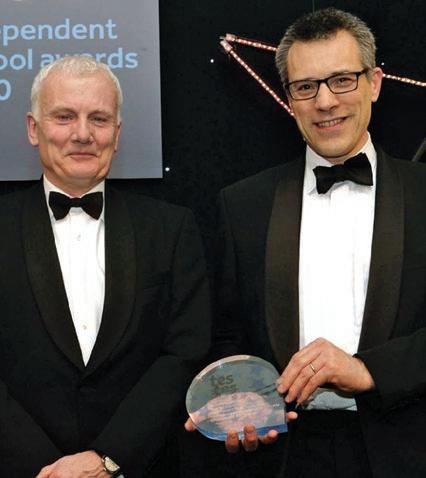
The Very Reverend Dr David Hoyle, Dean of Westminster and new Chair of the Governing Body of Westminster School, announced that the Governing Body had appointed Dr Gary Savage as the new Head Master of Westminster School.
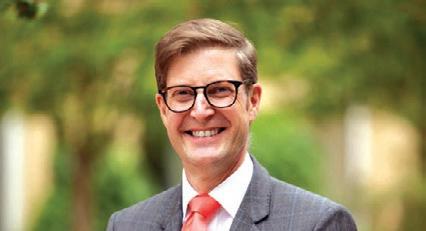
Dr Savage will succeed Patrick Derham, who retires at the end of the forthcoming academic year (2019–20) after six years of outstanding leadership of the School. The appointment follows an extensive search; a very strong list of candidates applied for the post, from which Dr Savage was ultimately selected.
Dr Savage grew up in Suffolk. He read History at Sidney Sussex College, Cambridge, taking a Double First before completing a PhD on the political culture and foreign policy of later 18th-century France. He was Head of History and Master-in-College at Eton College then Under Master at Westminster School, and since 2010 has been Headmaster at Alleyn’s School in Dulwich. He is married to Natalie and enjoys History, the Arts, studying German, walking his two Jack Russell terriers and following the fortunes of Ipswich Town FC.
Dr Savage said: “It is an honour and a privilege to have been invited to be the new Head Master of Westminster School. have very fond memories of this outstanding institution from my time as Under Master, and greatly admire Patrick Derham’s exceptional work during his tenure. am grateful to the Governing Body for their faith in me and very much look forward to getting to know the School afresh, and working with staff, pupils and the whole Westminster community as we enter an exciting new decade together.”
Dr Savage will join a forward-looking school in very good heart, with outstanding academic and co-curricular achievements; the Governing Body has every confidence that this will continue under the leadership of Dr Savage.
Westminster’s partnership with Harris Westminster Sixth Form, which was established in 2014 and has gone from strength to strength, is making a real difference for pupils and teaching staff alike, across both institutions.
From joint classes in German, Music, Theatre Studies, Latin and Art History to joint involvement in co-curricular life, such as large-scale productions and society talks, pupils benefit from important shared opportunities for intellectual and cultural dialogue and exchange. In February we saw our two schools come together to stage an outstanding performance of Little Shop of Horrors. Meanwhile, teachers are sharing resources and expertise, with departments meeting to reflect on best practice and regular programmes of class observation and mentoring.
The partnership has served to enrich learning, placing value on discussion, independent research and initiative. In 2019, 27 per cent of pupils at HWSF achieved A*AA at A Level, and 2020 has brought with it the offer of 44 Oxbridge places for this year’s university applicants. It is a genuine partnership that has led to impressive results and, perhaps more importantly, memorable experiences for all those involved.
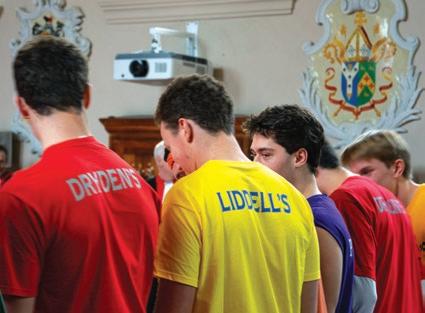
For more insight into the partnership from James Handscombe and Patrick Derham visit www.tes.com/news/ how-we-make-our-state-independentpartnership-work
WESTMINSTER SCHOOL RECENTLY UNDERWENT ITS TRIENNIAL REGULATORY COMPLIANCE INSPECTION, WHICH WAS A GREAT SUCCESS
The nature of an inspection of this kind means that its findings relate exclusively to compliance with the relevant legal and statutory frameworks.
The feedback from the inspectors during the course of the inspection made it clear that Westminster is a highly successful school and they noted the fact that they felt it to be a caring institution. Most particularly, they were impressed that the pupils viewed the School as something special in their lives and that they take a genuine pride in being members.
To view the full report visit www.westminster.org.uk/wp-content/ uploads/2019/12/RCI-Report-Nov2019.pdf
SPORTS BOARDS GET UPDATED IN THE SPORTS PAVILION IN VINCENT SQUARE
The Elizabethan Club has paid for the restoration of some dilapidated Sports Boards and the addition of new ones. Each done by hand, the boards show the names of OWW who competed in various sports dating back decades.
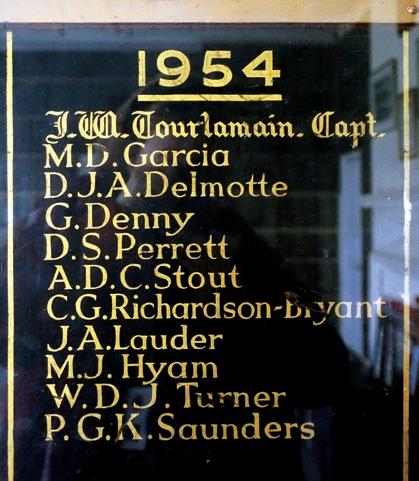
If you would like to come and see the boards, please get in touch with alumni@westminster.org.uk
JACK AITKEN CONFIRMED AS RESERVE DRIVER FOR ROKIT WILLIAMS RACING
Jack Aitken (WW, 2009-14) has joined ROKiT Williams Racing as the team’s Official Reserve Driver for the 2020 FIA Formula One World Championship. Jack, 24 joins Williams following his impressive season in FIA Formula 2 where he won three races for the Campos Racing team (its first ever victories in the series) and finished fifth in the standings. Before that, he was a double Formula Renault champion and went on to be runner-up in GP3 in 2017. Alongside his F2 racing commitments, Jack has spent time with the Renault F1 Team as their Reserve and Test Driver over the past two seasons, gaining valuable experience both on and off the track.
In his new role as Williams’ Reserve Driver, Jack will attend all F1 Grands Prix during the year, integrating himself into the trackside team and be on hand should the need arise to replace one of the race drivers. Jack will undertake crucial work for Williams in the team’s simulator and will make his debut on-track appearance during an F1 race weekend by taking part in a Friday FP1 session. Finally, Jack will support the team in media and marketing activities throughout the year.

Jack Aitken commented, “It is a great honour to join ROKiT Williams Racing as their Reserve Driver for the 2020 season. Williams is a team with strong heritage, and continued longevity, and I’m looking forward to directly contributing to their development through my simulator and testing work.”
“It is obvious from what Jack has achieved so far he is a young driver with a great career ahead of him,” said Claire Williams, Deputy Team Principal, “and we believe he has the right credentials to reach the top in the sport. Jack has proved his ability in FIA Formula 2 and GP3 and we look forward to seeing what he can achieve as the team’s Official Reserve Driver.”
THE
GREAZE
2020
Mukund emerged victorious winning the Greaze 2020 for Milne’s in one of Westminster’s great and unique traditions.
Article taken from www.williamsf1.com/
35 ISSUE 2019/20 34 The Elizabethan Newsletter
School News
Westminster’s Ghosts
There are a number of works of fiction that draw on ghostly apparitions in and around the Abbey, and there are many anecdotes of ghosts at large.
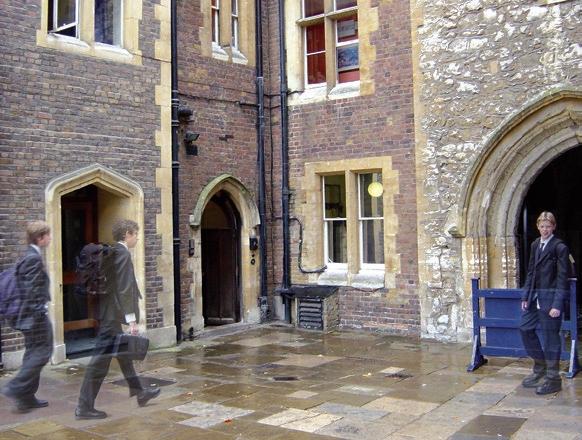
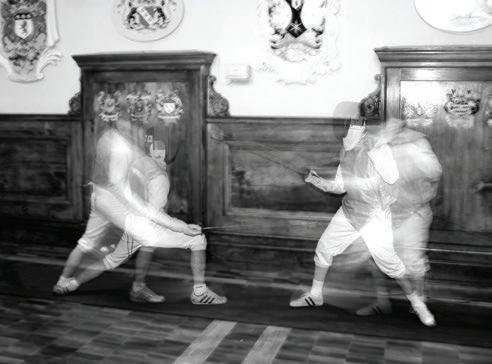
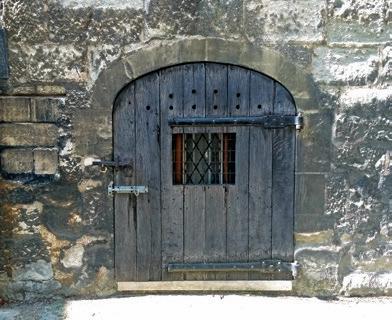
ne of the more recent was told by Lilian Carpenter, wife of Dean Edward Carpenter. One evening when she was visiting the Abbot’s Pew that overlooks the west end of the nave she saw in the twilight a solitary figure in the black habit and cowl of a Benedictine monk. He was slowly making his way east, head bowed over his breviary, clearly saying his office. She made her way back through the deanery, through Samaria into the Nave and was in time to see the monk pass under the organ screen. Quite aware now what she was witnessing, she followed the spectre into the Quire. As he moved to a stall in the Quire his form faded.
The telling detail that Lilian recorded was that within the Quire the monk was walking some eighteen inches above the black and white pavement.

That pavement, originally laid at the direction of Robert Hooke and paid for by Dr Busby, had been lowered by a similar amount in 1847 when the screens to the transepts had been removed. So the monk would have been walking on a floor that had been in place before the Reformation. Of School ghosts there are a number of stories. In particular, if we think today of the noise of the football in Yard as it rebounds from the walls of College we might reflect on the earlier game of racquets in its particular Westminster manifestation, played in either version, with wooden or wire racquets. The game took over virtually the whole of Yard in front of Rigaud’s, Grant’s, and College. The sound of a spectral racquets ball hitting the wall was said to be heard in quiet moments at the end of the Latin Play The Play used to be held in College, which was previous a vast barn of a
dormitory, converted each year to house the auditorium and stage for the annual production. There are stories of a solitary Queen’s Scholar seen playing racquets in Yard on a Play night. The story goes that it is the ghost of a junior Queen’s Scholar who was pursued by seniors up onto the roof of College, where he lost his footing and fell to his death in Yard. There are two more stories of ghosts, one reported by the poet, Robert Southey, and the other by the playwright, Frederic Reynolds. Southey encountered his ghost “at a very late hour and throwing itself upon his bed and rolling on him.” Not to be fooled by these unghostlike actions Southey seized the ghost and made “enough noise to bring up the Usher of the House, at whose appearance the ghost was discovered to be a boy in the house.”
Reynolds described his encounter:
“Scarcely, however, had the deep tones of the Abbey bell, tolling the awful hours of midnight, awakened me, when I was alarmed by the loud screams of several of the younger boys. Starting up in a paroxysm of terror, I saw at the foot of the bed a horrid spectre bearing a large cross, on which was written in flaming characters, ‘Think on tomorrow.’ I gazed till stupefied by fear, I mechanically closed my eyes, and hid myself under the bedclothes. But the spectre drawing them aside, and pointing to the burning letters, thrice shook its solemn head, and then it vanished; leaving me in a doldrum of terror, which slowly, but gradually subsiding, restored me at length both my mental and corporeal faculties.
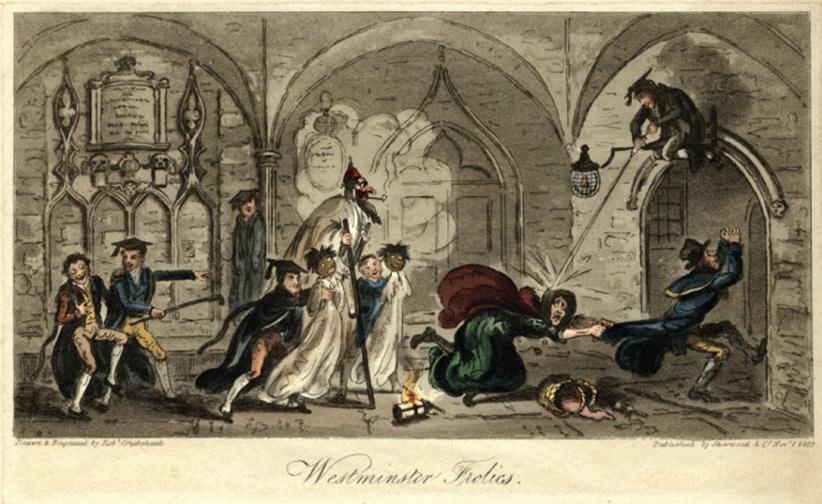
“The first I amply employed in reflections on the awful warning that so plainly prophesied the moment of my first entrance into the School would prove that of my departure from the world; and the latter, at the instigation of the former, in sobs and kicks till dawn.”
The spectre appeared to Reynolds again a few days later, but he had by this time then found refuge in the room of George Colman, who was to achieve fame as an actor. Colman “gave it so substantial a drubbing, that it gave up the ghost for ever.” ■
37 ISSUE 2019/20 36 The Elizabethan Newsletter
Westminster Frolics © E A Smith
There are two more stories of ghosts, one reported by the poet, Robert Southey, and the other by the playwright, Frederic Reynolds.
The two way staircase, Ashburnham House
The Passing Tribute
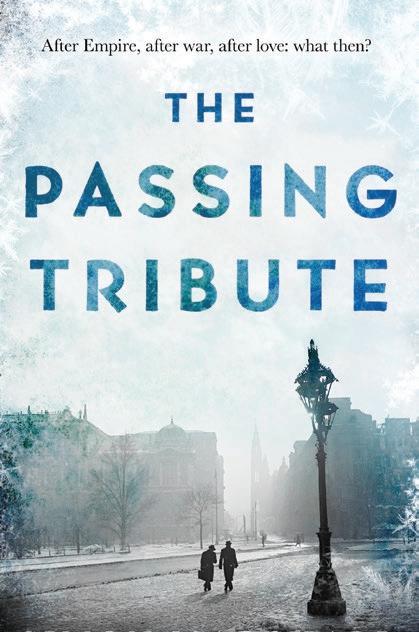
Simon Marshall (DD, 1990-95)
At the end of WW1 two brothers become entwined in a shadowy plot to assassinate the last Habsburg Emperor. Swept up in revolution and the competing visions for the future of Europe, they find that the end of the war is only the beginning of their struggle.
BOOKSHELF
The Universal Subject of Our Time
Darius Nikbin (WUS, 1990-95; HH, 1995-00)
The Subject itself is the Subject of the Machine. What does it mean to be human? We live in a technological age, where rapid advances in personal tech and the science of Artificial Intelligence are challenging us in ways never before imagined. A book in two parts, The Universal Subject of Our Time begins with an exploration of 20th Century post-modernism's undermining of subjectivity with thinkers such as Foucault, Derrida, Baudrillard and Althusser and continues with a description of the science wars, where physical realists challenged the postmodernists up to the 1990s when the intellectual conflict resulted in an uncompromising stand-off after the Sokal Hoax. In Part II the subject is resurrected by taking a look at arguments for machine intelligence and AI and also, from the perspective of physics, examines what subjectivity means, particularly in relation to black holes or black stars, and look to what lies ahead in the future, in terms of space exploration, Martian habitats and even the possibility of first contact with extra-terrestrials.
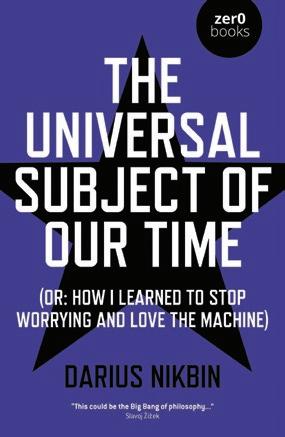 Eric Babo Harrach (AHH, 1961-64)
Eric Babo Harrach (AHH, 1961-64)
The “Stern” a German weekly wrote: Eric will not only appeal to children: For the eight-year-old, his blindness means no shortage, but a challenge – for himself and his friends. Watson comes into his life for enrollment, a smart and greedy Labrador, with whom he now experiences adventures on his own. And suddenly something is going on in his life!

The book was transcript in Braille and has a great number of beautiful illustrations.
Irresolute Clay
Richard Macrory (LL, 1963-68)
At a time of profound change and rethinking, this book provides insights into how environmental law in the UK has developed into its current form, and considers challenges it will face in the future. Irresolute Clay is not a legal history or textbook, nor a conventional set of legal memoirs. Instead it offers a personal account of the inside stories as experienced by one of the key architects of contemporary environmental law. Taking a thematic approach, it charts fundamental tenets of the subject (such as environmental sanctions, the European dimension, developing the academic discipline of environmental law, and environmental courts and tribunals), from the beginnings of the modern environmental law era in the 1970s to the present day.
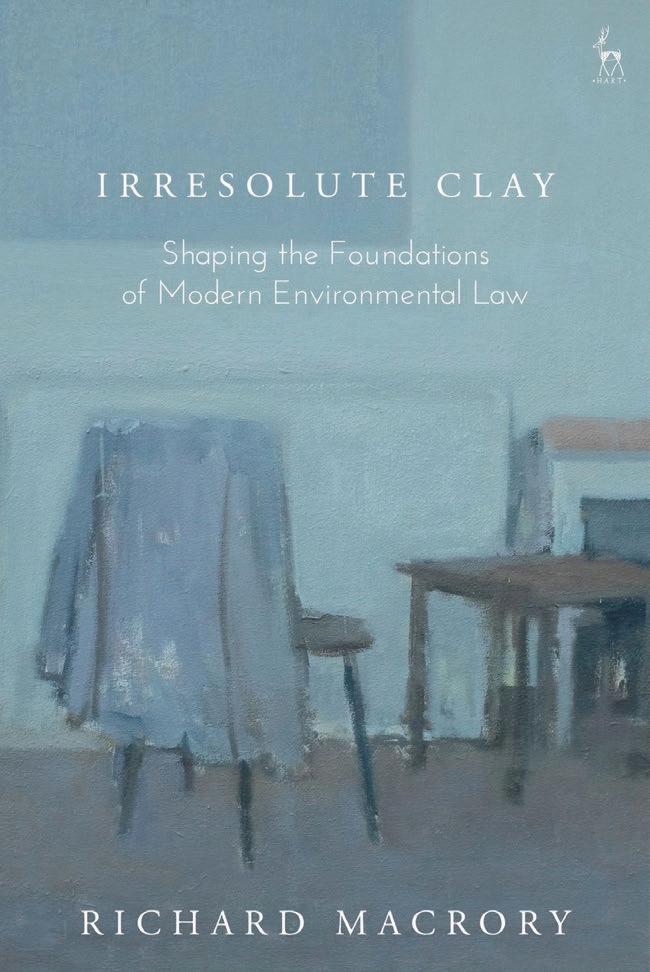
Cover art by Charles McCarthy (LL, 1963-67)
Dying Echoes: Memoirs of the War 1914–1920

Stanislaw Kawczak and Andrew Kavchak (BB, 1976-77)
Dying Echoes: Memoirs of the War 1914-1920 by Stanisław Kawczak was first published in Poland in 1936 (Milknące Echa: Wspomnienia z Wojny 1914–1920). It tells the story and experiences of a young Polish conscript in the Austrian army who fought during WWI wearing the Austrian uniform against the Russian army on the Eastern Front and the Italian army on the Southern Front. Kawczak began his military career as a corporal, and was promoted to officer cadet, lieutenant, and finally captain. From the beginning of the war his heart was in the struggle for Polish independence and the defeat of the three occupying powers (Germany, Austria and Russia) which had partitioned Poland since the 1790s. Kawczak was among the founding members of a secret organization among Polish officers known as “Freedom” (Wolność).
At the end of WWI the empires of the three occupying powers collapsed while the Polish State was reborn. It immediately faced hostilities and border disputes with neighboring countries. Kawczak describes his experiences fighting against the Ukrainians, Czechs and Russians.
The narrative is vivid and gives the reader an image of the life of a soldier on the march and in the trenches, as well as an account of the political debates about national interests during the “Great War”.
This book is considered in Polish literature among the best of the WWI memoirs and an authentic historical account of the plight of Polish soldiers in the Austrian army and nascent Polish forces.
This is the first English translation, with introductions by Stanisław Kawczak’s son and grandson. These memoirs will be of special interest to students of Polish history and the complexities of nationalist conflicts during and after WWI.
39 ISSUE 2019/20 38 The Elizabethan Newsletter
Alumni in Print
The Fight For Autism Treatment In Canada
Andrew Kavchak (BB, 1976-77)
When Andrew Kavchak’s younger son was diagnosed with autism, he expected that Canada’s public health insurance system would cover the cost of treatment. It didn’t. The medical and scientific communities have known since the 1980s that the application of Intensive Behaviour Intervention (IBI) treatment based on the principles of Applied Behaviour Analysis (ABA) is effective and evidence-based treatment for autism. Yet, in the province of Ontario and across the country, such autism treatment programs are most often administered by the departments of social services and not paid for by Canada’s Medicare system. Andrew Kavchak’s son was placed on a treatment waiting list with no indication of how many months or years the waiting would last. He was advised that it was in his son’s best interests to resort to the private sector, at tremendous expense, to help his son develop to his fullest potential. It was then that he realized that political lobbying to end the discrimination in
Canada’s Medicare system was going to be necessary. Andrew Kavchak has promoted the Medicare for Autism Now! (MFAN) message from the beginning of his autism activism.
In this book the author describes the circumstances around his son’s diagnosis and his introduction to government indifference, including unconscionable wait lists and age cut-offs. The book provides a historical overview of varying efforts and milestones by numerous organizations and individuals in their provincial and federal campaigns to help improve access to autism treatment across Canada. It also includes a discussion of the Auton case lawsuit launched by a few families in British Columbia against the provincial government that ended up in the Supreme Court of Canada in 2004, and surveys the multitude of pleas for the federal government to develop and implement a National Autism Strategy. The author describes his experiences and intersperses the story with his commentary and reflections along the way.
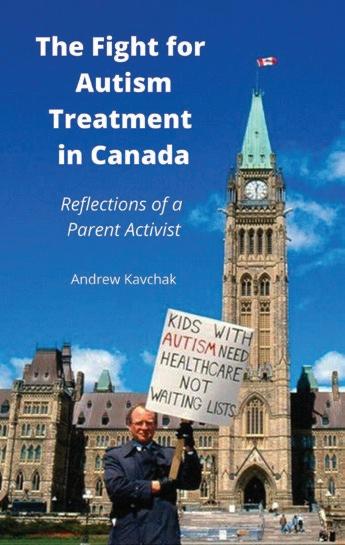
Forewords are contributed by Dr. Sabrina Freeman and Beverley Sharpe, two of the parents who spearheaded the Auton litigation case. Dr. Freeman and her husband were founding members of Families for Early Autism Treatment (FEAT) of British Columbia and leading advocates for the adoption of autism treatment programs in Canada.
This book is a “must read” for anyone interested in the history of autism public policy in Canada and those who seek to expand their understanding of the current state of government autism programs and how we got here. It will be of interest to parents, activists, students of public policy, researchers, and anyone concerned with the question: What can Canadian society do to help the autism community?
Minor Mythologies as Popular Literature: a student’s guide to texts and films
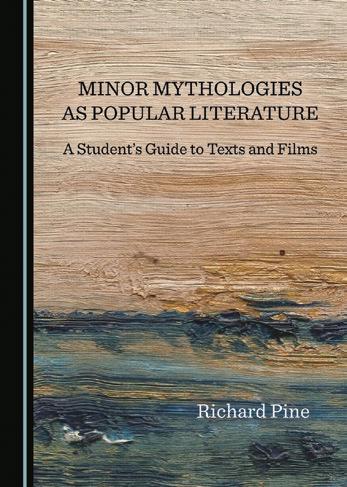 Richard Pine (AHH, 1962-66)
Richard Pine (AHH, 1962-66)
This is the first single-author study of the genres and roots of popular literature in its relation to film and television, exploring the effects of academic snobbery on the teaching of popular literature. Designed for classroom use by students of literature and film (and their teachers), it offers case studies in quest literature, detective fiction, the status of the outlaw and outsider, and the interdependence of self, other and the uncanny. It challenges perceived notions of, and prejudices against, popular literature, and affirms its connection with the deepest human experiences.
The cover illustration is an oil painting (“Connemara Seascape”) by my daughter, Vanessa Pine. The book is aimed at students (and their teachers) in an attempt to persuade them that “popular literature” is based on the same “mythologies” as the great works in the literary canon, and that it is academic snobbery that insists that popular literature is of a lower grade.
My recent books also include “The Disappointed Bridge: Ireland and the Post-Colonial World” (2014) and “Greece Through Irish Eyes” (2015). live in Corfu, where I am Director of the Durrell Library www.durrelllibrarycorfu.org) and editor of C.20 – an international journal www.c20ajournal.com). have recently edited a two-volume collection of Lawrence Durrell’s uncollected prose 1933-1988, Endpapers and Inklings
The Old Westminsters’ Lodge
What sets a Westminster education apart? Arguably it is how strongly we are taught to think for ourselves, not just to take the group view. By accepting there can be more than one view, we are also taught tolerance of others.
A pupil who really took these lessons to heart was John Locke (OW 1647, KS). His deep thinking on individual freedom and tolerance was highly courageous, going against the views of the Establishment. Later his ideas were enthusiastically taken up by the American revolutionaries and formed the core of the Declaration of Independence.
It is no surprise therefore that Locke was also a Freemason or so historical evidence suggests. Certainly Locke’s ideas chimed with Freemasonry; a politically – and religiously –tolerant organisation forged in a time of division, as royalty, parliament and church all vied to impose their competing views on the population.
The Old Westminsters’ Lodge continues these tolerant traditions. All political and religious discussion is banned at our meetings. Our ceremonies are somewhat like Morality Plays, to remind us how best to live and treat all those around us. This includes charity; London Freemasons have personally donated £2.5 million to the London Fire Brigade to commission two bespoke Super-Hi Lift fire engines; the tallest in Europe. The first was delivered in early 2020. The Lodge meets four times a year at the School. We take our meetings seriously and then dine convivially in College Hall. Our May meeting is a ‘white table’ event to which all are welcome; last year we had around 100 members and guests dining.
To find out how to join in our ‘serious fun’, or just to find out more about the oldest OW alumni organisation, we invite you to browse, and contact us through, our website: www.oldwestminsterslodge.org
John Locke: philosopher, “Father of Liberalism”, OW, and Freemason
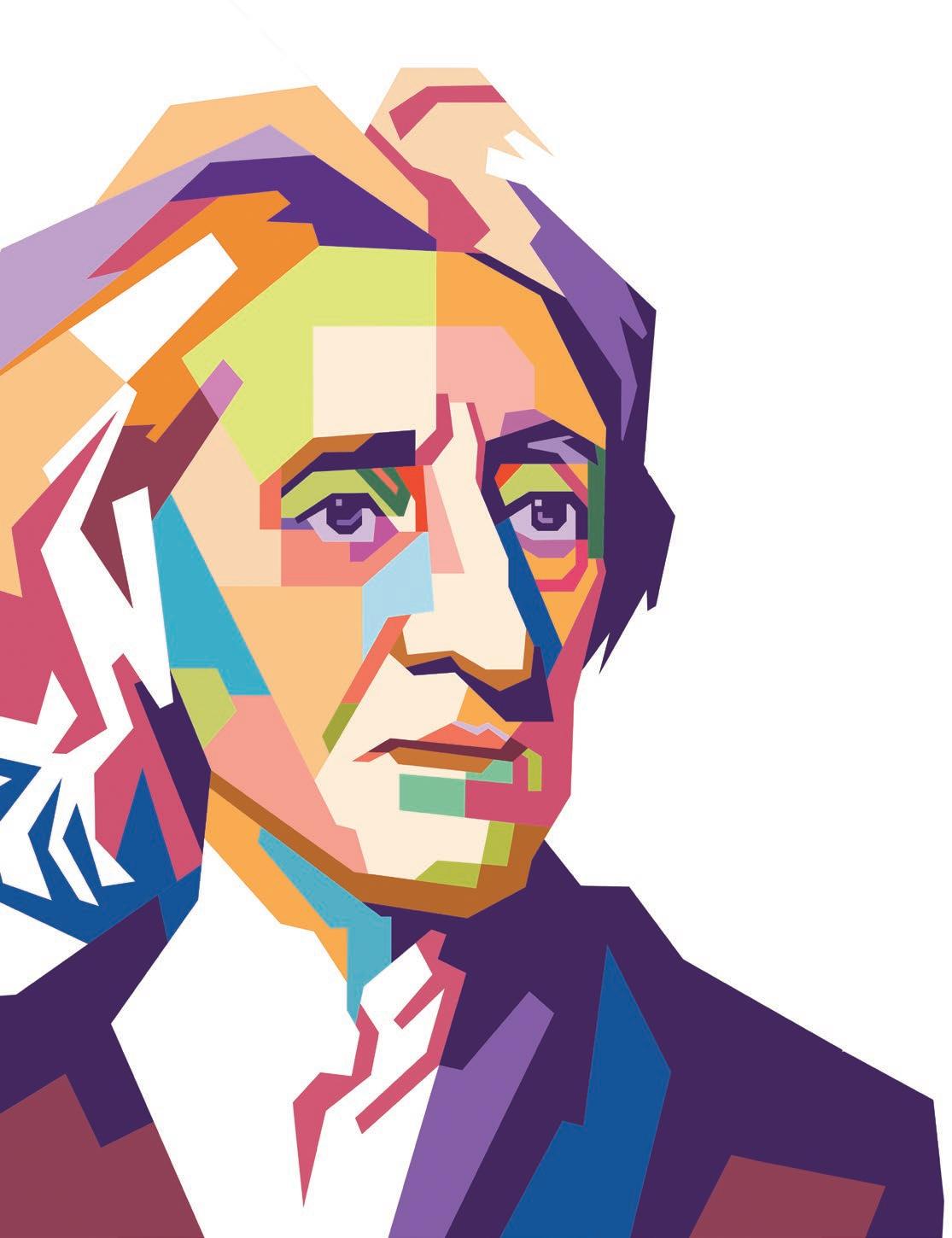
40 The Elizabethan Newsletter 41 ISSUE 2019/20
Alumni in Print
Casper Lawson (RR, 1977-80)
From the Archives
Elizabeth Wells School Archivist
Revolutionary Westminster
have recently had cause to study the papers of John Smith, which were identified amongst the Spencer Stanhope Manuscripts in Yorkshire in the 1940s. His diaries throw light on late 18th century Westminster: the wine-sodden lives of teachers (and pupils!), the paths open to an illegitimate son, and a school rocking in the waves of the recent French Revolution.
Smith was a pupil from 1777, later admitted as a King’s Scholar in 1780, aged 13, and went on to become Captain of the School. In 1788, after a sojourn at Trinity College, Cambridge, he returned to Westminster to work as an usher. Ushers have been described as ‘castrated housemasters’. Their primary role was teacher of a form within the school, but many supplemented this work with pastoral duties within boarding houses in which they were accommodated. At this point the boarding houses were independent entities, generally run by women, known as ‘dames’. Ushers were expected to help control the behaviour of the boarders and serve as an intermediary between school and house.
When Smith first returned to Westminster it was to teach the First and Petty forms. After nine months, Smith managed to acquire a role in Severne’s boarding house. Over the following fourteen years through ambition and careful self-promotion, he climbed the ladder. He ended his Westminster career as teacher of the
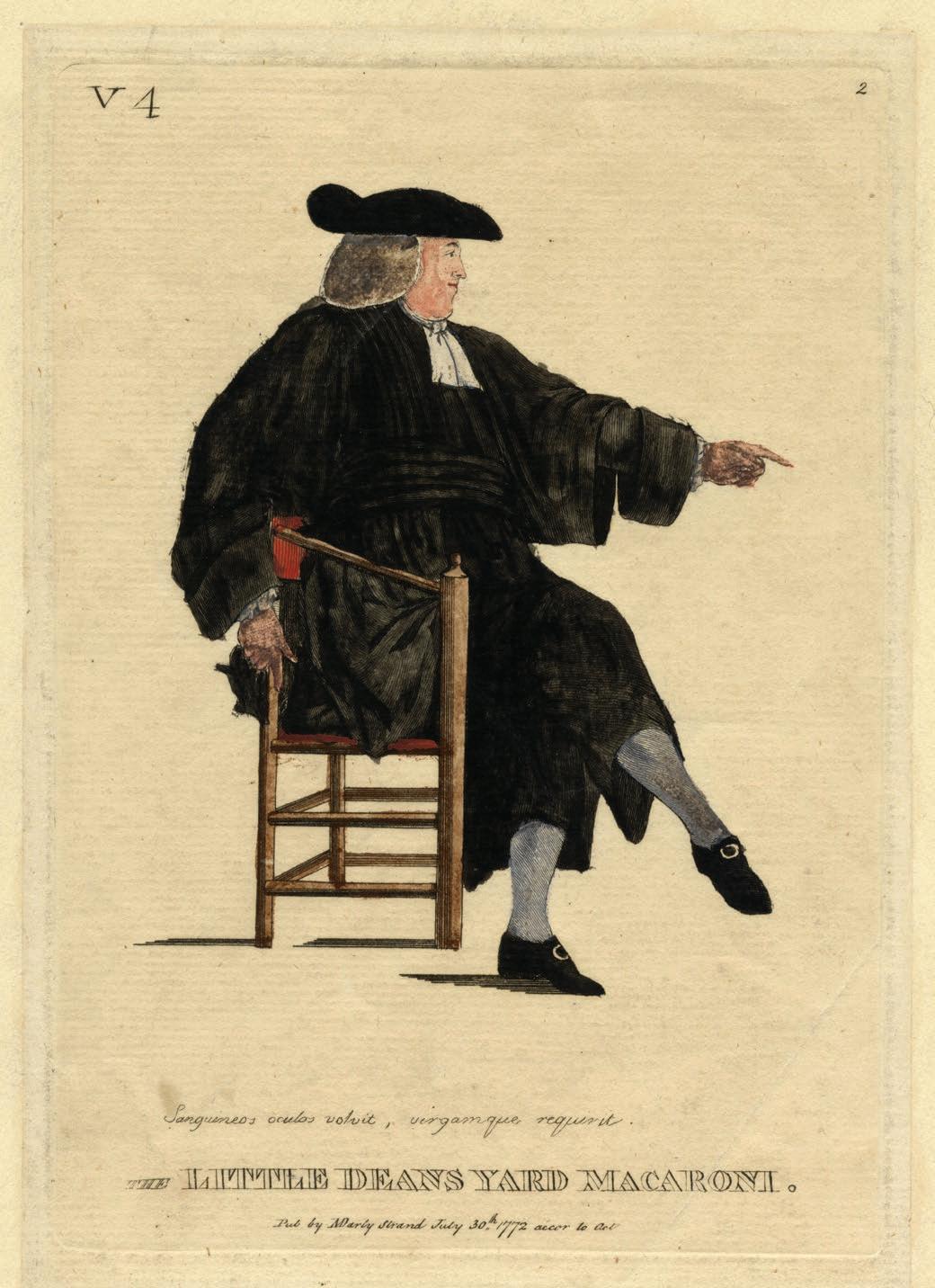
Third, the largest form in the school, and House Usher at Clapham’s, one of the biggest boarding houses. Smith’s advancement was dependent on the Head Master, Dr Vincent’s, patronage, and his diaries show a jealous awareness of his fellow ushers.
Members of the gig economy will sympathise with Smith’s precarious existence. Whilst he received two payments directly from the school: an annual salary of 20 guineas and an allowance of £20 for his board, a large proportion of his income was drawn directly from his pupils. He received ten guineas a year from pupils who were his private tutees (and in some cases double this amount, when the pupil was from an affluent family). He appears to have received a guinea from each boy allocated to his form and from those assigned to his house. There was a second guinea from both at Christmas and occasional gratuities from parents. Smith also made money by correcting proofs of a Latin grammar for Ginger, the school’s bookseller.
Smith’s preoccupation with his income was not purely mercenary: he had a dependant in the form of his mother, Mary, whom he visited weekly and supported financially. Smith stated that his father was ‘John Smith of London’ when he was elected to College, but his diaries, and Smith’s papers’ presence in the Spencer Stanhope Manuscripts, indicate otherwise. His real father was in fact John Spencer, of Cannon Hall, near Wakefield, Yorkshire. When
keep his diary every night before bed ‘when am sober’, but as this was not a regular occurrence, he appears to have written up several entries at once relying on memory. Mornings were spent at lectures, but nearly every afternoon was dedicated to hosting or visiting friends and drinking wine. In the evenings he often gambled at cards – initially with more losses than wins – but gradually improving thanks to a great deal of practice. By 1788, his winnings £64 18s 6d exceeded his losses of £58 13s. As might be anticipated, a number in his circle were former school-mates and he regularly dined with the ‘Westminster Club’ which was visited on occasion by William Vincent, then on the cusp of his promotion to Head Master. He was often in trouble with the College authorities, but only for minor misdemeanours such as failing to attend morning chapel. Given his evenings of wine-drinking this is hardly surprising.
It was Smith’s school and college friend Debary who suggested the post of Usher. Smith’s diary records that he was conscious of the ‘tedious and weary life’ of an Usher, but his financial situation ‘made school fetters appear silken bandages’. At Cambridge, Smith had begun a long-standing habit of living beyond his means. A Micawberish theme recurs through the diaries, as he records: ‘income inadequate, and slow in its receipt; its expenditure, quick and improvident.’ Fairly frequently he had to plead his case with his cousin, who generously cleared Smith’s debts on multiple occasions. Smith started at the school before he finished his degree, returning to sit the final examinations in January 1789. Over the following years he returned to Cambridge a number of times to try for a College fellowship, but was unsuccessful.
Spencer died in 1776, as he had no legitimate children, his estate passed to his nephew, Walter Stanhope, who took the name Spencer in addition to his own. Upon inheriting his uncle’s estate, Walter Spencer-Stanhope became aware of the existence of a closer relation, due to a provision left for ‘Mrs Smith’ and her son in a codicil to Spencer’s will. Walter SpencerStanhope took his responsibility to his
newly discovered cousin seriously. He supported John Smith through Westminster and Cambridge with a generous allowance, frequently welcomed him to Cannon Hall, and appointed him godfather to one of his children. The two dined together regularly when Spencer-Stanhope, a Whig MP, was in town.
Smith clearly enjoyed his time as a student at Cambridge. He set out to
Smith’s desire to escape Westminster and return to his Cambridge lifestyle are explained by his accounts of school life in the 1790s. Whilst allowances must be made for his inexperience as a teacher, the pupils at this time were particularly riotous and difficult to discipline. On the 9th May, 1790, Smith told his patron and cousin, Mr Stanhope, of a rebellion that had driven the ushers out of school. A major riot occurred in November, 1791 which resulted in the ➽
43 ISSUE 2019/20 42 The Elizabethan Newsletter
“One of the hardest things for boys to learn is that a teacher is human. One of the hardest things for a teacher to learn is not to try and tell them.”
Alan Bennett
William Vincent whilst a teacher at Westminster School.
boys marching out of the school room to congregate in Dean’s Yard and sing French Revolutionary songs. A few months later, in March 1792, Robert Southey was expelled for his attack on the Head Master and corporal punishment which he published in an unofficial school magazine, The Flagellant By May, Smith wrote that he was ‘haunted with this damn’d house, in which I think there must inevitably be a riot before the Holydays.’ Remarks such as ‘house discontented’, ‘house unquiet’, ‘house somewhat troubled’, recur with alarming frequency throughout the decade.
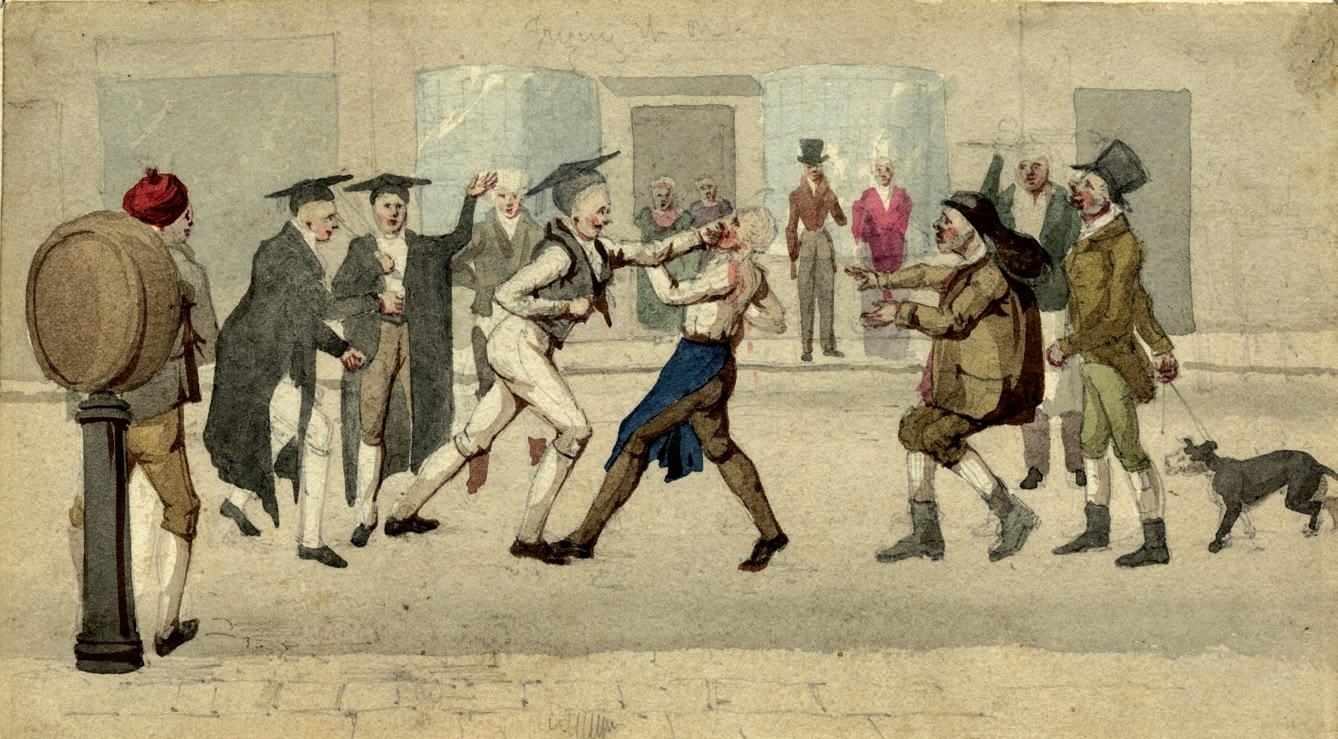
Alcohol was definitely a contributing factor to the stormy atmosphere.
Smith records many episodes of pupil drunkenness along with attempts to prevent excessive consumption, such as a seizure, on 7th November 1792, of ‘Porter in the Boys rooms.’ The political atmosphere outside of the school also played a part. Crowd movements were a common feature of late 18th century life even before the outbreak of revolution in France.
When Smith was himself a pupil the Gordon Riots had taken place, with a number of pupils leaving the confines of Dean’s Yard to observe this violent protest. By the time he returned as an Usher, Jacobinism was capturing the imagination of some sections of society. The news that Thomas Paine had been found guilty of seditious libel circulated the school in December.
In 1795 Smith ‘went into St. George’s fields to the Constitutional Ragamuffins meeting’ – a gathering of the radical group the London Corresponding Society – more out of curiosity than sympathy with the cause.
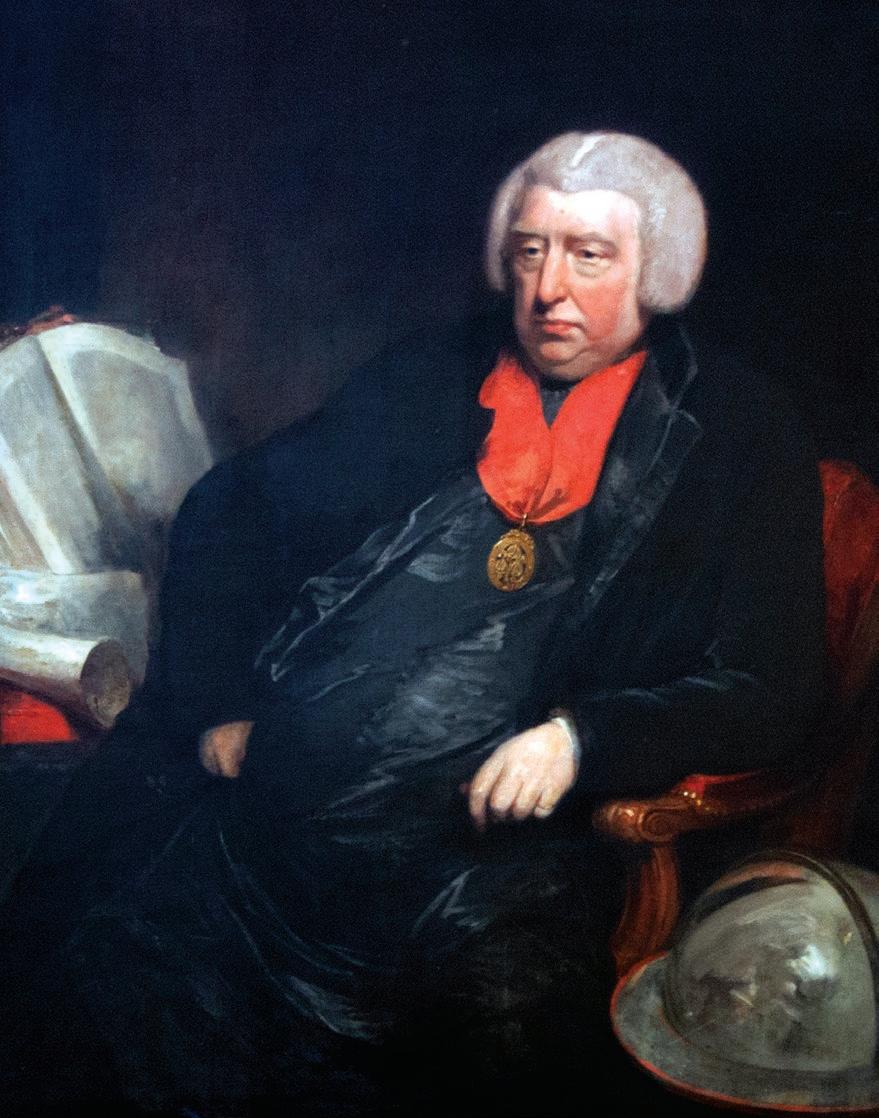
However, Smith did find time for his former habits, attending evening parties with fellow Ushers. On one occasion he stayed up with his colleague Tom Clapham ‘til four in the morning’ enjoying ‘much private prose & more Port’, a decision he regretted the following morning when he ‘did not get up ‘till after the boys were come from the Abbey’ and found himself ‘doing penance for last night’. He also enjoyed attending the theatre, and
recorded being in the audience of a performance of The Rivals alongside the King. On this occasion there was ‘a Jacobin party in the house who hiss’d regularly ev’ry thing which had any allusion to Royalty’ but ‘they were completely overpowerd by the remaining part of the Audience, & two or three people were turn’d out for want of proper decency & respect in their behaviour.’
Vincent’s championing of Smith finally fell short, at least in the latter’s eyes, in 1802. Following Vincent’s promotion to Dean of Westminster, there was some dispute over who should succeed him as Head Master. The choice of a new Head Master traditionally alternated between Christ Church, Oxford and Trinity College, Cambridge, and it was now Christ Church’s turn. A faction from Christ Church wished to appoint William Carey, one of their own alumni, for the role. However, Carey would only accept the post if he could appoint his own Under Master. John Wingfield, who was Vincent’s Under Master and a Trinity man, felt that he deserved the promotion. Various promises of church preferment were made to Wingfield as an alternative to the Headship, and eventually, after a term as Head Master, he accepted a sufficiently tempting offer elsewhere. Smith was frustrated that, throughout this wrangling, Vincent never proposed him as the new Under Master, asking his diary ‘is the unfailing faithful drudgery of fourteen years, worthy neither confidence or civility?’ The triumphant entry of Carey as Head Master in January 1803, with his own choice of Under Master, fellow Christ Church man, William Page, seems to have been Smith’s cue to exit the Westminster stage.
Smith’s mother had died in February 1796 and he arranged for her burial at St. Margaret’s. Her death eased his financial burden and loosened his ties to London. Smith had secured a living as Vicar of St. Nicholas’, Newcastle upon Tyne, in 1802. By 1805 he gave up his work at Westminster and moved north permanently, perhaps provoked by one too many ‘stupid, obstinate, hopeless pupils’. Smith never married,
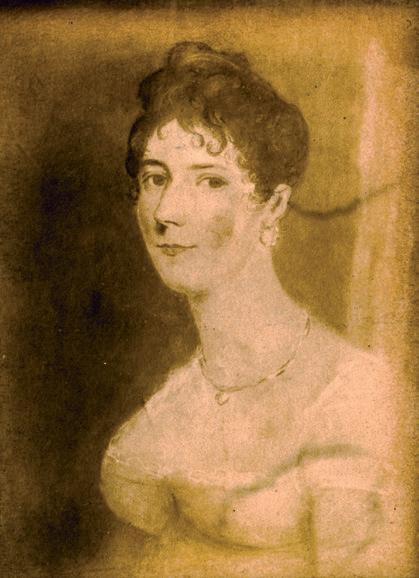
but remained in Newcastle until his death in 1830. A memorial tablet depicts his face in relief in St. Nicholas’, which is now Newcastle Cathedral.
Once again, I would like to take this chance to thank all OWW who have donated time, money towards conservation, reminiscences and archival material to the school over the past year. Many Old Westminster authors have continued to gift copies of their works to be added to our Greene Collection. We love adding new items to our collections, which are widely used both within and outside of the school. Please keep the donations coming! ■
Collections Online
Since the last magazine we have been working hard to develop the collections’ online presence. Our electronic catalogue can now be browsed and searched at collections. westminster.org.uk. The site contains descriptions - and in some cases digital copies - of works of art, rare books, objects and records. Naturally this resource continues to be a work in progress and feedback, including constructive criticism, is always appreciated. We will continue to digitise elements of the collection in response to interest and demand, and have recently made copies of The Grantite Review available through the catalogue.
45 ISSUE 2019/20 44 The Elizabethan Newsletter From the Archives
Westminster pupils were notoriously rough at this time, as this ‘Tom and Jerry’ cartoon, depicting scholars boxing demonstrates
Mrs de Brieux, a boarding house dame who married the Chevalier de Brieux, a French émigré from the Revolution
William Vincent, following his elevation to Dean of Westminster
In Memoriam
2016
Geoffrey Alan Shepherd (Former Staff)
2017
Marcus B Adams (GG, 1963-1968)
Fergus D Bateson Esq MBE (KS, 1943-48)
Edmund E Bland (WW, 1951-56)
Alastair J Bonar (RR, 1951-56)
Clive G Chrisopher Brousson (RR, 1953-57)
The Very Reverend Dr Wesley Carr (Former Governor)
Dr Robert H G Charles (QS, 1950-55)
Mark R M Colvin (LL, 1965-69)
Charles L H Coulson (AHH, 1954-59)
Nicholas H Adam Curtis (LL, 1964-68)
Brian M Davies (BB, 1951-55)
Richard W W Dawe (Former Staff)
Stephen J Earle (GG, 1968-72)
Joan Fenton (Former Staff)
John R Glanfield (Home Boarders, 1934-38)
Dr Roy M Haines (Former Staff)
Count Luccio N Labia (RR, 1938-39
Peter Nicholas Pinfield (WW, 1959-64)
Kartik Prabhu (WW, 2011-16)
Robin Philip G Richards (GG, 1950-55)
Gordon G Skellington (GG, 1943-47)
David Tweddle (AHH, 1966-70)
William Matthew Wrigley (QS, 1960-65)
Sir Roger W Young (KS, 1937-42)
2018
Peter George McCarthy Brown (QS, 1958-62)
Prof. Anthony R Dicks (WW, 1949-54)
Professor Anthony J Frew (QS, 1968-73)
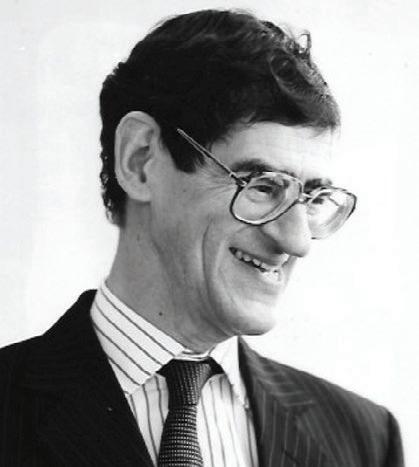
Andrew J Gilbart (QS, 1963-67)
George L Law (KS, 1942-47)
Christopher W. Roxbee Cox (BB, 1942-46)
Prof. Stephen J G Semple (BB, 1940-43)
Corrections from 2018-19 Newsletter
2019
Lindsay C Baxter (PP, 2009-11)
Dr Richard Bland (WW, 1951-56)
Sir John D Boyd (BB, 1949-54)
Anthony D Collier (LL, 1959-64)
Anthony T Cooke (GG, 1958-63)
John Corsellis (KS, 1936-40)
Dr Julian G Edwards (AHH, 1953-58)
Edward R Enfield (RR, 1944-48)
Jim G Forrest (AHH, 1957-62)
Ian J Fulton (GG, 1947-53)
John E J Hayward (BB, 1931-36)
Walter Michael Holmsten (GG, 1962-66)
Kenneth Frederick Holt (Former Staff)
Neville C Masterman (GG, 1926-31)
Christopher Moor (Former Staff)
Donald W C Morrison (WW, 1948-53)
Jonathan Mountain (BB, 1947-52)
John H C Nicholson (WW, 1954-57)
Simon D Ollivant (BB, 1966-70)
Simon L Parkinson-Smith (LL, 1959-63)
Major Nigel R Petrie MBE (RR, 1947-51)
Francis Michael B Rugman (GG, 1955-60)
Christopher E G Springate (DD, 1979-83)
Geoffrey S St John (RR, 1944-48)
Spencer R Steadman (RR, 1991-96)
Peter T Swan OBE (GG, 1946-49)
Lord Charles Cuthbert Powell Williams CBE (KS, 1946-51)
2020
Andrew Bateman (Former Staff)
David Bland (Former Staff)
Peregrine C D M Broadbent (RR, 1977-81)
Nicholas Kingsley Palliser Dibley (AHH, 1985-89)
Peter Hughes (Former Staff)
William Keith Maclennan (QS, 1954-59)
– Prof. Anthony J Frew (QS, 1968-73) was listed as having died in 2019, however he died in 2018.
– Peter G M Brown (QS, 1958-62) was erroneously listed as a former member of staff.
– William Matthew Wrigley (QS, 1960-65) was listed although his obituary was mistakenly omitted. It is included in this issue.
– Prof. Stephen J G Semple (BB, 1940-43) was listed although his obituary was mistakenly omitted. It is included in this issue.
– The obituary for Nicholas Milner-Gulland (QS, 1953-57), written by Robin Milner-Gulland (KS, 1949-54), was erroneously listed as being written for The Telegraph, however it was written for The Guardian
Tributes
FERGUS D BATESON ESQ MBE (KS, 1943-48)
26 April 1930 – 16 October 2017
Dad was intensely proud of his time at Westminster School and I know that it gave him many happy memories. He was an enthusiastic donor to the development fund. His own father died when he was quite young and the family was unable to fund a private education. Dad worked very hard and won a scholarship to Westminster (and subsequently to Oxford), Westminster gave him a thirst for knowledge and for learning which never left him.
Submitted by his son, James Bateson
DR RICHARD BLAND (WW, 1951-56)
29 June 1938 – 15 July 2019
Richard was very proud of his education at Westminster and often spoke of colleagues and his teachers.
He continued his education after Westminster, with an HBSc from University of London in Biology, followed by PhD in Botany, granted by University of Western Ontario, London, Canada.
He was a Senior Biologist with James F. MacLaren Ltd from 1967–1978, when he formed his own consulting business in Aquatic Biological Identification. He retired in December, 2018.
He passed away July 15th, 2019 in London, Ontario, Canada. He is survived by myself, and two daughters, Fiona and Diana, both of London ON.
Submitted by Mary Bland
DAVID BLAND (FORMER STAFF)
d.16 April 2020
David was interviewed and appointed by Dr John Rae in 1984. He quickly came across a problem affecting most teaching at Westminster, namely that he was teaching young people cleverer than he was! After his first year though, however bright the pupils were, he ensured he always knew
more about mathematics than they did. He loved the atmosphere at Westminster school, relaxed in many ways but academically demanding as more than half the leavers were accepted at Oxford or Cambridge. David became Registrar, reducing his timetable to concentrate on interviewing prospective pupils and their parents. At the same time he felt honoured to be appointed President of the Common Room. He left the school in 1989. He really enjoyed the close link between the school and the Abbey and was delighted when in 1987 he was asked to become an Honorary Steward. Submitted by his daughter, Cathy Bland
SIR JOHN D BOYD (BB, 1949-54) 17 January 1936 – 18 October 2019
The College is saddened to announce the death of former Master of Churchill, Sir John Boyd, on 18 October, aged 83. Sir John was the Master of Churchill from 1996–2006, having previously been the British Ambassador to Japan from 1992–96. During his time as Master, Sir John was also announced as the chairman of the British Museum in 2001 having previously been a trustee of the museum for five years, working closely with the Museum’s Department of Japanese Antiquities.
47 ISSUE 2019/20 46 The Elizabethan Newsletter
The Development Office have been made aware of the deaths of the following members of the Elizabethan Club and greater Westminster School community, since the publication of the last Elizabethan Newsletter.
Speaking in 2018 of his time as Master of Churchill, Sir John recalled: “We were extraordinarily lucky and happy to come to Churchill and we never regretted it for a day. All the main points about Churchill were things that were very near to our hearts: the flexibility and the strong talent, offset by this kind of family feeling. The lovely link with Mary Soames in particular was always a joy. The link with Mr Møller also. He was a lovely man – so careful and courteous. And then the other major thing was that Julia and I could both be involved and it was the ultimate happiness for us both as a couple and each doing our thing in the College.
There was a low point when I had a stroke and others I knew in Cambridge or elsewhere had been pretty much waved goodbye by their colleges when they got seriously sick. So, it was one of the most human and lovely things the College did was to tell me: ‘Take your time, we want you back.’
Educated at Clare College, Cambridge and Yale, Sir John joined the Foreign Office in 1962, where he was sent to Hong Kong almost immediately to continue his language studies in Chinese, before returning to the UK in 1967 to work in the Northern and then First Eastern Departments. In 1969 he was sent to Washington where he – in his words – ‘was covering the Nixon phenomenon, Kissinger’s re-balancing of the world [and] Mel Laird’s managing of the Pentagon.’ In 1973 he moved back to China, before heading to Bonn as Counsellor Economic in 1977. In 1981 he went to the United Nations in New York, where he was ‘responsible for the Economic and Social Council, the Second Committee, which was economic affairs, the Third Committee of the General Assembly, which was social affairs, and a whole range of relations with the Specialised Agencies – population people, development people, food people and so on.’
After New York Sir John returned to the Foreign Office as an Assistant Under Secretary of State in 1984, before becoming political advisor to Hong Kong in 1985. After two years
in this role he returned to the UK to become Deputy Under-Secretary of State (Defence and Intelligence), a role which he said ‘suited us in family terms to bring up our small family in the UK for a change. We lived in a tiny basement in SW1 and I walked to the Office. It worked out well.’ He then became Chief Clerk from 1989–92 before moving to Tokyo in his final role before joining Churchill College.
Speaking about his long and varied career that spanned 3 continents in an interview in 1999, when asked if he would do it again Sir John said ‘Without hesitation. I always thought when was young that would probably pursue the family traditions of medicine or academia. I thought, or persuaded myself, that that is what I wanted to do and had periodic chews at it, none of which was totally satisfactory. I think that probably up until my last year at Cambridge I thought I would be an academic of some kind, but I am profoundly glad wasn’t. The Service provides a perfect home for people like me, who want to be active, but who are not actually first class academics; there are lots of people in the Foreign Office much brighter than me but they were nice tolerant colleagues and one could make some use of one’s life. So I have absolutely no regrets and I am just very lucky that I have this [Master of Churchill] as a cherry on top of the cake at the end of it, largely by luck.’
Remembering Sir John, Director of the Churchill Archives Centre, Allen Packwood said, ‘He was a great supporter of the Churchill Archives Centre and his personal diplomacy undoubtedly helped us acquire many important collections. He knew everybody and was liked by everyone.’
Rosemary Saunders, who was Sir John’s Personal Assistant for many years said, ‘Sir John was a remarkable person to work for. He was thoughtful and supportive and I will always remember John with high esteem. I consider myself extremely fortunate to have known him both professionally and personally, sharing many happy occasions with both he and Julia.’
Sir John will be recalled with great affection by all those members of the College who knew him during and after his time as Master, and valued him both as a distinguished holder of that post and as a fine person. A commemoration service will take place in the Chapel at Churchill, the College of which he was so fond, at a date to be announced soon. Our thoughts are with Julia and the Boyd family.
Written by Churchill College, Cambridge
PEREGRINE “PEG” BROADBENT (RR, 1976-81)
27 November 1963 – 29 March 2020
Peg passed away in March from complications of the novel coronavirus.
For the last 12 years he was CFO at Jefferies, a leading investment bank headquartered in New York. Prior to that, he worked for Morgan Stanley for 16 years, where he rose to become head of institutional controllers for fixed income, equity and investment banking, managing more than 1,000 people. “Part of what made Peg the great partner he was to all of us was his core humanity,” wrote Jefferies’ chief executive, Rich Handler. “No matter what the occasion, his decency, calmness and dry wit were always there, always making things better. We will miss him terribly.”
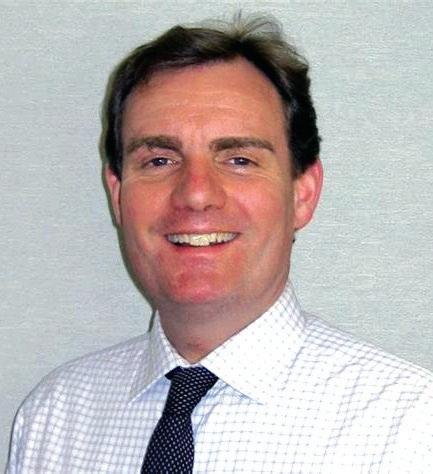
(From the FT 29/3/20 )
These sentiments are echoed by his many friends and colleagues from
Westminster and beyond. Despite working in high pressure Wall Street jobs for over three decades, Peg remained the same kind, funny, down-to-earth, generous, and open-minded person he was in his school days. He was also known for his prodigious memory, his hilarious storytelling, and his uncanny ability to mimic different accents and characters.
Peg grew up in London and Dorset, and, after Westminster, earned a BSc from the University of Exeter in Engineering, before becoming a Chartered Accountant with Coopers & Lybrand.
He travelled extensively both for work and pleasure, particularly throughout Asia. He enjoyed the opera, and was an avid sports fan, becoming a regular at the US Open tennis tournament and at Stamford Bridge (despite being a Liverpool fan at heart). More than anything, Peg will be remembered as a devoted and loving father, husband, son, and brother.
Peg is survived by his wife Hayley, a former Morgan Stanley executive, their young children, Sebastian and Grace, his parents, three brothers, including Matthew (WW, 1980–1985), and three older children from a prior marriage. His sudden and unexpected death in New York came as a shock and he will be deeply missed by countless friends, colleagues, and family around the world.
Submitted by Mark Atkins (RR, 1976-81) and John Warburg (RR, 1976-81)
PETER GEORGE MCCARTHY BROWN (QS, 1958-62)
8 May, 1945 – 30 November 2018
Peter Brown lived in Oxford all his life and made a huge contribution to both the University and the City in the spheres of Classics, in particular Greek and Roman Drama, and Music.
However, it was at Westminster that the foundations of his later interests were well and truly laid.
Winning a scholarship from the Dragon School in 1958, Peter soon made his mark as a Classicist and in particular, inspired by Theo Zinn’s
productions, he acquired his life-long love of Latin Comedy. In the Festschrift that was produced for Theo on his retirement, Peter thanks Theo for introducing him to “these wonderful plays, which have been my favourite reading ever since.” He himself acted in two of these plays: in the 1960 Adelphi he played the part of a lady of easy virtue and it was recorded that “his skill in walking convincingly in high heels was much admired” and in the 1962 Heauton Timoroumenos (The Self-Tormentor) he took on the more substantial role of Menedemus, described as “inspired casting”.
Away from Latin Comedy he acted in King Lear, the Crucible and End Game. He also performed with distinction in school singing competitions and, in a joint staff/pupil production of Trial by Jury, “Peter Brown as Usher proved once again that his voice is an exceptionally good one for Opera”, an indication of things to come.
On top of all this thespian activity he found time to edit several issues of the Elizabethan, yet he still managed to win a scholarship to Corpus Christi College, Oxford, before he was 17.
After a gap year spent partly at Wűrzburg University, Peter came up to Corpus in 1963. As well as performing with predictable distinction on the academic front, obtaining a double first in Literae Humaniores and winning the de Paravicini prize, he further developed his love of singing and joined the Schola Cantorum at its inception in 1964. He was to play a major part in the success of this choir in the coming years, performing frequently as a soloist and eventually serving as Chairman of the Trustees. In the 1970’s he sang with the Monteverdi Choir, performing at the Proms and abroad, and for four decades he was a member of the Oxford Pro Musica Singers. He took major parts with various amateur opera groups in Oxford and Italy. Peter was in great demand as a soloist at Oxford concerts and early in his career he gave serious consideration to the possibility of becoming a professional opera singer. However, the call of academia was
49 ISSUE 2019/20 48 The Elizabethan Newsletter
too strong to resist and, less than a year after taking Finals, he was elected Tutor in Classics at Trinity College at the remarkably young age of 23.
At Trinity he performed all the roles that were expected of a Fellow and more, serving as Secretary to the Governing Body, Senior Tutor twice, Vice-President three times and once as Pro-President. In 1986–88 his administrative abilities were to the fore when he directed a successful College appeal and, as he neared retirement he raised the money needed to endow the fellowship in Classics, thus ensuring the continuity of his own position. In fact this appeal reached the formidable sum of £2.1 million, a fitting tribute to his rapport with both former pupils and friends of the College at large. Appropriately the position has been named “The Peter Brown Fellowship in Classics”.
Peter was a successful and much appreciated tutor. At the Celebration of his Life, held in the Sheldonian Theatre on June 23, 2019, many former pupils were present and tributes were paid to the habits of meticulous scholarship which he instilled. Above all he encouraged his pupils to develop their own ideas and he was acknowledged to be fair and generous to everyone.
Outside Trinity Peter played a prominent part in the Classics Faculty, serving twice as Chairman of the Board. It was said that he steered the Board through the biggest reform of Mods and Greats of the last century. At meetings his accuracy and grasp of detail were legendary, but at the same time he was no bureaucratic pedant. A colleague recorded, “he was always ready to step back and laugh at the absurdity of it all”!
To his credit, despite the many administrative demands, Peter found time to pursue his own research and interest in Classical Drama, and for at least three decades he was recognised as the “go-to” expert in Roman Comedy at Oxford. He was the author of many articles and in 2006 he published a complete translation of Terence’s comedies. At the time of his death he
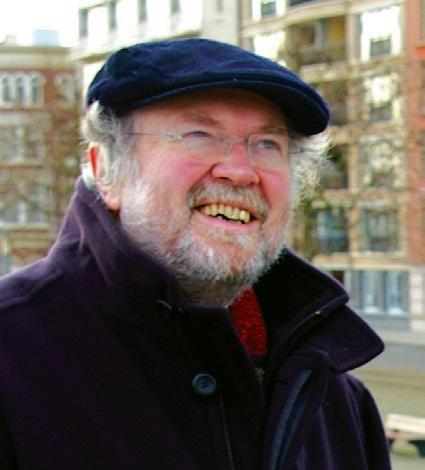
had completed a commentary on Terence’s ‘The Girl from Andros’ (Andria), which has subsequently been published.
In 2001 he was appointed Co-Director of the Oxford Archive of Performances of Greek and Roman Drama. In this capacity his knowledge of Roman theatre was invaluable, but it was particularly appropriate that he was able to combine his love of both Classics and Music when leading the Archive’s research on musical productions. He was able to identify 100 musical versions of Greek plays composed since the 1960’s and he listened to all of them! The soprano and musicologist Suzana Ograjensek, who assisted Peter in this research, described him as “the best boss possible, straight as an arrow, utterly honest, kind and caring”.
Together they co-edited “Ancient Drama in Music for the Modern Stage”.
In his first year at Corpus Peter met his future wife, Lesley, herself a Classicist at Somerville, and later Tutor in Philosophy at that College.
They married soon after Finals and for over fifty years enjoyed a perfect partnership with their overlapping, but slightly different interests, coupled with the stimulating and joyous demands of raising their North Oxford family.
When Peter was diagnosed with cancer in 2016 and faced many cycles of debilitating chemotherapy, he derived considerable comfort from the loving support of Lesley and their three children.
He died peacefully at home at the end of November 2018, much missed by Lesley, Jonathan, Susannah and Penelope, their seven grandchildren (an eighth was born subsequently), and by his three brothers, Michael, David and Andrew.
Submitted by his family
PROFESSOR ANTHONY DAVID COLLIER (LL, 1959-64)
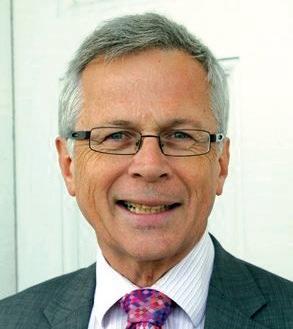
16 July 1946 – 23 October 2019
Architect, teacher, entrepreneur, artist and champion of the importance of arts and design to community.
My husband Professor Anthony Collier, Ant, died last October aged 73 of motor neurone disease. He attended Liddell’s House from 1959–1964. His older brother Peter was also at the school. He spoke of his time at Westminster with great fondness. He was head of house and fenced for the school but his real enthusiasm was painting which he was allowed to do in his room, and I think also enjoying London life at weekends with his great friend David Brown.
Born in Lancing, Ant was the son of Gwen and Gerald Collier. He was brought up in Exeter and Durham where his father was Principle of Bede College. After Westminster he studied architecture at Edinburgh University. He subsequently worked for the GLC and joined Neylan and Ungless contributing to their award winning housing schemes. We met when he became a tutor in architecture at Canterbury College of Art. Here he became an initiator of the new concept of community architecture and quickly identified as a truly inspirational teacher. His great skill and pleasure as a mentor and facilitator of the careers of people of all ages was to be a lifelong theme. We then moved to
Newcastle where he was a lecturer at the university. Within four years he was offered the post of Head of the School of Architecture and subsequently Dean of the Faculty of the Built Environment at Birmingham City University. Here he created the largest and most creative multidisciplinary teaching and research centre for the built environment outside London, attracting many post graduates and overseas students. His vision for the faculty and indeed for Birmingham was that by working with communities excellent design could be central to the reinvigoration of Britain’s declining cities.
Alongside a career as architect and academic he was a gifted artist, arts promoter and entrepreneur. In 1988 he bought a derelict canalside building and with colleagues and partners created ‘The Bond’ as a repurposed home for creative businesses, constantly spawning new ideas and initiatives for over 25 years.
At the turn of the century we moved to rural Shropshire while he continued to develop his own practice which specialised in research, design and management. We soon became part of the extraordinary artistic community which flourishes in this part of the country. Here true to his passion, he commissioned and sited contemporary carving and sculpture in our garden which we designed and created together. He became a trustee of the Sidney Nolan Trust working to develop Nolan’s studio in Herefordshire as a centre for contemporary art and forging relationships with artists across the globe.
Ant observed the natural world with an acute sensibility and insight as a draughtsman and a wonderful colourist himself. For his last ten years he was increasing disabled by motor neurone disease but continued his creative work. This culminated in his innovative Mind Walks programme – working with new media, and collaborating with other artists to the end of his life.
He is survived by myself and our children Edmund, Laura and Guy and seven grandchildren.
Submitted by his wife, Penny Collier
PROFESSOR ANTHONY J FREW (QS, 1968-73)
24 April 1955 – 28 November 2018
Tony Frew was the eldest of three OWW brothers. Our Scottish grandfather Robert Frew, and his two sons (Tom, and James – our father), established the medical practice in Wickford, Essex.
Tony was the top scholar in the 1968 election. College was a hothouse of intellect, and debate was encouraged (to our parents’ distress when argument continued over the weekend!). In his own account of his schooldays Tony wrote “Maybe I should have expected it but being the top scholar set me up as everyone’s target” “... we lived in close proximity... we used the shared space to play various games together – Diplomacy being the favourite board game, but chess and bridge were regular events.”
Tony and I commuted weekly from Essex (except for those Sundays we were required in Abbey), and timed to the second our race from the tube, across Parliament Square, to get to school on time.
Tony’s favourite memories were singing Mozart’s Requiem in the Abbey; and being one of the two cantors for Little Commem in the Henry VII chapel, with the scholars’ parents present.
Outdoor trips were organised by John Field and Jim Cogan to Snowdon and the Lakes: “Looking back we had completely inappropriate clothing and
51 ISSUE 2019/20 50 The Elizabethan Newsletter
boots – I found an old pair of nailed army boots in the loft of College and our anoraks got completely waterlogged in the rain.” School ski trips to Switzerland by train were also an adventure: a bottle of grappa once broke in our luggage “so when we arrived back in London we smelled very strongly of alcohol (and we hadn’t drunk any of it)”!
After a miserable year rowing at Putney, Tony took up fencing, coached by Bela Imregi in an “aggressive active style”, and soon he was a half-pink in the foil and sabre teams. Tony supported Arsenal, and saw them defeat Spurs 1-0 in May 1971 to clinch the title.
Aged 13 Tony won the Cheyne prize in mathematics, open to all under 16 at school: “a bit of a triumph”. He won a scholarship in mathematics to Peterhouse. At his Cambridge interview he was asked: What was his best break at snooker? And would he consider any other subject than maths? He chose medicine.
Tony trained in respiratory medicine at the National Heart & Lung Institute, London, with a doctoral thesis on T-cells’ role in asthma. He then studied occupational red cedar asthma in Vancouver, Canada. He was on the council of the British Society for Allergy and Clinical Immunology for 25 years, becoming President in 2012. In 2016, in recognition of his outstanding contribution to UK clinical allergy, he became one of the few people to have received both of the highest honours bestowed by the Society. He was Secretary and President of the European Academy of Allergology and Clinical Immunology; and served on committees of the American Academy of Allergy, Asthma & Immunology. He was associate editor of the Journal of Allergy and Clinical Immunology; supervised over 20 doctoral students; and was author of up to 200 peer-reviewed manuscripts. His special interests were asthma treatment; the health effects of air pollution; and medical and psychosocial aspects of allergy services in the community.
As well as his research, Tony was a hands-on NHS Consultant, shouldering his share of front-line care. In 2001 he was appointed Professor of Respiratory Medicine at Southampton, and from 2005 he was instrumental (with his wife Helen) in establishing the new medical school at Brighton.
In 1983 Tony married Helen Smith, herself a high-flying academic doctor. Their four children, the offspring of two professors, are predictably high achievers in medicine, teaching, the civil service, and business. Tony pursued sport and cultural activities with enthusiasm. He was a BS-AC instructor at the Brighton scuba club, and dived as far afield as the Galapagos and Truk Lagoon. Closer to their grandly restored home on the Royal Crescent was opera at Glyndebourne and walks on the Downs.
Tony always enjoyed an argument (or debate). In 2017 he appeared on the Andrew Neil Show to contest the oft-repeated claim that traffic pollution in UK causes 40,000 deaths a year (a statistical construct, derived from the hypothesis that we all die a few weeks prematurely). Tony had nothing against Greenpeace and their hapless spokesman, but he could not abide the misuse of statistics! Tim Harford, on Radio 4’s “More or Less” gave posthumous tribute to Tony’s pursuit of the truth.
In 2018 Tony suffered a depressive psychosis, which led to him taking his own life.
At his burial on the Sussex Downs read the poem by GW Young which ends:
“What if I live no more those kingly days? Their night sleeps with me still. dream my feet upon the starry ways. My heart rests in the hill. may not grudge the little left undone. hold the heights. I keep the dreams won.”
Submitted by Dr Patrick Frew (QS, 1969-74)
IAN J FULTON (GG, 1947-53)
30 November 1934 – 22 February 2019
Ian Fulton, who was St Albans mayor from 1974 to 1975, was born in North London on November 30, 1934.
He came to Harpenden during the Second World War, and attended Moreton End School in Harpenden before going to Westminster School in London and Balliol College, Oxford. After being called up on national service for the army, Ian worked for Harpenden solicitors Taylor Walker (later Taylor Walton).
He gave up law in his mid-40s to train as a psychiatric nurse, and worked at the Red House Harpenden Memorial Hospital, where he also became chairman of the hospital’s League of Friends.
From 1973 to 1974 Ian was the last chairman of Harpenden Urban District Council, before its abolition. He also served as chairman and later president of the Harpenden Society from 1992 to 2012.
Among his many notable roles in the town, he was also a founder member of the Friends of St Nicholas Church, president of Harpenden Rovers Youth Football team, area vice president of St John Ambulance, a trustee of St Albans International Organ Festival, governor of the National Children’s Home and chairman of the Harpenden and Wheathampstead Scout District.
Ian died on February 22nd at the age of 84. His funeral was held at St Nicholas Church.

Published in The Herts Advertiser
JONATHAN MOUNTAIN (BB,
1947-52)
7 July 1934 – 29 December 2019
Jonathan attended Westminster School from 1943–1952. He was a member of Busby House and during his time he was evacuated with the school for a very short time to Bromyard although much of the bombing of London had already happened. During the war, he was a day student at the Under School. The main School had already been evacuated. He would travel daily by bus from Wimbledon to Putney, then by
Underground, District Line to St James Park tube station and walk the 300 yards along Tothill Street to Deans Yard, then into Little Deans Yard and the School. He was about 9 years old. During air raids they would go down to a cellar shelter in the basement and the lesson “sort of” continued. For A levels he took Maths, Additional Maths and Physics. Westminster School was seen at that time as classics based and there were only four pupils in the Maths Class. Mr Prag – of the Sundial memorial –was a Maths teacher he much admired. He went on to St Andrews University, Dundee where he graduated with a degree in Civil Engineering. He worked mainly in this country, being involved with projects such as the second Mersey Tunnel, Ferrybridge Power Station, Hydro-electric schemes and lastly, Off Shore Oil Platforms. He died aged 85 years after a short illness and leaves a wife, four children and eight grandchildren. He will be greatly missed by them all.
Submitted by his wife, Mary Mountain
FRANCIS MICHAEL B RUGMAN (GG, 1955-60)
5 August 1942 – 6 April 2019
free time to the School, which became one of the most important aspects of his life, second only to his family.
The sudden death of Michael Rugman came as a shock to all who knew him, especially members of the Westminster community, with whom he worked over many years. He devoted much of his
Michael’s father, Sir Francis Rugman, was Financial Secretary to the Government of Sudan, his mother the daughter of Edward Barclay (OW). Sir Francis died of lung cancer when Michael was only three, leaving his mother with limited means of support. Nonetheless, he entered Westminster School in 1955, going up Grants. He felt obliged to support his mother as soon as he could and so, despite having been awarded a place at Trinity College, Cambridge, he left School in December, 1960, to pursue a career in accountancy. He became an Associate of the Institute of Accountants in 1966 and was elected a Fellow in 1978. He then worked with a variety of companies, including First City Bank and Bowaters, later becoming a research analyst for the investment research firm Messels. He also worked in finance roles at GEC and BT and was seconded from the latter to be financial secretary to the Prince of Wales’s International Business Leaders Forum. His own Company, Powermet, was concerned with the distribution of electricity and smart meters. In 1974 he married Caroline (Caro), a distinguished physiotherapist and they had two sons, Edward (GG, 1995-00) and Robbie, and a daughter, Clara. A significant characteristic of many OWW is that they cannot be pigeonholed and Michael was a prime example of this. His list of “other interests” included Roman history, Apple computers, the internet, local history, genetics, archaeology, stately homes, country churches, and Private Eye. He was an avid and adventurous traveller and he and Caro undertook journeys, often to far-flung parts of the world, returning with a new fund of miscellaneous information about the people and places they had visited. He was an enthusiastic Grantite, serving on the committee for many years. He was Chairman of the Elizabethan Club from 1989–2000, and in this role he initiated a review of the Club’s structure and constitution,
53 ISSUE 2019/20 52 The Elizabethan Newsletter
encouraging younger OWs to join the committee. He also introduced several of the events which are now fixtures in the calendar, such as the Ben Jonson and City drinks and the Medics’ Dinner. As a result, links with the School and the newly established Development Department were re-established and flourish today. Another of Michael’s lasting contributions was as a member and from 2007 Chairman of the School Society, which exists to give financial support to particular projects that would otherwise struggle to be achieved. When Gilly French founded the Cantandum chamber choir in 2003 Michael became, and remained, an enthusiastic supporter. He seldom missed a School concert or play and he was rightly delighted when his son Edward became one of the leading fencers in the School in the 1990s.
I first got to know Michael when he and I were together in the School in the 1950s. Over sixty years later we remained good friends and, along with another contemporary, Richard Townend, we and our respective spouses would dine together and reminisce. We were due for another such reunion this summer, but it was to be replaced by a memorial service in St Edward’s Chapel in the former monastery in Tufton Street, now part of the School. Appropriately, Richard played the organ for this service. The impressive turnout of Michael’s friends and colleagues was further tribute to his long association with the School and to his gift for friendship.
Submitted
PROFESSOR STEPHEN JOHN GREENHILL SEMPLE (BB, 1940-43)
4 August 1926 – 2 December 2018
completed his first research project, testing the value of treating leptospirosis with chloramphenicol.
Stephen John Greenhill Semple (“Steve”) was professor of medicine at various times at several medical schools in London, but he will be remembered best for his time as professor of medicine and head of the department of medicine at the Middlesex Hospital School of Medicine (and subsequently head of the department of medicine in the joint School of Medicine of University College and the Middlesex Hospital School of Medicine). He had moved to the Middlesex after a year as a professor of medicine at his alma mater, St Thomas’ Hospital Medical School, in 1969–70. After leaving the Middlesex-UCH on reaching retirement age he became visiting professor of medicine to the Charing Cross and Westminster School of Medicine, and subsequently professor emeritus of medicine at Imperial College London.
Educated at Westminster School, Steve entered St Thomas’s Hospital Medical School towards the end of the Second World War and graduated in 1950. After junior hospital posts in the casualty department at St Thomas’ and on the professorial medical unit and in the chest department he took a post as research assistant in the department of medicine before serving two years in the Royal Army Medical Corps, in Kamunting in North Malaya (now Malaysia). It was here that he
Steve entered respiratory medicine at a time when those with an academic bias were mainly interested in respiratory physiology and the more clinically minded shouldered a clinical burden still dominated by care of those with tuberculosis. His research outputs in the field of control of breathing were enormous and he was the international expert in the role of breath by breath fluctuations in arterial pCO2 in the control of breathing. Not only was he a very hands-on laboratory scientist, doing all of his own experiments, but when his work lacked the right equipment, he worked with others to develop the tools he needed—such as a fast responding intra-arterial PaCO2 electrode. His interest in the control of breathing lead to an increasing interest in the burgeoning specialism of sleep medicine, in which he had both clinical and research interests. However, to imply that these interests were in any way narrow would be totally misleading, for he fully embraced responsibilities in general medicine and subsequently more than rose to the challenge of HIV/AIDS at a time when little was known and when many were not keen to get involved. His academic discipline lead to numerous important publications on the correct management of this new disease.
Steve held senior office for many years in the Medical Research Society, the Physiological Society, and on the Medical Research Council’s systems board, in addition to many roles in the Royal College of Physicians of London (examiner, censor, director of the manpower unit), as well as advising the UK Department of Health. In many of these functions, his work was fundamental in bridging science, research, physiology, clinical medicine, and service delivery—such as his chairmanship of the Royal College of Physicians of London working party on sleep apnoea and related conditions, with recommendations for service provision in 1993.
Stephen was the epitome of a true rounded professor of medicine— continuing his own personal research, accepting his share of clinical responsibilities, and also more than accepting his responsibilities as a teacher. Furthermore, in each of these spheres, he was avid in support of his juniors. He continued teaching until he was 86 years of age and remained very fit until the last two to three years. Many will recall him climbing the five floors to his office in Charing Cross Hospital without stopping and seemingly not short of breath. Such fitness probably reflected his lifetime love of tennis, which he coupled with a love and appreciation of music. He leaves his wife, Penny; three sons; and grandchildren. Professor of medicine London (b 1926; q St Thomas’ Hospital Medical School 1950; MD Lond, FRCP Lond), died peacefully on 2 December 2018.
Written by Martyn R Partridge for the BMJ
GEOFFREY ALAN SHEPHERD (FORMER STAFF)
18 September 1922 – 8 July 2016
Geoffrey, or Geoff, as his German born wife Grete called him, was born in Kent a few years after the First World War. His father was a salesman in silks who spent time cultivating his trade in the silk factories of France and married a French woman from Montpellier after war service on the western front and in Salonika.
Geoffrey was brought up in a bilingual household which perhaps influenced the development of his more liberal and European outlook throughout the century. He attended Sevenoaks School and photographs from the time show a strong young man posing confidently with the rugby and cricket first teams. When his father’s business venture folded, Geoffrey had to leave school and begin a clerical career in London’s west end. It was the onset of war that enabled him to move up and beyond an office life.

Conscripted into the army, he was
selected for officer training at Sandhurst, which was no doubt a transformative experience. The nation was being mobilised for total war after the disaster of Dunkirk and Geoffrey managed to enter training for the Royal Armoured Corps. He was to be a tank man in a true world war with forthcoming battlefields that could be virtually anywhere. North Africa, the disintegrating British Empire in the east, or at some future stage, conquered Europe itself were all potential arenas of conflict for these very young men training to lead soldiers into battle.
Kitted out with the latest Churchill model, Lieutenant Shepherd and his squadron of tanks disembarked in Normandy on D-Day +12. Hard fighting in the bocage of Normandy followed and Geoffrey witnessed the destruction at Falaise, the hesitations of the armoured corps at Arnhem and in particular, the vicious fighting which took place as the allies crossed the Rhine in the spring of 1945. The attrition rate amongst officers was high and Geoffrey reached the rank of major by the age of 22, ending the war as adjutant to his regiment and with a mention in dispatches. Geoffrey had what could be called a good war. He had survived and was a senior officer. Geoffrey’s leadership skills and fluency in languages saw him move into political intelligence in the immediate post-war period. He became the liaison officer to Adenauer, mayor of Cologne, who, despite his dismissal by the British for incompetence, rose swiftly to become the first Chancellor of West Germany. Geoffrey also led the successful manhunt for the high ranking Gauleiter of Cologne, an unrepentant Nazi who served little time in jail, sadly.
Geoffrey then went up to Oxford on a military scholarship, turning down the opportunity to spy on his student colleagues for MI5 and a possible future in the security services. This was probably no bad thing, British and American intelligence was then riddled with communist spies.
55 ISSUE 2019/20 54 The Elizabethan Newsletter
by Alan Borg CBE (BB, 1955-60)
On an overseas visit to Cologne he met his future wife and lifelong love, Grete. Her family, by contrast, had not ultimately had a good war and their family home was bombed out several times. Grete had been conscripted into the equivalent of the land army and worked on the searchlights. Interestingly, by the end stage of the war, it is likely her brother, Horst, had faced Geoffrey across the battlefront in north-west Germany. Although initially not well disposed to the British occupiers, Grete noticed that Geoffrey had white bread sandwiches which he duly offered to share with her, and thus their relationship began.
Geoffrey graduated in modern languages and embarked upon a teaching profession, moving to Westminster School in 1952. He was one of that generation of teachers at Westminster with a war record and thus expected to contribute to the combined cadet corps, a significant part of school life in the age of national service. Treks to the cairngorms, transportation in ropey land rovers and an inculcation of toughness went hand in hand with the focused academic studies taught within the ancient and exclusive walls of the school.
For a dozen years Geoffrey made the morning suburban commute from Orpington to Victoria station, and then in 1965, he was promoted to housemaster at Busby’s. Housemasters had a significant pastoral and leadership role in the private school system and for the next ten years Geoffrey, in combination with his wife Grete, oversaw the welfare of boarders and day-boys at Busby’s as Westminster adapted to the changing social mores of the 1960s and ’70s. Boys grew their hair long, took soft drugs and the post-war world of conformity and spartan habits was left behind forever. Westminster School now saw itself as a liberal public school under the leadership of Dr Rae. Geoffrey and Grete enjoyed the socializing with parents that was expected of a housemaster and these were good years.
In 1975 Geoffrey became Registrar of the school and undertook what he considered to be his most significant work at Westminster, expanding pupil numbers and placing the school on a more secure financial footing. He pushed for girls to be accepted, then a somewhat novel concept. In 1984 Geoffrey retired having served 32 years in post at Westminster, a job he loved. He was 62, but sadly, his beloved Grete had suffered a postoperative complication, the effects of which dogged the remainder of her life. The couple retired to Whitstable and Geoffrey undertook a new chapter of life in teaching. He began a part time job teaching French at the TrevorRoberts prep school in Swiss Cottage, which focused on the entrance exams to major public schools. He remained there for a further 16 years, an old hand amongst a series of young teachers embarking upon their careers. It was only when Grete succumbed to cancer and died in 1999, several weeks before their fiftieth wedding anniversary, that Geoffrey had to consider ending his long commute into town aged 78. He finally retired in 2000.
Many widowers find it difficult to cope without their partner. Geoffrey remained resilient. He embarked on and completed an MA in literature at Kent University and worked hard to create a network of friends and contacts. All Saints Church in Whitstable was a comfort. The ageing process can be hard on the body and Geoffrey had his fair share of ups and downs. Throughout, he remained cheerful and optimistic, looking forward always to family visits. He died in 2016 aged 93, his funeral attended by his children, grandchildren and friends which included several old boys from Westminster School who paid farewell to the teacher for whom they had such fond memories.
Submitted by Christopher
Shepherd
WILLIAM MATTHEW WRIGLEY (QS, 1960-65)
3 July 1947 – 17 May 2017
Matthew said: “keep it short, there’s not much to say really – maybe a bit about work and the firm”. Of course in saying that he showed his most endearing qualities: a genuine humility, and a complete lack of self-importance.
To paraphrase Alexander Pope: “He was too wise to be proud and too good to be powerful”.
I think Matthew got it wrong. Everyone here knows what an outstanding lawyer he was but he gave us so much more. It was Matthew’s charm, his gentleness and above all his innate understanding of the needs and vulnerabilities of others that elevated him from being merely outstanding to being incomparable both as a lawyer and friend.
Matthew was born in South Africa, where his father was a vicar. It was from him that Matthew got the religious faith which helped him cope with the depression which dogged him on and off for much of his life. That religious faith, and the support of St Clements, his parish church here in York helped him face his death with grace and even humour. And, of course, Sue has been a huge support throughout.
The Wrigley family moved to England in 1952 and eventually settled in Hutton Buscel near Scarborough. Matthew and I first met aged seven. We took an immediate dislike to each other and had a serious physical fight. It was the only fight we have ever had.
Academically gifted, Matthew won a top scholarship to Westminster School where he was in his element and where, unusually for the public schools of the day, it was considered cool to be clever. From Westminster Matthew got another scholarship to Kings College, Cambridge to read classics, winning all sorts of awards on the way.
He had set his sights on an academic career, but shortly became disillusioned both with the classics course itself and with life at Kings, which then, as now, was rife with aggressive student politics.
He spent most of his time reading English and Russian literature, especially poetry. When he wasn’t doing that he was an enthusiastic member of the University Pitt Club, Cambridge’s slightly tamer version of Oxford’s better-known Bullingdon. The result was a disappointing 2:1 in his Classics degree, when he was long odds on for a first. On the plus side, it did enable him to declare himself the best-read person at the University –about the only boast he ever made.
Matthew’s erudition didn’t always stand him in good stead. Coming back from a Pitt Club Ball, the girl he was with asked him if he’d ever heard of the poet Matthew Arnold and, as if by way of a challenge, she stumbled through the first line of “The Scholar Gypsy”. Stung by being patronised, Matthew said “yes,” he had heard of Matthew Arnold and proceeded to reel off the other 249 lines of the poem without a break. “That shut her up”, he reported to me afterwards, but it didn’t do much for their relationship.
Any impression of a mere bookworm could not be more wide of the mark.
Matthew captained the athletics team at Westminster. To this day he holds the Cambridge University freshmen’s record for the 100 yards sprint. He was only kept out of the University athletics team by the presence of two subsequent Olympic medallists.
Matthew loved fishing, often with Sue’s father. They were two complete masters of the dry fly. He brought a scholarly and determined approach to his sport and knew everything there is to know about the brown trout and its habitats. Fishing the clear waters of the Itchen in Hampshire he stalked the same fish all day, until it was nearly dark. He eventually hooked it, but only after changing his fly 26 times.
In other disciplines he had his shortcomings, all harmless and most of them endearing. He was a nervy and erratic driver. Three or four years ago coming into the office, whilst gingerly negotiating the first of the many roundabouts on the A64 he ran straight into the back of a small car driven by an
old lady. They both got out. Matthew apologised profusely. There was little damage so they both set off. She was not so easily charmed when Matthew rammed into her again at the very next roundabout.
After Cambridge, Matthew did his legal training with Biddle & Co – a medium sized City firm. He and Sue married young and spent a happy few years living in Kensington surrounded by friends.
He enjoyed his time at Biddles doing complex commercial work, quickly becoming a partner in the firm. He was fond of the more Dickensian aspects of City life, before ‘big bang’, but always wanted to come back to Yorkshire. The chance came in 1978 when the senior partner of Dibb Lupton (now DLA Piper) needed someone to understudy his private client practice. The snag was Matthew had never done a day’s private client work in his life.
From a standing start he threw himself into the job, and became widely regarded as the top private client lawyer in the region.
It is a measure of the regard in which Matthew was held that neither his instinctive distaste for self-promotion, nor DLA’s bias against private client work, could prevent Matthew and his team being recognised by both major legal directories as pre-eminent in their specialist areas.
That pre-eminence, which started with the first directory’s publication in 1988, has been maintained without a break every year since.
On moving north Matthew and Sue bought the Old Rectory at Bolton Percy and became happily immersed in its restoration.
Their move coincided with a time of great change in the solicitors’ profession. Firms were starting to be run primarily as businesses. The old collegiate style was on the wane and DLA was one of the first to embrace that trend.
The traditional private client practice that Matthew and Ann Duchart had built up didn’t fit easily with DLA’s grandiose ambitions to be an
57 ISSUE 2019/20 56 The Elizabethan Newsletter
international commercial practice. Following a friendly demerger from DLA, Matthew in Leeds and Ann in Sheffield formed a new practice “Wrigleys”.
The firm started in 1996 with a total staff of eleven. One measure of its success is that now the firm numbers over two hundred. It continues to go from strength to strength. Many people have contributed to that success, but it was Matthew who gave the firm not only its name, but also its heart and its soul.
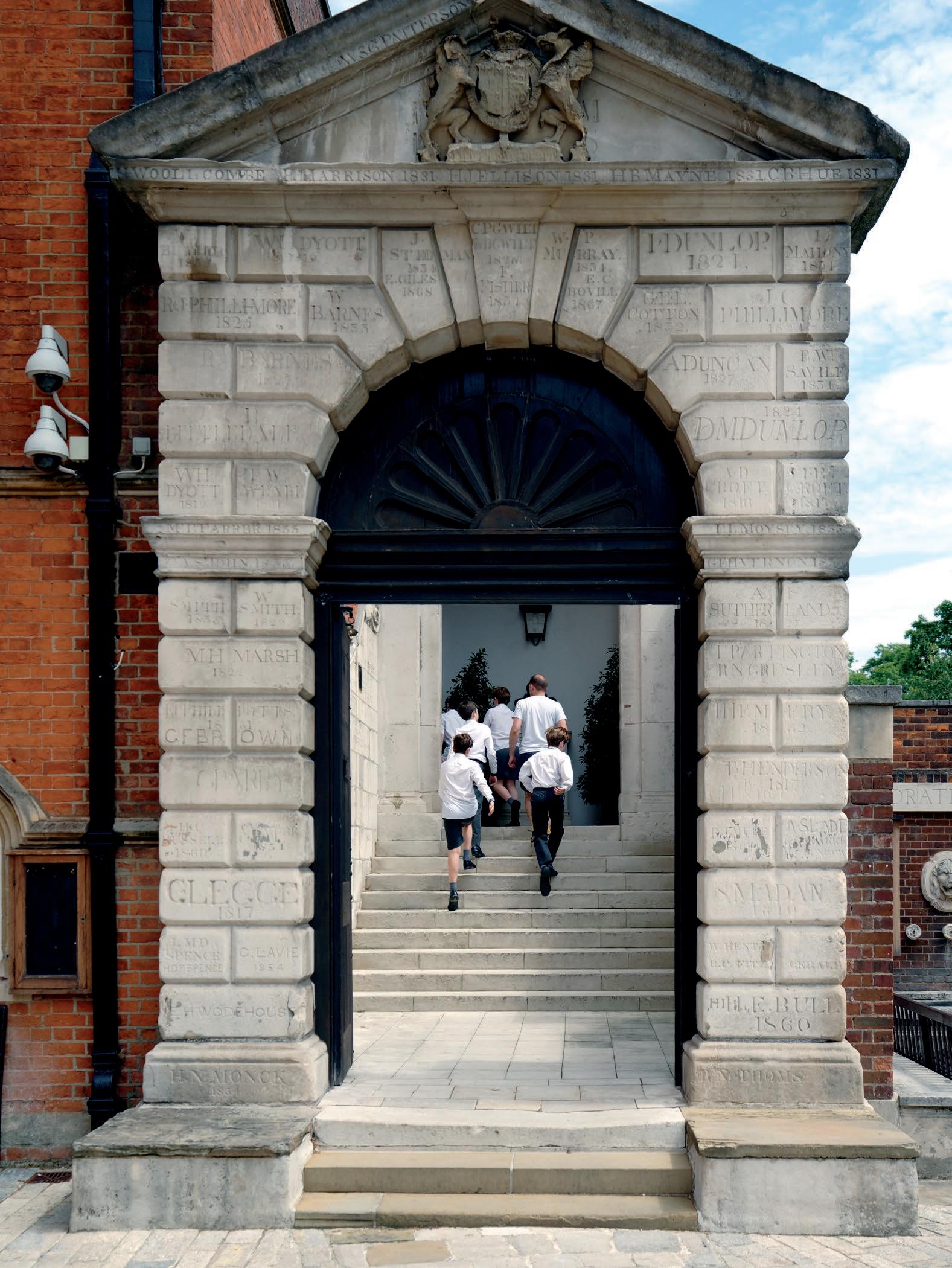
To begin with Matthew did not enjoy the law as an academic subject, and trust and tax law he found particularly dry and turgid. He said it was always about the people; about those he worked with and those he worked for. He thought himself so lucky to be so close to a fascinating range of clients. He had a limitless interest in client families and an instinctive awareness of their concerns, which went way beyond the merely legal.
It was as a result of his determination to do the very best for his clients, and in so many cases his genuine affection for them, that he grew to love the work itself.
Judging by the many tributes that Matthew received when it was known that he was ill and those that Sue has received since his death, that affection was returned many times over by clients and colleagues alike.
This memorial service is also one of thanksgiving. I suspect everyone here has something to thank Matthew for, whether client, colleague or friend, whom he has helped and entertained in his inimitable and self-deprecating style.
Just as Matthew’s 100 yards record at Cambridge will never be beaten because that race is no longer run, so Matthew will never be surpassed as a private client lawyer, because they are not made like him anymore.
“Too wise for pride, and too good for power.”
But he was also very, very funny. A transcript of a tribute given by one of Matthew’s older and closest friends, Richard Sutton, at his memorial service in York Minster, submitted by Stephen Twilley (QS, 1960-65)
58 The Elizabethan Newsletter
The Development Office Westminster School
Dean’s Yard
SW1P 3PB
(0)20
17a
London
+44
7963 1113 developmentoffice@westminster.org.uk

























































 Eric Babo Harrach (AHH, 1961-64)
Eric Babo Harrach (AHH, 1961-64)




 Richard Pine (AHH, 1962-66)
Richard Pine (AHH, 1962-66)











